Student Features
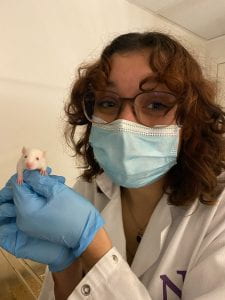
Aspen Harter (she/her)
WCAS ’24 (Neuroscience)
Aspen Harter

Summer URG
Please provide a brief summary of your research.
Through SURG I was able to continue conducting a project on acute stress and aggression through adolescence and adulthood. Previous work has shown that stress increases aggressive behaviors in adult male rats against non-threatening juvenile intruders during a social interaction test. The current study aims to investigate whether this stress-induced aggressive behavior is dependent on the age of the male (adolescence vs. adulthood) and the age of the intruder (juvenile or same-age). The project also uses two nearly isogenic strains that have been bred to express heightened/lowered stress reactivity or depression-like behavior. Through this model we are able to evaluate if the aggressive behaviors we are observing are due to genetic predisposition as opposed to a reaction to procedures.
What made you initially interested in researching your project in particular?
I think aggression and anger-based emotions in humans are painted in a unfairly negative light. It evolved as an alert or protection system in our history, and is simply a biological response. That being said there are a lot of behavioral disorders were an un-acceptable amount of aggression is produced and can be harmful to that person and/or the people around them. By looking at how stress through development affects aggressive behaviors in those with a predisposition to stress reactivity (as well as in general) we might be able to understand more about what is actually going on and how to properly address it.
What made you interested in pursuing (interdisciplinary) research more broadly?
I’ve always been very curious about what makes a person themselves. For a while I was content just reading paper and learning about neuroscience and psychology in classes, but at a certain point the questions I was asking were being answered with “We don’t actually know” or “I don’t know if that’s understood yet”. I decided I wanted to join a lab so I could start answering my questions myself, and after the first few months there I just fell in love with the day-day life of the job as well. Truly at this point I do research because its just fun.
Describe your experiences with research thus far. Was it tricky? What skills do you think you’ve gained?
Research is fun. Research also sucks a bit. Especially in this last summer, a lot of research is facing the fact that a test didn’t work, or the results look different than expected. While that can be exciting sometimes, sometimes its also just defeating. Over the years that I’ve been doing it though I’ve learned how to get back up, figure out what might’ve gone wrong, and do it better the next time. It is a very tricky thing and there are a lot of things to consider all the time, but that’s the fun of it I think. I used to describe myself as efficient, but doing research has made me more careful and diligent too.
Any tips or advice you have for students similar to you that are interested in pursuing undergraduate research?
I think everyone should spend time doing research. Its incredibly rewarding to get to pursue something that you are genuinely interested in. My biggest advice is to reach out to professors to get involved in their labs if you’re interested in their work! I think a lot of people find it scary, but the worst they can do is say no. Plus at Northwestern a lot of professors are here specifically to do research and are excited to engage with students interested as well.
What is something that you could give a 10 min presentation on right off the cuff?
Miley Cyrus’s career
What was your favorite childhood story (written, spoken, or film)?
The movie Hoodwinked
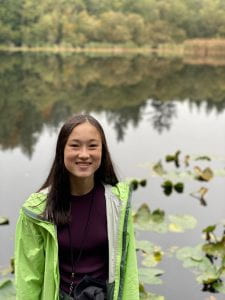
Kaitlyn Hung (she/her)
WCAS ’24 (Biology)
Kaitlyn Hung

Which grant that you received do you want to talk about?
Summer URG
Please provide a brief summary of your research.
My project investigated why certain tissues are more susceptible to protein-misfolding diseases like Alzheimer’s and Huntington’s Disease. I identified genes that alter the ability to maintain protein homeostasis differently in different tissues. I use C. elegans, a microscopic nematode with a short lifespan and transparent body that allows me to visually watch individual proteins with colorful tags. My project’s findings illustrate that while maintaining protein homeostasis is essential to every tissue, individual components can differ from tissue to tissue, contributing to different susceptibilities to protein-misfolding diseases.
What made you initially interested in researching your project in particular?
I’m interested in the biological processes underlaying aging and age-related diseases. My project gets to the heart of this by looking at proteins, the basic molecular machines that carry out the processes we need to survive. Many labs focus on studying an individual tissue, and this project allowed me to more broadly understand how tissues vary. I also wanted to learn to work with a new model organism and C. elegans are frequently used to study aging biology.
What made you interested in pursuing (interdisciplinary) research more broadly?
Coming to Northwestern, I was interested in science but didn’t want to practice medicine. I wasn’t sure what other paths I could pursue until the professors in some of my earliest science classes talked about their research. I was excited to learn that I could apply the basic principles I was learning in class to discover something new to improve the world. When I started doing research, I was shocked that you could physically perform experiments and investigate interesting questions about biological concepts as a career!
Describe your experiences with research thus far. Was it tricky? What skills do you think you’ve gained?
Through my research project, I’ve gained technical skills in learning new genetic techniques and working with a different model organism. I’ve also learned to efficiently plan, carry out, troubleshoot, and communicate a research project, with the support of mentors. I grew through navigating challenges, like having to pivot my project midway through the summer due to unexpected changes in mentorship.
Any tips or advice you have for students similar to you that are interested in pursuing undergraduate research?
Jump in! You never know until you try it, and even if research isn’t your thing long-term, there are valuable skills to be gained. You are never stuck–you can always change research projects and labs if you discover interests in a different field, or if the environment isn’t a good fit. The hardest step is the first one!
What is something that you could give a 10 min presentation on right off the cuff?
“The Big 5” (Pacific Northwest Trees)
What was your favorite childhood story (written, spoken, or film)?
My Neighbor Totoro
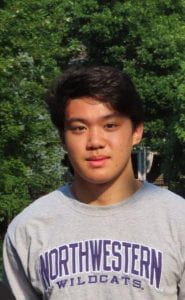
Jeffrey Yuan (he/his)
WCAS ’26 (Biological Sciences and Data Science)
Jeffrey Yuan

Conference Travel Grant
Please provide the tile and a brief summary of your research/conference presentation.
Learngle: Addition of an Analytics Dashboard to a Study Resource for the Clinical Informatics Board Exam
Learngle is an educational resource for clinical informatics that healthcare professionals use to prepare for the Clinical Informatics Board Exam. As of the 2023 exam cycle, we have over 50 user subscriptions and a 100% exam success rate. Learngle has a rich array of features that all actively contibute to the automation of generation of the most upto date information, provide detailed user performance analytics, and the utilization of a comprehensive ML algorithm to determing the optimal inter-repitition interval for each item in our educational resources.
What made you initially interested in researching your project in particular?
I initially became interested in my project when I found out about the field of clinical informatics. I had always wanted to integrate my interests in informatics and information theory with healthcare, and clinical informatics was my way to do so. I developed this project in order to increase the presence of this field, as with the evolving pool of technologies, understanding and implementing these resources are going to be critical for the future of patient care. This project serves to be an educational resource for healthcare professionals, whether it’s for their own personal education or for their preparation for the Clinical Informatics Board Exam.
What conference(s) did you present at and how did you find out about them?
I presented at the American Medical Informatics Association 2024 Informatics Summit. I found out about the conference through my lab at the Massachusetts General Hospital
What was it like presenting at a conference? Anything that you didn’t expect?
It was a great experience to be at the conference and see all the work that is being done with all the new technologies and data that are available in the healthcare scene. The conference was 4 days long, with a keynote speaker, oral presentations, expert panels, and poster sessions every day, but everything was something new that I hadn’t seen before. I didn’t expect for everyone to be so open to having conversations with me and connecting me with their colleagues, as I was definitely the minority as an undergraduate in such a highly acclaimed conference.
Any tips or advice you have for students similar to you that are interested in presenting at a conference one day?
I had a 30 minute oral presentation and systems demonstration. This initially made me nervous as I was expected to fill up the whole 30 minutes, so I had written up a script that I was memorizing and had planned out every action that I would take during my presentation. However, after actually getting into the presentation, I found that I had begun ignoring my script and premade plans, making me feel more comfortable on stage as everything came out naturally and not as if I was reciting a speech or reading a script. I would recommend that you don’t write up a comprehensive script and only develop a rough outline of everything you want to cover. You are the expert of your research so just go up and enjoy the experience.
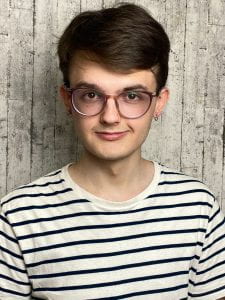
Daniil M. Ozernyi (he/his)
WCAS ’25 (Linguistics)
Daniil M. Ozernyi

Conference Travel Grant
Please provide the tile and a brief summary of your research/conference presentation.
See the titles of several presentations below; my research has to do with language assessment, second language acquisition, and generative syntax.
What made you initially interested in researching your project in particular?
I have always been interested in language sciences, and so I try to maintain an interdisciplinary research agenda that explores many aspects of language, like language assessment, psycholinguistics, syntax, &c.
What conference(s) did you present at and how did you find out about them?
I was able to present the following papers or posters owing to the OUR conference travel grant:
Formalizing derivation and parsing components of minimalist syntax within first-order logic
[Paper] 第十届形式语言学国际研讨会 (ICFL-10), 清華大學, 北京.
Some remarks on sensitive periods and the methodological rigor of their examination
[Poster] International Joint Conference of APLX, ETRA40, and TESPA 2023.
On reliability of assessment and the use of rubrics to assess writing in a linguistic classroom
[Paper] 2023 Conference on Scholarly Teaching and SoTL in Linguistics (CoSTaSiL 23). July 2023, UMass-Amherst.
Multidominance in light of conflicting formalizations of minimalism and syntactic economy
[Paper] Workshop “How Many Mothers? Multidominance in Syntax”. UMass Amherst, June 24-25 2023.
DM Ozernyi, Haeun Kim, Taichi Yamashita, Suzanne Flynn. Validity and reliability of assessment used in second language acquisition studies
[Colloquium organizer] AAAL 2023. March 18.
Also, presentations for Midwest Slavic Conference, Okinawa chapter of Japanese TESOL, a few others; in the interest of space, I did not put their names here particularly because the work presented there was based on the presentations below.
Check the rest of Daniil’s conferences on his website!
What was it like presenting at a conference? Anything that you didn’t expect?
It is a great venue to present your work and connect with other researchers and get to know professors who will be reading your grad school application!
Any tips or advice you have for students similar to you that are interested in presenting at a conference one day?
I suggest that interested students submit their research. It can perhaps be difficult to submit for the first time, because of anxiety or impostor syndrome, but conference abstract submission usually provides an anonymous submission venue with relatively quick feedback and helpful comment from reviewers for the most fields. Indeed, it’s difficult to submit proposals that are theoretical; undergraduate students often do not have access to resources needed to run an experiment if they are not under a PI. Still, I strongly encourage students to submit!
Do you have a podcast/documentary/piece of shareable media related to your research? Post the link(s) to share here!
https://dozernyi.com, my ResearchGate profile https://www.researchgate.net/profile/Daniil-Ozernyi
What would you name a boat if you had one?
Styx
What is something that you could give a 10 min presentation on right off the cuff?
Pretty much anything to be honest, ranging from thin-layer chromatography to language and Ai to language teaching or any aspect of scientific study of language.
If your (speaking) voice were an instrument, what do you think it would be?
Oboe maybe? A violin? Idk.
What was a memorable interaction that you had on campus this week?
I had lunch with Sean Ebels-Duggan and we talked about Wittgenstein.
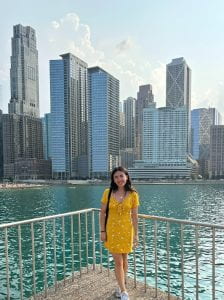
Ellie Garcia
WCAS ’24 (Neuroscience & Psychology)
Ellie Garcia

SURG
Please provide a brief summary of your research.
My research project looked into whether acoustic prosody differed between individuals with Fragile X Syndrome (FXS) and those with typical development. FXS results from an X-linked mutation of increase CGG DNA repeats in the FMR1 gene and is characterized by a wide range of symptoms, including intellectual disability and deficits in communication. Prosody refers to the rhythm, rate, and intonation of speech, and therefore is very important for communication. FXS is the most commonly known genetic condition associated with autism spectrum disorder (ASD), and while there is a wealth of research on prosodic abilities in ASD, there is not much for FXS. Wanting to address this research gap, I decided to focus in on the intonation of speech, which can be measured as the pitch of a person’s voice, and looked at how pitch variables compared between FXS and control participants for utterances with various communicative intents. Afterwards, I also looked at correlations between the pitch of FXS participants and FMR1-related genetic variations, hoping to gain a better understanding of the genetic underpinnings of FXS in relation to communication. I found that in certain speech contexts, individuals with FXS exhibited greater variation in their pitch than controls and there was a correlation between number of CGG repeats and pitch variation.
What made you initially interested in researching your project in particular?
I initially joined my lab because I had a strong interest in neurodevelopmental disorders after volunteering at a summer camp for kids with neurodivergence and/or physical disabilities throughout high school. Through journal clubs in my lab, I learned about FXS, and being a neuroscience major, I was fascinated by the processes causing the disorder. I also have a strong interest in both preventative and early care/therapy, so I was interested in studying prosody in FXS and looking for possible genetic markers of atypical prosody, which could theoretically be used as a factor for identify those who may benefit from early speech therapy.
What made you interested in pursuing (interdisciplinary) research more broadly?
I thought of research as a really great way to explore my interests more in depth! Additionally, it allows me to satisfy both my curiosity and my desire to feel like I’m contributing to something larger than myself. Knowing how much of an impact research findings make on policies, treatments, and people’s lives in general, makes it a really exciting opportunity to me.
Describe your experiences with research thus far. Was it tricky? What skills do you think you’ve gained?
I think the hardest part of research so far for me has been getting through the “grunt” work. I initially had a very idealized idea of what research would be, and thought it be super exciting all the time. However, I quickly realized that a lot of it can be very repetitive and a lot of number crunching for statistics. Despite that, it is a super rewarding process in the end, and it was really interesting to me to see the end results of all the statistics and to interpret my findings. I definitely improved my patience and persistence and also grew in my critical thinking and scientific writing skills throughout my research project.
Any tips or advice you have for students similar to you that are interested in pursuing undergraduate research?
Figure out a topic or research area that you’re really passionate about when looking for labs to join. I think it’s easy to get overwhelmed when looking up all the different research opportunities at Northwestern, but having an idea of what you’d be excited to do really helps to guide you in the process. Also, don’t be afraid to contact a bunch of different people, it never hurts to try to reach out!
What would you name a boat if you had one?
I would probably name it Dumpling, after my dog!
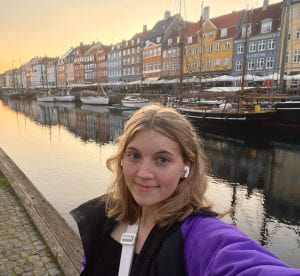
Naomi Aires (she/her)
WCAS & Bienen ’24 (Cognitive Science & Cello Performance)
Naomi Aires

Which grant that you received do you want to talk about?
Summer URG
Please provide a brief summary of your research.
My SURG project investigated how musical timbre impacts the perception and memory of harmonic progressions. Working with Bienen professor Daniel Shanahan, I used the summer grant period to design the experiment, run it, analyze the results, and start a paper based on the findings. For the main experimental task, participants listened to chord progressions played by two contrasting timbres (electric guitar or piano) and then rearranged shapes (corresponding to each chord) to match what they heard. Half the progressions were nominally rock progressions, the other half followed classical music theory conventions. The aim of the experiment was to see if participants would make particular errors when reordering the chords and whether timbre/harmonic congruence would have any correlation with these errors.
What made you initially interested in researching your project in particular?</strong
I’ve always had a big interest in harmony and I think especially after taking the Bienen music theory sequence, I became more curious how our perception of harmony may be impacted by other contextual factors.
What made you interested in pursuing (interdisciplinary) research more broadly?
Being a dual degree student, I’ve balanced coursework the last few years in two very different academic areas—cognitive/behavioral sciences and music. I’ve known for a while that I wanted to find a way to bridge my two interests, and I’m really fortunate that Northwestern is one of very few schools in the country with a music cognition department.
Describe your experiences with research thus far. Was it tricky? What skills do you think you’ve gained?
This summer was my first time ever conducting research and I definitely grew a lot from the experience. I’ve struggled a lot in the past with self-efficacy, and the research process overall helped me gain confidence in my academic abilities. More specifically, I grew more comfortable engaging with academic papers, programming in R, and working with basic stats procedures.
Any tips or advice you have for students similar to you that are interested in pursuing undergraduate research?
Don’t be intimidated and if you’re thinking about reaching out to a professor, just do it! Also try to be honest with yourself and pursue something you’re actually interested in; it will make the whole process more rewarding and enjoyable.
What is something that you could give a 10 min presentation on right off the cuff?
Kilwins Ice Cream Flavors Ranked Worst to Best (and what your favorite flavor says about you)
What was your favorite childhood story (written, spoken, or film)?
Ratatouille (still my favorite :))
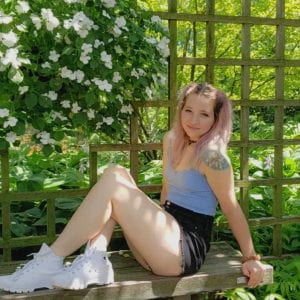
Skyler Stone (she/her)
WCAS ’25 (Biology & Psychology)
Skyler Stone

Which grant that you received do you want to talk about?
Summer URG
Please provide a brief summary of your research.
I studied the genetics behind the drug resistance of parasitic nematodes. Parasitic nematodes impact an estimated 1.5 billion people worldwide. Benzimidazoles, one of the primary drug classes used to treat parasitic nematode infections, target beta-tubulin in the microtubules in nematode cells. There is one gene that encodes for beta-tubulin that has been extensively studied, ben-1, but there are also five other genes that also encode for beta-tubulin that haven’t been as studied: tbb-1, tbb-2, tbb-4, tbb-6, and mec-7. I used CRISPR to knock out these genes in the model organism C. elegans in two different backgrounds, a wild-type and one with a ben-1 deletion already, and then conducted a variety of experiments to determine whether the gene has been deleted. Once that was confirmed, I ran a high-throughput assay to investigate the implications of these gene deletions on drug resistance by exposing these mutant strains to Albendazole, a specific benzimidazole. Data analysis is still underway, being done through R, but as of right now, it appears that only mutant strains with the ben-1 deletion were resistant to Albendazole.
What made you initially interested in researching your project in particular?
One of my core values is the dedication to a project that feels like it has a large impact on the broader community. This is why I decided to dedicate my life to value systems such as those imposed by Effective Altruism, which focuses on making your career have the greatest impact it can possibly have. As an overall fairly neglected issue and one that impacts billions of people, I was honored to receive this project when I first started in my lab under the Posner grant.
What made you interested in pursuing (interdisciplinary) research more broadly?
I’ve always been interested in many different things. As a STEM kid, I did theatre in high school and even won an art award. I’m a double major in Psychology and Biology simply because I love both. I think some of the best projects are the ones that surpass the boundaries of multiple disciplines, and that is often what leads to the most learning.
Describe your experiences with research thus far. Was it tricky? What skills do you think you’ve gained?
It was definitely tricky. There is a lot of room for error and many of the techniques we use need to be developed over time. I’ve definitely messed up a couple of times, but I put in the work to fix the mistakes. I’ve gained not only the ability to do these techniques, but also the ability to think more critically about genetics and my project. I’ve also gained an extensive network of grad students, post docs, lab techs, and my PI, which I am forever grateful for. I’ve learned a lot about myself, too – as a FGLI student, I’ve felt like I am behind of all of my peers ever since I started university. However, doing this project has helped me gain confidence in the work I am doing while I am an undergrad at Northwestern.
Any tips or advice you have for students similar to you that are interested in pursuing undergraduate research?
Get out there. I cannot begin to express how important it is to just get out there and try new things, even if you don’t feel like you are good enough. You never know until you try and you put in the work. I started as a team of many undergraduates, all of whom were much more qualified than I am. However, I put in the work and the dedication to my project and I am now the singular undergraduate on my project and am writing the paper. It is insane what can be accomplished if you just put in the work.
What would you name a boat if you had one?
S.S. Allison after my father (RIP) and I’s middle name
What is something that you could give a 10 min presentation on right off the cuff?
The lore of the appalachian mountains
What was your favorite childhood story (written, spoken, or film)?
The one that goes “there were 10 in the bed and the little one says “roll over”” because my mom used to read that to my brothers and I every night
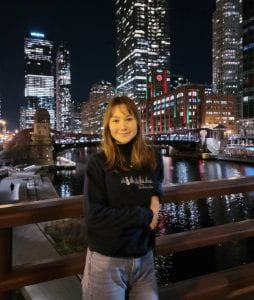
Alexandra Bomhorski (she/they)
SoC ’26 (Communication Studies & Economics)
Alexandra Bomhorski

Emerging Scholars Program
Please briefly summarize your research.
My research for this upcoming summer is synthesizing the different preventative methods that have been found to decrease tobacco usage among youth in the U.S. I will be looking at the effects of social media, Covid-19, graphic warning labels, preventative media, and experimental data. I will also be analyzing laws and FDA provisions that have been passed in the last ten years to see how well the government has been doing in respect to this topic.
What made you interested in pursuing (interdisciplinary) research more broadly?
I wanted to pursue interdisciplinary research more broadly because I knew that my interest lay somewhere between marketing and psychology. I also think that to get the full picture of anything you need to look at it from multiple angles. Therefore, I think many concepts, ideas, etc. benefit from being studied from an interdisciplinary perspective.
How has it been working with faculty to transition from an assistant position to a more independent role?
The transition from an assistant position to a more independent role has been a very rewarding experience. I greatly value the mentorship that I received last summer, as it slowly prepared me to work on my own research. The whole idea of starting your own independent research project may be a daunting one, especially without a mentor. That is why I am grateful to be working with the Emerging Scholars Program, as I definitely feel a lot more prepared and confident in pursuing my own project than I did before.
What’s been your favorite part about being in a cohort with other scholars?
My favorite part of being in a cohort with other scholars is the supportive community that it built for me. Research is hard, and having others around you, that are struggling along side of you, makes the journey a little less daunting. Very grateful for my Spectacular 7 cohort!
Do you have any tips or advice for first years similar to you who are interested (but maybe hesitant) to apply for a 15 month long program?
A 15 month long program may seem like a long time, but it ends up going by so fast. By the end you are able to work on a project that you designed, based on your own personal interests. I believe that anyone who wants to get experience with research in humanities would benefit from both of the summers as the first one prepares you for the second.
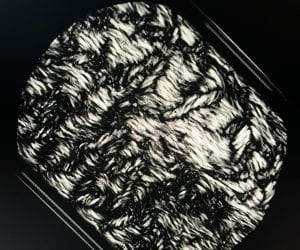
Kaitlin Oh (she/her)
WCAS ’25 (Economics)
Kaitlin Oh

Which grant that you received do you want to talk about?
Summer URG
Please provide a brief summary of your research.
My research this summer focused on determining whether mixtures of peptide amphiphiles (PAs) with the peptide sequences A2G2 and V2A2 would result in molecularly mixed or phase-separated (non-mixing) supramolecular nanofiber assemblies. To test this, I utilized variable temperature polarized light microscopy (VT-PLM) to record the temperature at which PA fiber assemblies transitioned into spherical micelles. This transition temperature was denoted by the complete loss of birefringence signal, produced by anisotropic nanofiber assemblies, indicating a complete transition to isotropic spherical micelles.
Based on previous work, the A2G2 peptide sequence is known to form weak β-sheets that produce less cohesive nanofibers, leading to lower transition temperatures. In contrast, the V2A2 sequence is known to form strong β-sheets and more cohesive nanofibers, resulting in higher transition temperatures. Thus, increases in mol % composition of A2G2-based PAs mixed with V2A2-based PAs were expected to decrease cohesion within fiber nanostructures and therefore decrease the transition temperature. This trend was seen in my past work on mixtures of A2G2E2 with V2A2E2 PAs and A2G2E4-GIKVAV with V2A2E4-GIKVAV PAs, which indicated some degree of mixing between the PA pairs.
I chose to further analyze this trend by altering the equivalents of NaOH added to PA mixtures of the A2G2E4-GIKVAV with V2A2E4-GIKVAV PAs, which were originally prepared with 4 equivalents of NaOH. This mixture was selected in particular to better analyze the effect of epitopes like GIKVAV on the mixing of PAs. As greater equivalents of NaOH tend to reduce cohesion within a fiber assembly and therefore reduce the transition temperature, I was curious to see if the same transition temperature trend would persist in mixtures of 3 and 3.5 equivalents of NaOH as well. Under VT-PLM, the same trend in transition temperature was observed for all equivalents of NaOH, noted by a more rapid decrease in birefringence signal intensity with increasing % A2G2E4-GIKVAV. In addition, for the 30% and 50% A2G2E4-GIKVAV samples at all NaOH equivalents, there appeared to be multiple inflection points along the heating profiles; however, these inflections became less distinct with greater equivalents of NaOH. These inflection points suggested that there was a two-phase mixture at intermediate compositions of the two PAs, i.e., the appearance of a miscibility gap at lower equivalents of NaOH. Therefore, this further confirmed that rather than PA mixtures forming either fully phase-separated or completely molecularly mixed fiber assemblies, there seemed to be an upper limit on the degree of mixing between the different PAs.
To add a little context for the photos – this is a photo of the birefringence signal detected from various fiber assembly mixtures of peptide amphiphiles under a polarized light microscope (PLM).
What made you initially interested in researching your project in particular?
When I first looked into doing research, I came across the Stupp lab group’s 2021 Science paper on spinal cord regeneration utilizing peptide amphiphile assemblies. I was almost immediately sold on wanting to learn more about peptide amphiphiles and how they could be manipulated to perform such amazing feats in medicine. With my project, I had the opportunity to not only look into the mechanisms involving mixtures of peptide amphiphiles but specifically those containing one of the two epitope sequences used in the spinal cord regeneration study. Suffice to say, my project entailed an amazing and fascinating first experience in research.
What made you interested in pursuing (interdisciplinary) research more broadly?
I had never done research in the past, so I was quite curious to see what it would entail. I also have a passion for chemistry, and I was always interested in conducting some kind of lab work in the future.
Describe your experiences with research thus far. Was it tricky? What skills do you think you’ve gained?
I am really glad that I had the opportunity to conduct research in such a wonderful lab group! I learned a lot about how important and helpful working with other researchers can be for fostering new ideas for a project. I often had to present my research at subgroup meetings, and the feedback that I received from other lab members helped a lot to both answer some of the questions that came up in my project as well as provide new approaches to answering my research question. These subgroup meetings also allowed me to develop my communication and presentation skills to best explain my findings to a more unfamiliar audience. I also worked on a paper describing some of my discoveries, which allowed me to practice reading scientific papers as well as better understand my own project overall.
I would say the trickiest part about my research was making sure to keep a detailed record of my previous data and samples. Throughout the course of my project, I had made a ton of samples of various buffer solutions and peptide amphiphiles that had been used in different experiments at different times. Thus, I learned to take very thorough notes during my sample prep and data collection to make my experiments more easily reproducible.
Any tips or advice you have for students similar to you that are interested in pursuing undergraduate research?
Definitely do it! It can be a very rewarding as well as eye-opening experience into different fields of work that not many people get to witness first-hand or even be a part of. I think research is also a great way to see how what you learn in classes gets applied to real world issues/questions.
What would you name a boat if you had one?
Larry
What was your favorite childhood story (written, spoken, or film)?
Dr. Seuss’s The Lorax
What was a memorable interaction that you had on campus this week?
Said “Hi” to my former organic chemistry lab TA and he remembered me 🙂
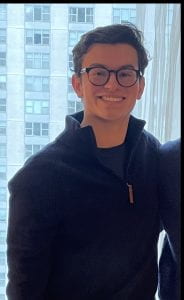
Andrés Buenahora (he/him)
Medill ’24 (Journalism & English Literature)
Andrés Buenahora

Which grant that you received do you want to talk about?
Summer URG
Please provide a brief summary of your research.
My SURG project entailed writing a dramatic play, centered around the topics of immigration, wealth inequality, and cultural perceptions of Colombians in upper-middle-class Eastern coast communities. This creative project required in-depth research into the history of immigration in the United States, financial and demographic trends among Colombian immigrant families, and the predominant factors that influence the socioeconomic statuses among those families, as it pertains to literature, film, and the historical and socioeconomic context of these issues.
What made you initially interested in researching your project in particular?
As a Latino journalist and undergraduate at the Medill School of Journalism & Integrated Marketing Communications, I came across some prevalent data indicating both the rising rates of Latino immigrants to the United States and wealth inequalities among different groups. I began to ask myself questions such as why are Latinos continually stereotyped across the media? Why has there historically been a lack of Latino representation in the film and television industry? What is driving the discrepancies in cross-generational wealth and how is race rooted in these issues?
Despite the major presence of Latino immigrants in the United States, many migrant groups continue to be marginalized and mistreated. I was interested in subverting the stereotypical narratives we’ve seen in pop culture and examining subtextual elements of class and privilege through the lens of immigration in upper-middle-class Eastern coast communities.
Henry Godinez, who served as my faculty sponsor for this project, attended a performance of my debut play last spring, which I actually wrote through a 2022 SURG. I was already a fan of Godinez’ work in Latino theatre so hearing his praise and support for my writing was very inspiring, and it was an honor to work with him on my 2023 SURG.
What made you interested in pursuing (interdisciplinary) research more broadly?
I completed a 2022 SURG, writing a Latinx social justice play that was selected by an SPP Committee and produced by The Virginia Wadsworth Wirtz Center for The Performing Arts this past spring, with my 2022 SURG faculty sponsor and Tony Award Winner David Catlin serving as the faculty mentor for this production. After seeing the success of this project, I was inspired to pursue another SURG and write my next play, conducting research for it on topics such as discrepancies in cross-generational wealth and class.
Describe your experiences with research thus far. Was it tricky? What skills do you think you’ve gained?
Like any creative or artistic project, research will always have obstacles that arise, but learning how to overcome adversity has helped me gain invaluable skills and empowered me to grow as a writer, scholar, and human in profound ways.
I’m particularly grateful to the Office of Undergraduate Research for the amazing opportunities I’ve been able to pursue during my time at Northwestern.
Any tips or advice you have for students similar to you that are interested in pursuing undergraduate research?
Pursue what you’re passionate about and above all, WRITE! I’ve had the privilege of having some incredible mentors who have been integral to my intellectual, creative, and artistic growth, and have encouraged me to continue writing even after the grant period. I would recommend first identifying your area of interest to find the right mentor who can help you develop your passion project and refine your work through a SURG.
What would you name a boat if you had one?
Buena Hora
What is something that you could give a 10 min presentation on right off the cuff?
New Girl
If your (speaking) voice were an instrument, what do you think it would be?
Acoustic Guitar
What was your favorite childhood story (written, spoken, or film)?
Up
What was a memorable interaction that you had on campus this week?
Volunteering at a food pantry with RUF friends or catching up with my sophomore year roommate on the way to a meeting for my Latin dance group, Dale Duro!
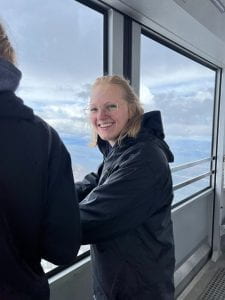
Mattea Muench (she/her)
SoC ’25 (Theatre)
Mattea Muench

Which grant that you received do you want to talk about?
Summer URG
Please provide a brief summary of your research.
My research was focused on theaters for young audiences in Berlin, Germany, and the best practices they implement in order to serve a multi- and intercultural audience. It was structured around interviews with arts administrators and observations of productions at 5 different theaters, from which I was able to gather a more holistic understanding of TYA (theatre for young audiences) in Berlin and the ways in which many artists and companies there work to prioritize theatre that is engaging and impactful for all of the young people living in Berlin. I sought to understand further the ways in which Berlin’s socio-cultural landscape influences the companies and artists creating theatre for young people, as well as identifying room for growth in this area and what plans those companies and artists have to further develop.
What made you initially interested in researching your project in particular?
In addition to my work as a theatre artist positioning me uniquely in both TYA spheres and spaces devoted to the advancement of diversity, equity, and inclusion in the theatre industry, Berlin is a city close to my heart. My mother is German, and I have spent all of my life visiting Germany, particularly Berlin. I spent 6 months living there with family friends as an au pair after I graduated from high school in 2020, and learned much about the specific socio-political contexts that exist in both past and present Berlin. The combination of my academic and professional interests and my personal history and culture led to the development of my research.
What made you interested in pursuing (interdisciplinary) research more broadly?
I found that in addition to my personal interest in the subject and the desire to learn more about it, I was enthusiastic about how the research process could help be become a better student and person. The opportunity to meaningfully engage with a subject and industry that I was excited about and to explore new skills and perspectives was attractive to me for my academic and professional development but also for my personal growth.
Describe your experiences with research thus far. Was it tricky? What skills do you think you’ve gained?
I found the research process to be time-consuming but rewarding. Being able to learn and further develop a number of skills, such as the ability to analyze qualitative data, the ability to interview people in a personable yet direct manner, speaking confidently to large groups of people, and taking meaningful notes while staying engaged in an experience, will allow me to continue to grow in my academic and professional careers. I also found particularly meaningful the relationships I was able to build with a number of the theatre artists and companies that I connected with in Berlin, the opportunity to bear witness to so many artists pursuing their dreams and working day in and day out to create theatre that will resonate with and uplift young people of all backgrounds, and the chance to make discoveries and experience them in practice, as opposed to just in theory.
Any tips or advice you have for students similar to you that are interested in pursuing undergraduate research?
I would absolutely encouraged anyone interested in undergraduate research to go for it. The point of undergraduate research, in my opinion, is not to discover world-changing findings; it is to allow undergraduate students to engage with subjects they are excited about and to develop important life and career skills. I would recommend that students are genuinely interested in the subject of their research, as it is time-consuming, but that if they really are excited about what they’re engaging with, research is a truly rewarding process.
What is something that you could give a 10 min presentation on right off the cuff?
Cassandra of Troy
What was your favorite childhood story (written, spoken, or film)?
Momo by Michael Ende
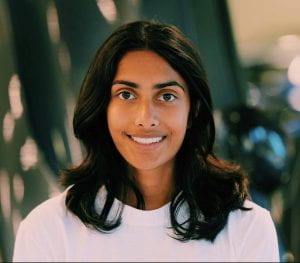
Neha Gupta (she/her)
WCAS ’25 (Biological Sciences)
Neha Gupta

Which grant that you received do you want to talk about?
Summer URG
Please provide a brief summary of your research.
I was investigating how A549s, a patient derived lung cancer cell line, essentially hijack the circadian clock. Every cell in our body has a circadian rhythm, and we can visualize how long a cell’s circadian period lasts in a device called the LumiCycle. There have been numerous studies investigating the relationship between circadian disruption (via shift work) and the development of cancer. Previous research by Dr. Clara Peek showed a bidirectional interaction between HIF-1a (a protein involved in the cellular response to low oxygen conditions) and BMAL1 (a core circadian clock component). Since tumor cells are naturally in low oxygen conditions, this relationship is pathologically relevant. Other scientists showed that circadian disruption leads to lung tumorigenesis, but we were investigating the opposite pathway – that being how A549s take over the circadian clock to benefit their growth and proliferation . My goal was to treat cells with different drugs that worked on our proposed signaling pathway and measure the length of the cell’s circadian period.
What made you initially interested in researching your project in particular?
I didn’t have a particular interest in circadian biology until I took Bio 203, where we briefly went over how the circadian clock works. From there, I knew I wanted to work in a circadian lab. I had a previous interest in muscle physiology and injury repair, which is the main focus of the Peek lab and my initial reason for joining. When I arrived, one of the research techs, Adam Steffeck, mentioned that he needed help with the lab’s lung cancer project. Although lung cancer and muscle physiology share few commonalities, the shared circadian component was my main motivation for helping with this project. From there, I began training in the lab and was ready to commit to the project full time when summer rolled around.
What made you interested in pursuing (interdisciplinary) research more broadly?
I knew I wanted to start doing research because of my classes. I always found everything we learned so interesting, but never felt like I could fully grasp how these concepts applied to a real world setting. Techniques always seem practical when learning about them in lecture, but I wanted to experience the scientific process myself. I wanted to see how the things we learned failed, understand why they failed and make judgement calls as to what the next move should be to push the project forward. I saw research as a way to bring the content we cover to fruition, which was my main motivation to get involved.
Describe your experiences with research thus far. Was it tricky? What skills do you think you’ve gained?
I’ve loved my experience so far, but I can’t say that every moment has been easy. Seeing your experiments that you’ve planned and set up for weeks fail because of reasons outside your control can be frustrating, and you have to learn to come back and think about your own work critically. I think the trickiest part is being able to ask the right questions at the right times. If you didn’t get the result you wanted, was it because of a procedural error? Or is something mechanistic? I think I’ve gotten better at knowing when and where to ask these questions over the summer. Furthermore, my bench skills and scientific intuition have increased greatly over this time as a result of the experience, even when things failed.
Any tips or advice you have for students similar to you that are interested in pursuing undergraduate research?
I think the best thing I’ve learned over the past few months working in the lab is to never feel scared to ask questions or reach out to others, whether that is your PI, a potential PI, or someone who’s project you are particularly interested in. There were a few times I was scared to reach out to my PI with questions or to present data, just because I was worried she would be too busy. Those meetings, which I thought would only last a few minutes, often turned into hour long discussions criticizing the pathway and developing new experiments. I am by no means an expert in the field, so it was critical for me to ask questions to further my understanding. Even if you think your questions are elementary or are wasting someone’s time, everyone was in your shoes learning at some point. People are always willing to help if you show initiative, so never, ever be afraid to reach out.
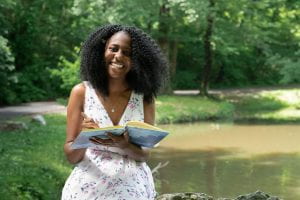
Cydney Brown (she/her)
SoC ’26 (Communication Studies)
Cydney Brown

Which grant that you received do you want to talk about?
Summer Undergraduate Research Grant
Please provide a brief summary of your research.
For 8 weeks (June 12th-July 31st) I researched eight Black female activists during the Civil Rights Movement (1954-1968) whose contributions appeared invisible in history because as Bernice McNair Barnett elucidates, Social Movement scholarship focuses on male leaders. My goal in this project was to recognize Black women and their leadership. The intersection of these women’s identities have resulted in the erasure of their contributions to American History furthering the notion that men were the only leaders during this time. The purpose of this project was to show Black women the power their voices hold, by highlighting the voices of Black figures that came before them. The women I researched are as follows: Claudette Colvin, Gloria Richardson, McCree Harris, Septima Poinsette Clark, Pauli Murray, Diane Nash, JoAnn Robinson, and Georgia Gilmore. I wrote first-person poetry from the perspective of the women I studied using journal articles, interviews, archives, and oral histories to elucidate their lives. I chose poetry as the medium to tell the stories of these women because of its accessibility and relatability as a modern medium of communication.
What made you initially interested in researching your project in particular?
Originally I wanted to do a research program, but after meeting with Megan Novak we realized I already had an interest in doing poetry centered research. Megan helped me to hone in on what marginalized community I wanted to focus my poetry on, so that my research wasn’t too broad.
What made you interested in pursuing (interdisciplinary) research more broadly?
I became interested in pursuing research after taking SESP 251 Pathways class that focused on doing meaningful work during the summer through SURG or SIGP. I also attended events where UGR would present, so I was very interested in doing research and poetry.
Describe your experiences with research thus far. Was it tricky? What skills do you think you’ve gained?
Research is fun, rewarding, and thorough. I found it fun researching each women and learning anecdotes about them that I was never taught in history class. It was difficult when I couldn’t find information on some of the women after trying different avenues to obtain it. It was also tricky revising poems, some poems would have revisions that would take a few days, while others would take weeks. From my research experience I have gained patience and flexibility. Some days, I would have to wait for sources to come through interlibrary loan, so I would be flexible and start researching another activist.
Any tips or advice you have for students similar to you that are interested in pursuing undergraduate research?
Schedule a meeting with Office of Undergraduate Research they are really helpful in understanding how your interests can become a research opportunity.
What was your favorite childhood story (written, spoken, or film)?
My favorite childhood story was The Kissing Hand by Audrey Penn, my mom used to read it to me when I was younger.
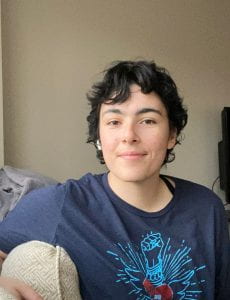
Lucia Barnum – Circumnavigator Winner
Medill ’25 (Journalism)
Lucia Barnum

Please provide a brief summary of what you plan to research over the summer, where you plan to go, and why you chose those locations.
This summer, I will research community mobilization and social organizing in the wake of fire disasters in Brazil, Argentina, Portugal, Greece, Ghana, and Australia. Each of these countries has experienced a major fire event in the last six years, or has otherwise grappled with how national fire policy fails to meet the needs of communities on the front lines of these disasters. In talking with experts and stakeholders, I hope to develop best practices for how fire and disaster management policy can meet the needs of those most impacted by these tragedies.
What made you interested in pursuing interdisciplinary research?
As a journalism major, I’ve taken many courses that emphasize the importance of interviews, observation, and storytelling. As a researcher, I find it essential to incorporate this same multidimensional approach. Interdisciplinary research is especially important in this field: while “natural” disasters are oftentimes portrayed as only being about the environment, it is imperative to consider them socio-ecological events.
Describe your experiences with research thus far in your career.
I currently work as a Leopold Fellow with Dr. Paul Gillingham on his research about Mexican history. I also received a SURG the summer after my freshman year, which I used to create a three-part narrative podcast series on a local election in Palatine, IL. Last summer, I was a Peer Mentor and helped SURG awardees as they conducted their own research. I have also written sociological research papers for various classes at Northwestern, but this will be my first independent social science project of this scope!
What made you initially interested in researching your topic in particular?
Growing up in Northern California, wildfires are an essential, unavoidable part of life. I’ve seen community organizing around fire disaster with my own eyes. I want to highlight this unique form of expertise to help give stakeholders, including my own neighbors, the necessary tools to create safer communities.
Any tips or advice you have for students interested in pursuing undergraduate research?
I would encourage anyone interested in undergraduate research to shoot their shot! It can be a daunting process, but has been one of the most rewarding parts of my time at Northwestern so far. When I started writing my first research proposal, I had no idea what I was doing, but the OUR office has so many great resources that helped me grow my confidence.
Which aspect of your trip are you most excited about?
I’m excited to explore nature in other parts of the world! A great part of my proposal is that it will (hopefully) allow me to go outside of major cities and into more rural areas. I’m extremely grateful for the opportunity to get outside my comfort zone and appreciate the natural beauty these locations have to offer.
Do you collect anything?
I collect magnets! It’s a habit I inherited from my grandmother, whose fridge is covered in magnets from different places she and her loved ones have visited.
What skill would you most like to learn?
I’m not a very musical person, but have recently started teaching myself the guitar. I’d love to learn how to play a wider variety of instruments, but for now, I’ve got my work cut out with just one.
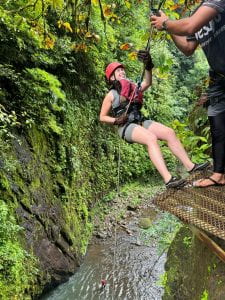
Alexis Schwartz (she/her)
WCAS ’25 (Political Science & History)
Alexis Schwartz

Which grant that you received do you want to talk about?
Undergraduate Language Grant
What language did you study and why?
Professionally, I chose to study Spanish because I want to go into civil rights law, and I want to be able to work with the many people in the U.S. in need of legal support that speak Spanish. More personally, I want to be able to communicate with as many people in my communities and around the world as possible.
What program did you attend and why did you choose it?
I chose to study at a language institute in San Jose, Costa Rica. I knew I wanted to be in San Jose because it is surrounded by universities and museums, making it a very good place to meet other people my age as well as learn a lot about the the country. As a nature lover, I couldn’t miss the chance to see the incredible conservation efforts that Costa Rica has worked on.
Describe your experience doing summer language study. Was it tricky? How do you think your language skills improved?
Living in a Spanish-speaking country while learning Spanish did wonders for instilling the language in my mind. I had no choice but to practice, I would wake up and speak Spanish at the breakfast table with my family, then go to hours of Spanish classes, then go to lunch where I would have to speak Spanish to order my food, then have tandem conversations with English students where I would speak in English for about 30 minutes. This level of constant exposure made it a necessity for me to improve my Spanish to function in the world around me. After my experience in Costa Rica, I believe there is no way as effective to learn a language as intensive immersion. When I first arrived in Costa Rica, I was entirely overconfident in my language skills. I had just completed a year of Spanish at Northwestern and was feeling very good about where I was. But, as soon as I arrived at my host family, who does not speak any English, I found that I could barely understand anything they were saying, much less participate in any form of conversation with them. However, in my last week there, I found myself at the dinner table in the midst of an hour-long conversation with my host mom. This is just one specific instance of growth, but throughout my time there, I gradually felt myself becoming more and more capable of speaking and conversing in Spanish.
Did intensive summer language study change or solidify any of your future goals? If so, how?
It absolutely did! It solidified my goal of becoming bilingual for the work that I want to do in the future. I realized how crucial a common language is to building relationships, and I want to be able to truly accomplish that connection throughout my professional and personal life.
Do you have any tips or advice for students similar to you that are interested in pursing intensive language study?
You absolutely have to stay with a host family! I really think this is what pushed my language learning to the next level because I simply had to use Spanish to communicate with the people I was living with. I also think choosing a location that is not overly touristy is really important because, at least for me, if there is the option to lean on English as a crutch when you go to restaurants or stores, you won’t practice your language as much as you could.
If your (speaking) voice were an instrument, what do you think it would be?
In my heart I want it to be the bass clarinet but there is such a good chance I’m wrong.
What was your favorite childhood story?
One time when I was 7 I “accidentally” cut a massive chunk out of my friend’s super long and gorgeous hair like near her chin. It was really bad.
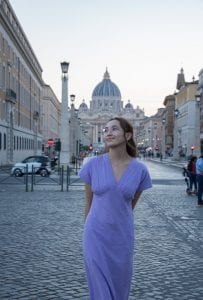
Ali Alikhan (she/her)
NUQ ’24 (Journalism)
Ali Alikhan

Which grant that you received do you want to talk about?
Undergraduate Language Grant
What language did you study and why?
Italian because my both SIGP and JR programs took place in Italy
What program did you attend and why did you choose it?
I attended an intensive Italian course at Scuola Leonardo Da Vinci in Florence
Describe your experience doing summer language study. Was it tricky? How do you think your language skills improved?
In the span of 8 weeks, from the beginner level I was able to get to intermediate. It was a very fun and culturally immersive experience as well. I traveled around Tuscany, visiting alpaca farm, vineyards, Florentine mosaic, Italian leather artisan houses, castles, museums, and even learned how to make pasta from scratch.
Did intensive summer language study change or solidify any of your future goals? If so, how?
Yes, it definitely made me narrow down what kind of reporting I would like to do in terms of my career, also I realized that I would most probably move to Europe after graduation.
Do you have any tips or advice for students similar to you that are interested in pursing intensive language study?
Don’t be afraid of making friends with teachers, staff and your host family. Usually, connections like that make you practice your language skills and open so many new opportunities.
What would you name a boat if you had one?
Wonder
What is something that you could give a 10 min presentation on right off the cuff?
Cooking and baking
If your (speaking) voice were an instrument, what do you think it would be?
Violin
What was your favorite childhood story (written, spoken, or film)?
Harry Potter
What was a memorable interaction that you had on campus this week?
We had a Pulitzer Prize guest speaker
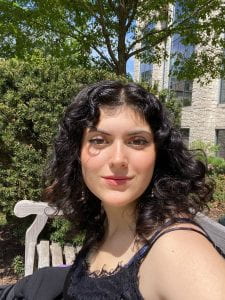
Sophia Bonfigli (she/her)
WCAS ’25 (Biological Sciences)
Sophia Bonfigli

Which grant that you received do you want to talk about?
Summer URG
Please provide a brief summary of your research.
I research bioactive nanomaterials that can be used for applications in regenerative medicine. This summer, I looked at a system that uses a self-assembling nanofiber that acts like a track for dancing sliders with attached bioactive sequences. The sequence on the sliders was IKVAV, a laminin mimetic that can be used to promote adhesion and dendrite development of neurons in the brain and spinal cord.
What made you initially interested in researching your project in particular?
I loved biology and have always found regenerative medicine extremely fascinating. Using the body’s own machinery to recovery otherwise permanent or life-threatening injuries genuinely feels magical to me, so I’m so excited to be part of such impactful research.
What made you interested in pursuing (interdisciplinary) research more broadly?
I always enjoyed hearing about other people’s projects and thought it was so cool to uncover new information about the world. Research is a way to do hands-on work to satiate my curiosity and use the information I was learning in class productively. I also wanted to blend my science knowledge with artistic skills, which is something that I do often now.
Describe your experiences with research thus far. Was it tricky? What skills do you think you’ve gained?
Research can feel like a bit of a puzzle sometimes. You get to design experiments and run different tests to collect puzzle pieces, and then you use your knowledge and understanding to try and put the pieces together. I love being able to work together with others and explore new areas of science to progress in my project, all while learning new techniques and developing a plethora of skills. It can be frustrating sometimes when you can’t understand your results or don’ know how to validate a theory.
Any tips or advice you have for students similar to you that are interested in pursuing undergraduate research?
I would recommend just going for it! Nobody expects you to know anything going in, and the more you are willing to learn, the farther you can go! Being in a lab, I feel like being part of a family. You don’t need any crazy skills to jump into research.
What is something that you could give a 10 min presentation on right off the cuff?
Puppeteering
What was your favorite childhood story (written, spoken, or film)?
Spirited Away (Movie)
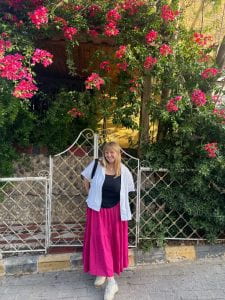
Rachel Spahn (she/her)
WCAS ’24 (Economics & Middle East and North African Studies)
Rachel Spahn

What language did you study and why?
I studied Arabic because I wanted to improve my language skills to be able to speak about complex topics, but more importantly, I wanted to better understand the language in a cultural context from native speakers.
What program did you attend and why did you choose it?
My experience at CET Jordan’s summer intensive program exceeded my expectations. I studied with CET through their semester abroad program in the fall of 2022, so I had reasonable expectations for what returning to Jordan would look like for me. Still, I was beyond pleased with how the program helped me learn Arabic through the intensive classroom experience, field-based excursions throughout the country, personalized time with professors, and the driven cohort of students.
Describe your experience doing summer language study. Was it tricky? How do you think your language skills improved?
We spent up to five hours daily speaking, listening, reading, and writing in Arabic in a classroom setting (where I worked with five other students). For example, we read and discussed a famous Arabic novel, “Men in the Sun” by Ghassan Kanafani; we watched Arabic news to discuss our course’s central theme ‘phenomena’ including the study of women’s rights, child labor, and climate change; we had weekly presentations on class topics and field-based activities, such as a presentation on our takeaways from a trip to a local radio station. We were regularly assessed on these skills and also took the ACTFL Oral Proficiency Interview at the end of the summer. Last fall, I achieved Advanced Mid and advanced to Advanced High on my interview this summer. When I studied abroad in the fall, I felt like I was learning a new word every two minutes and was solely focused on language acquisition. While I still learned hundreds of new words this summer, I was thankful that I had a different experience while language learning. I prioritized solidifying my confidence in my language skills: I would not resort to English if someone did not understand me, I learned how to speak casually and conversationally by engaging in more conversations with local shop owners and with taxi drivers, and by the end of the summer, I was able to confidently call taxis, bargain at local shops, and ask new people for help if I needed it. It became clear to me that while it is beneficial to focus on mastering words and complex structures, I could also grow my language skills by speaking in a wider variety of settings and with people from different Arabic-speaking countries. This was difficult and often made me feel vulnerable, but language learning is not linear, and I think that this experience gave me the confidence to continue making mistakes and learning from them.
Did intensive summer language study change or solidify any of your future goals? If so, how?
As for my academic development, my language acquisition from this summer will now allow me to take more advanced Arabic courses at Northwestern to complete the new Arabic minor, which I am very excited about. I also have more resources to keep practicing my language skills, including the textbooks I used in class, reading and listening to the news, and even simply staying in touch with my Arabic-speaking friends from Jordan. Through the program, I also interned at a local NGO that promotes women’s and children’s economic and social empowerment in Jordanian society. I used Arabic to translate the company’s resources and extrapolate governmental data written in Arabic. This showed me how I could use Arabic in a professional setting and especially in a way that can help people and communities, which I hope to do in the future. In particular, I would love to use Arabic to work in the government/ for a foreign policy agency to facilitate cross-cultural and multi-national discourses. Not only did the summer solidify my career goals, but I also learned a lot more about how I learn and can support others with their learning. It was challenging to commit to the language pledge when it would be a lot easier to resort to English with my student cohort. But our commitment to each other and ourselves and as a result, our much-improved language skills, taught me a lot of perseverance and resilience. Immersing myself in a new language and culture was uncomfortable at first. It made me a lot more grateful for my friendships and support systems, especially the locals I met that were patiently willing to listen to me stumble over words sometimes. I appreciated learning about a new culture and environment by living in it, and I am forever thankful to CET, my program, and the ULG for showing me I could.
Do you have any tips or advice for students similar to you that are interested in pursing intensive language study?
If you are studying in a new country, find communities and places that connect you to home! My program required me to speak exclusively in Arabic for the whole summer; I felt more comfortable exploring new areas while listening to my favorite songs in English and sometimes just drinking a mocha from Starbucks. I started writing down one good thing that happened and one thing I was grateful for every day, which was SO grounding! I also love looking back and reading about my experience now that I’m back at NU. Give yourself some grace. Prioritize self-care. You’ve got this!
What is something that you could give a 10 min presentation on right off the cuff?
Why the color green is the best color ever
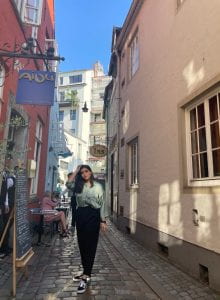
Fatima Shafiq (she/her)
NUQ ’25 (Journalism)
Fatima Shafiq

What language did you study and why?
German because I plan on doing my Journalism Residency and my masters in Germany
What program did you attend and why did you choose it?
I chose Goethe because it is recognized for its immersive program and skilled teachers.
Describe your experience doing summer language study. Was it tricky? How do you think your language skills improved?
My daily schedule was packed, with classes from 8:00 AM to 1:00 PM, followed by an intensive private lesson lasting 1 hour and 45 minutes. I also took online lessons that exceeded my 120 hours to practice my German further. This demanding routine was hectic but incredibly effective in making me fully immerse in the German language. It pushed me to the limits of my language abilities and compelled me to adapt quickly. The program’s quality was exceptional in every aspect. The language instruction was top-notch. Our instructors were dedicated to ensuring we remained fully immersed in the German language, and they discouraged us from speaking in our native languages. Group assignments, pair work, and regular tests challenged us to apply what we learned in class actively. Homework was a routine part of our studies, and it was diligently checked and discussed during our lessons. What truly enhanced my experience was the opportunity to interact with other students in the program. I made friends from various backgrounds, including a Dutch-Colombian friend, an Italian, and a Turkish classmate, among others. We organized post-class hangouts, where we practiced speaking in German and supported each other’s language learning journeys. These friendships remain strong, and we continue to communicate in German. The Goethe Institute also organized daily activities, such as visits to Kunst Halle (Art Museum), bar outings, beach trips, and A1 practice sessions. Participating in these activities not only exposed me to different aspects of German culture but also allowed me to make lasting connections with fellow participants. Interacting with the local community and native speakers was another invaluable aspect of my program. Whenever I went grocery shopping or ordered food, I conversed with locals in German. They were friendly and corrected my mistakes, creating a comfortable and supportive learning environment.
Did intensive summer language study change or solidify any of your future goals? If so, how?
It has equipped me with the language skills needed to pursue my dream of doing my masters in Germany and working in German media organizations. With a strong foundation in German up to B1 level, I am well-prepared to excel in my future academic endeavors and professional pursuits. My competence in German has enormous potential for enhancing my academic ambitions. Journalism and strategic communication are disciplines that need a global perspective as well as the capacity to communicate successfully across cultural boundaries. German proficiency provides the door to a multitude of academic resources, research opportunities, and networking chances in Germany, a country noted for its expertise in media and communication studies. It has positioned me favorably for my Journalism Residency and professional opportunities with esteemed German media organizations like Deutsch Welle, Der Spiegel, and Reflectist, which require a high level of language proficiency.
Do you have any tips or advice for students similar to you that are interested in pursing intensive language study?
Embrace your passion for learning a new language wholeheartedly, dedicating your entire effort. Pursue this endeavor not solely for monetary gain, but as a means to acquire a valuable skill in the form of a new language. The experience of learning a new language is exceptionally rewarding, extending beyond linguistic proficiency. It offers a profound understanding of the culture, traditions, and values of the people and country associated with that language.
What would you name a boat if you had one?
Not Titanic
What is something that you could give a 10 min presentation on right off the cuff?
Pakistan’s political crisis
If your (speaking) voice were an instrument, what do you think it would be?
A sitar (South Asian instrument)
What was your favorite childhood story (written, spoken, or film)?
Interstellar
What was a memorable interaction that you had on campus this week?
I met Laila Al-Arian, a Journalist from A l Jazeera English
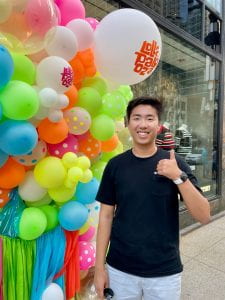
Jason Yang (he/his)
WCAS ’23 (Neuroscience) – AYURG
Jason Yang

Please provide a brief summary of your research.
The sense of touch is critical for humans, and our daily interactions with objects require accurate tactile perception. To better understand the associated neural processes, functional magnetic resonance imaging (fMRI) during tactile stimulation can identify how tactile signals travel within the central nervous system. However, there is a lack of stimulators that provide constant forces resembling the natural grip forces used in object manipulation. We developed a novel system that delivers accurate, localized, and automated constant-force stimulation that can be used in studies of tactile perception in various populations, such as those with stroke.
What made you initially interested in researching your project in particular?
I have always had an interest in the technology behind medical imaging, and I find it fascinating that we have the capability to see within the body. When I joined the Robotics and Sensorimotor Control Lab, which was focused on researching how humans perceive somatosensory signals, I wanted to integrate neuroimaging into the study of tactile perception. My PI and I worked together to develop a new research direction utilizing fMRI to study the neural correlates of tactile perception.
What made you interested in pursuing (interdisciplinary) research more broadly?
I enjoy trying to tackle complex challenges on the forefront of a particular topic, and I find it rewarding that my work will eventually have a real impact on people around the world. I also love the interdisciplinary aspect of research and being exposed to so many different industries and fields. Collaborators on my project included roboticists, mechanical engineers, computer scientists, neuroscientists, and more!
Describe your experiences with research thus far. Was it tricky? What skills do you think you’ve gained?
Over the 2-3 years that it took to complete my research, there were certainly some challenges. I think the hardest part was trying to coordinate the different components of the project and ensuring that each team knew what the end goal was. I definitely developed skills in effective communication and delegation. Also, while it was daunting at first, I found it especially rewarding to be able to work and make decisions independently. My experience with research has certainly prepared me for working in the “real world.”
Any tips or advice you have for students similar to you that are interested in pursuing undergraduate research?
I would say to find something you are truly interested in, especially if you plan on starting a project and following through with it to the end. On this point, I think finding a lab or PI that allows you to take control over a project is especially important. Being able to go through the whole “scientific method” was the best way for me to develop my research skills.
If you had unlimited time, money, resources, support, etc. what is something you would research?
How to cure color blindness (I’m color blind…)
Favorite bathroom on campus?
First floor of Bienen
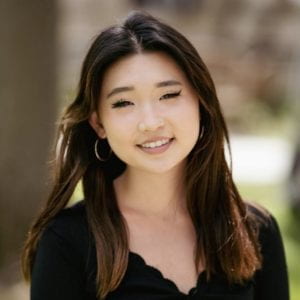
Lynn Ahn (she/they)
SESP ’25 (Legal Studies & Social Policy) – Emerging Scholars
Lynn Ahn

Please briefly summarize your research.
As an Emerging Scholar, I conducted literature reviews, critically analyzed testimonios, and edited Dr. Alyssa Garcia’s manuscript, Moral Discourses, Regulated Bodies: Sex, the State, and Subjectivity in Cuba.
What made you interested in pursuing (interdisciplinary) research more broadly?
I was interested in getting hands-on experience with research and academia.
How has it been working with faculty to transition from an assistant position to a more independent role?
Working with a faculty mentor helped with independent research because I was able to get experience before starting my own project. It made starting an independent project less intimidating.
What’s been your favorite part about being in a cohort with other scholars?
My favorite part has been the community, especially with people who share similar experiences to me.
Do you have any tips or advice for first years similar to you who are interested (but maybe hesitant) to apply for a 15 month long program?
You should go for it! It is intimidating but it is a great experience. It isn’t easy, but you will learn a lot.
If you had unlimited time, money, resources, support, etc. what is something you would research?
Victim’s Economic Security and Safety Act, Employment protections for survivors of sexual and domestic violence
Favorite bathroom on campus?
Lincoln has the best bathrooms
What’s the most interesting thing you’ve learned/read about/listened to this week?
I finished On Earth We’re Briefly Gorgeous yesterday!
What is your most useless talent?
I’m really good at putting on fake eyelashes
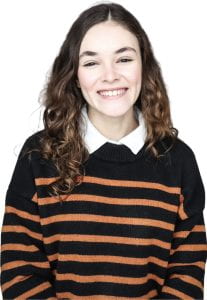
Ana de Souza (she/her)
McCormick ’25 (Industrial Engineering & Management Sciences) – URAP
Ana de Souza

Please provide a brief summary of your research.
Anterior temporal lobectomy (ATL) involves the surgical resection of left or right medial temporal lobe (MTL) structures to control seizures in 80% of patients with medication-resistant temporal lobe epilepsy (TLE). MTL supports the formation and retrieval of memories for past experiences, so the benefits associated with ATL must be balanced with the risks of memory decline. Currently, presurgical memory lateralization relies on an invasive procedure called the Wada test, which can be inaccurate, particularly in younger children or those with developmental delays. This project aims to improve memory outcomes in pediatric TLE patients by using fMRI to determine memory lateralization prior to left or right ATL. To achieve this, we designed two memory tasks to be performed in-scanner, one examining associative memory and one examining naturalistic event memory. In healthy participants, we hypothesize bilateral MTL activation during the performance of both tasks. In patients with left or right TLE, we hypothesize greater activation lateralized to the non-epileptic MTL. Now, we are leading pilot testing of the memory tasks and subsequent data collection in healthy children and adolescents. Once we analyze the data, we plan to recommend one or both tasks to be paired with fMRI and employed in the presurgical evaluation of pediatric TLE patients. We further plan to pair the tasks with intracranial EEG during presurgical monitoring to examine the neurophysiological mechanisms underlying fMRI effects. We hope the findings of this project indicate that our clinical memory task method can replace the Wada test for patients being considered for ATL.
What made you initially interested in researching your project in particular?
My major (Industrial Engineering) is not related to this area, but I took an Intro to Psychology class and became genuinely interested in Neuroscience topics. I wanted to learn more about it and I also thought it would be fun to work with kids when we got to the data collection phase! My major is very quantitative (a lot of Statistics and Computer Science), so I was very excited about applying my theoretical knowledge to this project, especially because I was so interested in it.
What made you interested in pursuing (interdisciplinary) research more broadly?
First, I wanted to find a hands-on experience to apply all the theoretical things I am learning at Northwestern. Second, I was curious about what doing research would be like; I had never been part of a research project before and wanted to try it out.
Describe your experiences with research thus far. Was it tricky? What skills do you think you’ve gained?
I had a great experience! Dr. Johnson (my faculty mentor) was very supportive and willing to teach me. While I was coding the behavioral tasks, I also had a lot of autonomy, which was very exciting. Though this project, I ended up discovering I really enjoy Neuroscience! The projects I am working on are challenging but the support of my lab and my genuine interest in the research keep me going. Two of the most important skills I’ve gained are not being afraid to ask for help and not running away from challenges.
Any tips or advice you have for students similar to you that are interested in pursuing undergraduate research?
Find something that you are genuinely interested in – this will make a huge difference in the long run! Also, don’t give up on finding a lab and use the Office of Undergraduate Research resources.
If you had unlimited time, money, resources, support, etc. what is something you would research?
I would still research the same thing!
What is your most useless talent?
If I feel tired, I can sleep anywhere. And I really mean anywhere.
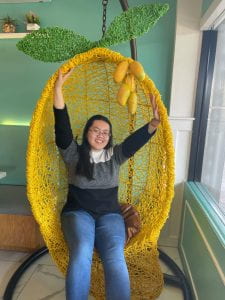
Betty Dong (she/her)
WCAS ’25 (Econ & Math) – URAP
Betty Dong

Please provide a brief summary of your research.
I helped Melissa gather sources from academic papers to video interviews for a book about history of Hip-Hop— from its origins to various stylistic methods that artists implement today. In addition, I also worked on restyling some presentations for her vocal classes.
What made you initially interested in researching your project in particular?
I like music and history! I wanted to get exposed to more types of music and be more knowledgeable in regards to different cultures and genres. Melissa was also a lovely faculty-in-residence for the South Area last year <3
What made you interested in pursuing (interdisciplinary) research more broadly?
I like many things but I wasn’t sure if I should do research, so I just decided to try it out. Interdisciplinary fields seem to flow naturally with any subject, since the world is connected to each other.
Describe your experiences with research thus far. Was it tricky? What skills do you think you’ve gained?
Overall, it was really fun! I had the opportunity to both enjoy summer and learn more about how to actually do research. I think time management and clear communication were skills that I’ve gained throughout this experience.
Any tips or advice you have for students similar to you that are interested in pursuing undergraduate research?
Try it out! If you like it, that’s great. If you don’t, at least you know you won’t be a researcher for the rest of your life. No regret-life.
Favorite bathroom on campus?
One of the fancy ones in Kellogg or the Allen Center
What’s the most interesting thing you’ve learned/read about/listened to this week?
Sign — ONEW
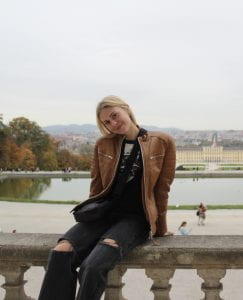
Ani Feinberg (she/her)
Soc & WCAS ’24 (Communication Studies & International Studies) – URAP
Ani Feinberg

Please provide a brief summary of your research.
Last summer, I had the privilege of working with Professor Larissa Buchholz to create a systematic literature review for her research project on the globalization of art and cultural production. Literature reviews are an essential first step in any research project because they help the research team gauge how much information is available on their topics of interest, as well as the types of questions that have already been asked. Using the online platform Endnote, I developed of bibliographical archive of all the pre-existing research and writing that was relevant to art and globalization. Towards the end of the summer, I worked on analyzing all this literature, identifying common themes and significant patterns that guided Professor Buchholz in her own research the following fall.
What made you initially interested in researching your project in particular?
I was initially drawn to this research project because of my interests in International Affairs and my background in the arts world. I was a ballet dancer all throughout high school (and briefly into college!), and I felt that Professor Buchholz’s work was the perfect blend of this particular passion and my separate academic pursuits. In the classroom, I have studied quite a bit how globalization has impacted the world economy, politics, and social activism–however, before joining this project, I had yet to truly explore the intersection of globalization and art forms (such as dance, poetry, painting, films, music, etc.). It is truly fascinating to question what motivates humans around the world to share, invent, and mimic these different practices. Professor Buchholz’s project allowed me to explore a field of study I was both extremely unfamiliar with and highly curious about.
What made you interested in pursuing (interdisciplinary) research more broadly?
I am a firm believer that the research process teaches valuable practices that can be applied to almost any career path. I knew that by pursuing some form of research, I would help to improve my organizational, collaborative, and analytical skills enormously.
Describe your experiences with research thus far. Was it tricky? What skills do you think you’ve gained?
My experience was definitely not easy. Prior to this research, I did not have much experience with coding or computer software tools, and it took a good amount of practice to get to a place where I was comfortable inputting all of our work into various online databases. Nonetheless, this just reminded me of my ability to learn quickly and adapt to changes, even well into my college career. I walked away from this experience feeling much more confident using technology as a means for more efficient research collection and analysis.
Any tips or advice you have for students similar to you that are interested in pursuing undergraduate research?
Even if you do not think it will be an important aspect of your career later on, give undergraduate research a try! There’s no better time to try new kinds of work and learning than in college. You have nothing to lose with research–only skills to be gained.
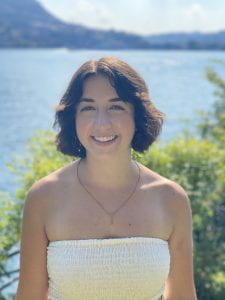
Morgan Willison (she/they)
WCAS ’25 (Psychology; Gender & Sexuality Studies) – CTG
Morgan Willison

Please provide the tile and a brief summary of your research/conference presentation.
Title: How Do Transgender and Non-Binary College Students Define ‘Having Sex’? My research investigated how transgender and non-binary college students define the phrase ‘having sex’ and the factors that influence those definitions. I interviewed 8 self-identified non-cisgender college students and used a phenomenology framework of analysis to code for significant themes. The findings of my research reveal how participants’ gender identities impact their sexual experiences and highlights their need to redefine and construct their own definitions of ‘having sex,’ outside of the cis-heteronormative definitions that they learned from Sex Education classes, popular media, or their peers.
What made you initially interested in researching your project in particular?
In my first sexuality studies class at Northwestern (shout out Introduction to Sexuality Studies with Professor Fenrich), we had a guest lecture by Linguistics Professor Gregory Ward on how several populations define ‘having sex.’ Looking at the existing scholarship, I realized how each study, even the queer-friendly ones, relied on a strict gender binary and the conformity of its participants’ bodies to cisgender norms. I was interested in adding transgender and non-binary voices to this incredibly important conversation that affects sex education curriculum, medical inquiry into sexual behavior, and support for sexual well-being.
What conference(s) did you present at and how did you find out about them?
Moving Transgender History Forward 2023 at the University of Victoria; I was looking for places to submit my work as I had just begun writing up the final article and got really lucky to stumble upon their information!
What was it like presenting at a conference? Anything that you didn’t expect?
I presented a virtual poster so I actually got to record a video presentation to submit before the conference began. I really appreciated that as it eased some of the nerves of presenting my research for the first time. As the conference wasn’t only for undergraduates, I went in expecting no one to be interested in my work, as they were mostly graduate students and professors but everyone was really kind! Throughout the conference, so many people asked about my work and future interests and even offered to put me in contact with others working on similar projects!
Any tips or advice you have for students similar to you that are interested in presenting at a conference one day?
I would absolutely recommend it. If you’re anxious about presenting in front of a crowd, look for virtual options so you know your presentation is already complete and you can focus on learning from and talking with others! Also, it can be intimidating to ask questions of presenters but I haven’t had a bad experience yet, and usually they’re just thrilled someone is interested in learning more. A great question to ask if you’re not sure what to say but want to start a conversation with them is “was there anything really interesting about your research that you didn’t get to share in the presentation?”
What is your most useless talent?
I can make my tongue roll into a clover shape!
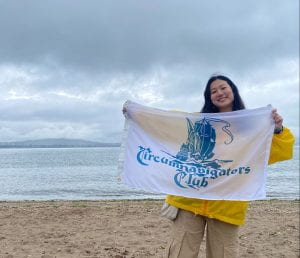
Elizabeth Hyun (she/her)
WCAS ’24 (Neuroscience & Global Health)
Elizabeth Hyun

Can you briefly summarize your project and share what made you initially interested in that topic?
My project focused on psychological trauma across 5 different countries: Argentina, Northern Ireland, Bosnia, Japan, and South Korea. I became interested in this topic while taking a class on trauma in the Global Health Department in the fall of my Junior year. In the class, I realized that I had a lot of questions about trauma and mental health. For example, I was curious about how perceptions of trauma and spaces for trauma care differed across distinct cultural contexts. My research this summer helped me to answer some of these questions and allowed me to learn from incredible experts in the field.
What was the most unexpected or challenging part of your trip?
The most challenging part of my trip was conducting interviews with multiple language barriers. Even though most of my interviewees were fluent in English, it was still difficult to translate some words regarding trauma and psychology. Also, there are always words that don’t completely translate into another language. So, when my interviewees would talk about their life experiences, sometimes it was challenging to authentically understand their experiences and emotions.
In what ways do you think circumnavigating the globe helped you grow?
I think this is a tough question and one that I am still in the process of realizing. I believe that this trip helped me to grow in many different ways. I learned how to enjoy my own company, how to become comfortable with being uncomfortable, and how to connect with people from different backgrounds and across different ages. I learned the importance of flexibility and open-mindedness in traveling. Finally, I learned that there are many different versions of living a successful, happy, and meaningful life, that there isn’t just one designated way for doing things.
What did you miss most from home while you were abroad?
My friends and family. And AC.
Do you have any advice for students interested in the Circumnavigator Grant?
My advice for anyone interested in this grant would be to apply. I think that this is a once in a lifetime opportunity and the rewards from this experience outweigh the challenges during the application process. Also, there are so many people at Northwestern who are here to support you!
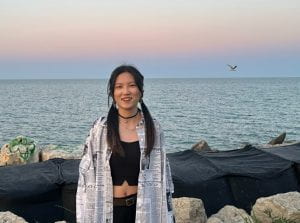
Yao Xiao (she/her)
SoC ’24 (Psychology; Math; RTVF) – AYURG
Yao Xiao

Please provide a brief summary of your research.
My research project looked into the role of insights, or “Aha” moments, in mathematical problem-solving. It turned out that people did experience insights, sometimes multiple, when solving a math problem. What’s more, people are more likely to reach a correct answer, and more confident in the correctness of their solutions if they experienced insights when solving math problems. These suggest that insight may play an important role in facilitating math problem-solving and providing a more positive subjective experience of doing math. My results are interesting in that they provided a new perspective to look at math problem-solving. People often think math is step-by-step and boring, while being intimidating. But my research suggests that creativity and spontaneity are important parts of math as well, and maybe they should be emphasized more in math education in real life. Besides, my results hint that insights might have various functions besides leading to the solutions directly, contributing to our current understanding of insights.
What made you initially interested in researching your project in particular?
I major in both psychology and math. When I learned about the concept of insights, or “Aha” moments, I immediately related it to my own experience of doing math. Then, I had the luck to meet my supervisor who also has background in math and resonates with me on the math insight experience. What’s more, math insights are frequently suggested in the anecdotes of famous mathematicians. However, the research on this phenomenon is very limited. So with the curiosity on this special cognitive process in math problem-solving, I became interested in conducting my AYURG project.
What made you interested in pursuing (interdisciplinary) research more broadly?
Curiosity! I am always inclined to probe into the “why”s and “how”s in life, even if they seem trivial. When I work out a math problem, succeed in doing a tricky movement on ice skates, etc., I often jump out of the moment and think: how did that happen? Research is a great way to find out the answers of millions of such questions in my mind. I am also excited to see how research can make a difference in the world via understanding the world better.
Describe your experiences with research thus far. Was it tricky? What skills do you think you’ve gained?
I think the trickiest part of research for me is to communicate it with others, while it is one of the most important parts of research. I have learned repetitively that I can’t assume others know my research project as well as I do when I explain it to them. Realizing this, I am hopefully growing to be a better speaker and listener.
Any tips or advice you have for students similar to you that are interested in pursuing undergraduate research?
Go for it! No research question is too trivial to probe into. Also, be sure to share your research with others. Sharing will probably be more rewarding and inspiring than you would imagine.
What is your most useless talent?
Sensing that a *gorgeous* sunset is going to happen
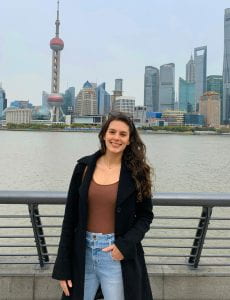
Marina Jardim (she/her)
WCAS ’24 (Biological Sciences) – URAP
Marina Jardim

Please provide a brief summary of your research.
My research investigated how two proteins, dynein and ZYG-8, work together to promote proper spindle assembly during meiosis in C. elegans eggs. Meiosis is a type of cell division that creates eggs (oocytes) and sperm. Proper spindle assembly is vital for proper chromosome segregation during meiosis, which is needed to produce viable sex cells. Although structures known as centrosomes organize spindles during mitosis, they are absent in oocyte meiosis. Recent research at the Wignall Lab shows that these acentrosomal spindles are formed and stabilized by a variety of proteins in C. elegans oocytes, which are found in similar forms (homologs) in humans. Two of these proteins are dynein and ZYG-8, but their interactions with each other–if there are any–were still unknown. Therefore, my goal was to investigate how these two proteins might interact to assemble and maintain proper acentrosomal spindles, and promote proper chromosome segregation during oocyte meiosis.
What made you initially interested in researching your project in particular?
When I first came across the research at the Wignall Lab, I was marveled by their findings and ongoing projects. As a Pre-Med interested in molecular biology and OB-Gyn, investigating factors that contribute to the formation of viable oocytes immediately piqued my interest. Dr. Sadie Wignall and her graduate students’ research are providing a broader and more detailed understanding of proper spindle formation, which is a step towards understanding the underlying causes of birth defects and miscarriages in humans. One of the graduate students at the lab, Emily Czajkowski, needed help with her research. After spending a full quarter training and helping Emily advance her experiments, I decided to continue at the Wignall lab and launch my project to potentially expand her research!
What made you interested in pursuing (interdisciplinary) research more broadly?
I applied for the URAP program because I wanted to see if research was right for me. Even though I spent hours in the lab for my Pre-Med classes, I knew that research outside of the classroom would be different. I spent one quarter training with my mentor, Emily, who is part of the Interdisciplinary Biological Sciences Graduate Program. I thoroughly enjoyed problem solving and having deep discussions on our experimental results, which required an interdisciplinary approach. At the end of the quarter, I knew research was something I wanted to pursue further through URAP to continue applying my knowledge, practicing my critical thinking skills, and contributing to exciting, pioneering research.
Describe your experiences with research thus far. Was it tricky? What skills do you think you’ve gained?
Through this experience, I learned the ins and outs of scientific research; it can be procedurally complex, and a lot of times, things that may work in theory might not work in practice. Research is a constant process of trial and error, but when you get those “wins” and reach new conclusions, the process becomes rewarding and exciting. I learned a variety of wet-lab skills, how to use one of the world’s most sophisticated microscopes (Deltavision), and the importance of peer discussion and collaboration. Science is often seen as a competitive field, but this experience has shown me that it is rather a supportive space, driven by collaboration.
Any tips or advice you have for students similar to you that are interested in pursuing undergraduate research?
If you are interested in pursuing undergraduate research, I would highly recommend the URAP program! You will learn a lot from the incredible graduate students and faculty at our university, form meaningful professional relationships, and gain a greater insight into their ground-breaking work. I would suggest that you learn about the ongoing research happening on campus and reach out to a professor whose research appeals to you. Sometimes it takes multiple emails to reach them, but take advantage of the URAP advisors to craft a nice letter and don’t give up until you get a response! Finally, I would suggest getting to know the professor or graduate student you are interested in working with before asking for or committing to a research opportunity. This way you can ensure your goals align with theirs, and that you will become great partners in the future.
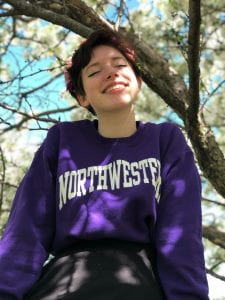
Elizabeth Dudley (she/her)
WCAS ’24 (Economics & Art History; Minor in Design) – Summer URG
Elizabeth Dudley

Please provide a brief summary of your research.
My research looked at how factors beyond an individual school/teacher (such as recessions, state education budgets, and the time of year) affected success rates and fundraising outcomes in crowdfunding for public schools. Another significant part of my research was looking at equity in outcomes by community prosperity at the school and state levels. The final findings of my research provided some interesting understandings of how equity in crowdfunding is more complicated than it seems. Success rates correlate with e, and projects’ success rates varied significantly by the type of materials requested and the proportion of high-poverty students; but schools with higher levels of poverty were less negatively affected by recessions.
What made you initially interested in researching your project in particular?
After completing a comprehensive literature review of crowdfunding with Dr. Gerber through URAP, I wanted to dig in deeper to one particular niche. Education crowdfunding was particularly interesting because I’d seen a lot behind the scenes of school fundraising through my mom’s work, so it was neat to explore a different format of funding schools.
What made you interested in pursuing (interdisciplinary) research more broadly?
Research interests me because you get to spend so much time with a particular topic of interest – on the quarter system, it feels like you’ll only get to spend a week or two on a class topic you care about before it breezes by!
Describe your experiences with research thus far. Was it tricky? What skills do you think you’ve gained?
The hardest thing about research so far has been finding my initial footing – I got rejected from a few programs before I started with Dr. Gerber through URAP. It was difficult to not compare myself to friends who had smoother paths into research, but no two research journeys are truly comparable. Learning to understand that we’re on similar, but not the same, paths is a really important skill I constantly develop. You’ll always get to where you’re meant to be in the way that’s right for you, even if it’s not as fast as it feels like you want it to be!
Any tips or advice you have for students similar to you that are interested in pursuing undergraduate research?
Be persistent in every way! Email professors you’re interested in working with and keep emailing until you can connect & don’t let one ‘no’ discourage you. I know it’s a lot easier said than done, but getting back up once you’ve let the disappointment process is another step closer to your goal. Above everything else, persistence is what’s gotten me through every research issue from finding a mentor to software problems.
What is your most useless talent?
I’m ambidextrous, but only for doing winged eyeliner!
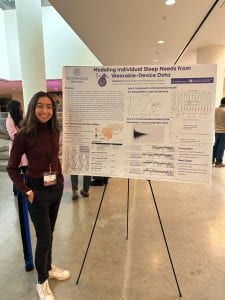
Palak Shah (she/her)
WCAS ’24 (Biological Sciences, Computational & Systems Biology; Minor in Data Science) – Conference Travel Grant
Palak Shah

Please provide the tile and a brief summary of your research/conference presentation.
Title: Modeling Individual Sleep Needs from Wearable-Device Data An individual’s natural sleep and wake cycle plays a critical role in nearly every aspect of their daily life. There are currently thought to be two processes that interact to regulate one’s sleep/wake cycle: a sleep homeostat, which depends on the amount of time you have been awake; and the circadian rhythm, an internal 24-hour molecular clock present in nearly every cell of the body. Both processes differ between individuals, whether that’s from a decision to pull an all-nighter one day or from a genetic inclination towards being an “early bird” or a “night owl”. This project focuses on building a model that can predict how particular sleep disruptions impact an individual’s sleep cycle, as well as their ability to recover from these disruptions. These processes have been studied and modeled using mathematical equations, which I was able to rewrite as more biologically realistic equations, and implement as code, resulting in a computational “two-process” model that can simulate a theoretical sleep-wake cycle with disruptions. Once we have a model that can use an individual’s data to predict their optimal sleep despite disruptions, it could be used in the field of sleep medicine to identify and address parameters affecting those with sleep disorders. Given its versatility, the model could also be used by anyone experiencing disruptions due to travel, social events, work, or family, and provide information about how to get sufficient sleep regardless.
What made you initially interested in researching your project in particular?
I actually took a course called Modeling Biological Dynamics with Prof. Rosemary Braun, who is my mentor for this research project, and in that class, we learned mathematical and computational techniques for analyzing and predicting biological dynamics. So much of biology is made up of these dynamic systems, and it is incredible to see how we can model those computationally! It was eye-opening to be able to implement equations into code and see a system “come to life” as I generated the plots on my computer, and further, to be able to change parts of those equations and see how it impacts our system. The course was incredible & solidified my already intense passion for computational biology 🙂 Prof. Braun played a huge role in that, because in lecture she would be just as excited about whatever we were going to cover that day and she went above and beyond in explaining how and why these dynamic models are made and what makes them work. She happened to be starting a new project on modeling individual sleep cycles after our course ended, and reached out to see if any students would like to join – which became the opportunity of a lifetime for me!
What conference(s) did you present at and how did you find out about them?
National Collegiate Research Conference – I found out by doing a Google search for upcoming undergraduate research conferences because I hadn’t gotten the chance to present my research yet and was itching to do so!
What was it like presenting at a conference? Anything that you didn’t expect?
I really enjoyed it 🙂 I didn’t realize how awesome it would be to talk to other people about my research and get them just as excited as I am about the project. Since this was an undergraduate research conference, instead of focused on a specific subject area, I was also just blown away by the breadth of research projects that students around the world are working on. It was incredible to meet and learn from my peers in such an intellectually stimulating environment at Harvard University.
Any tips or advice you have for students similar to you that are interested in presenting at a conference one day?
I would definitely recommend starting off with an undergraduate conference – a great option being the OUR’s Annual Research Expo in the Spring – because it’s honestly a lot less nerve-wracking for your first-time presentation to be to mostly undergraduate students who can relate to your current experience. That being said, presenting your work is really just a valuable experience that lets you discover more about your own project, and allows you to connect with other researchers like yourself, who are all working towards this common goal of bringing new information into the world.
If you had unlimited time, money, resources, support, etc. what is something you would research?
I’ve always been curious about the presence of so many squirrels on every college campus I’ve seen – so I’d want to find out if there is a significant correlation and if so, why? Who knows, maybe squirrels are all insanely smart and they just come to listen in on our classes and stuff?
What is your most useless talent?
I can make any animal sound … a little too spot-on
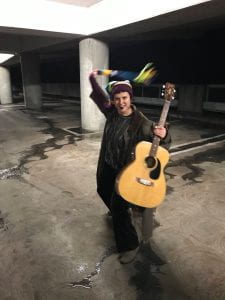
Lucy London (she/her)
SoC ’23 (Performance Studies; Minor in Environmental Policy & Culture) – Summer URG
Lucy London

Please provide a brief summary of your research.
For my project I performed on various street corners around the country, from Chicago to San Francisco, Seattle to Juneau, Alaska, to research how music and performance reflects and changes the mood of a space, and how it has the power to draw passersby into an emotional headspace and create deep connections in an ever-estranged world.
What made you initially interested in researching your project in particular?
I like to sing with my guitar on the street and I felt there was a lot to unpack about the experiences I had doing that.
What made you interested in pursuing (interdisciplinary) research more broadly?
I wanted to focus my attention on something meaningful to me and try to parse our what made it meaningful and useful for the world.
Describe your experiences with research thus far. Was it tricky? What skills do you think you’ve gained?
Although I had a lot of fun doing my research, it was oftentimes also scary to get in front of a crowd of un expecting passersby to sing a song. It put me on the journey of learning how to let go of my filter of whether something is socially acceptable and just allowing whatever happens to transpire. Usually it heeds exciting results.
Any tips or advice you have for students similar to you that are interested in pursuing undergraduate research?
What makes you come alive? Follow that! Go for it!
If you had unlimited time, money, resources, support, etc. what is something you would research?
Why humans are never satisfied
What is your go-to phrase to yell during the finals “Primal Scream”?
Aaaaaaaaaaaaaah (with a yodel)
Favorite bathroom on campus?
Parkes Hall secret bathroom on the first floor
What’s the most interesting thing you’ve learned/read about/listened to this week?
In the scope of eternity, everything is just as it should be, and that since time isn’t real, everything is perfect and all is well.
What is your most useless talent?
I can sing opera while walking on my hands (but I think it’s pretty useful).
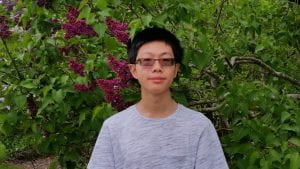
Roy Zhu (he/they)
WCAS ’25 (Environmental Science & English) – Emerging Scholars
Roy Zhu

Please briefly summarize your research.
I’m really interested in community archives and participatory storytelling/archival work that takes place in queer communities! Last summer, I worked with Professor Rodriguez at the Puerto Rican Cultural Center in Humboldt Park, Chicago, where a community archive project is underway to collect materials from multiple eras of political activism, resistance, and community formation in the Puerto Rican neighborhood known as Paseo Boricua. This summer, I’m working on creating an oral history and multimedia archive of the experiences of queer Asian Americans in the Boston area, where I am originally from. I will be interviewing queer Asian people from different walks of life, focusing specifically on feelings of isolation, community, and political/social involvement. I am also hoping to collect some materials and media that will serve as an archive of queer objects. The aim of my research is to promote the sharing of queer wisdom and sites of belonging.
What made you interested in pursuing (interdisciplinary) research more broadly?
I have always found it hard to restrict my interests into one category! And I think it’s cool that we’re becoming more used to seeing people combine different sources of knowledge and deconstructing what is a “hard science” or “humanity” or whatever. I’ve been inspired by a lot of knowledge-synthesizing fields like queer ecology or Black geography, which are reshaping how we think about the laws that govern our bodies and relations.
How has it been working with faculty to transition from an assistant position to a more independent role?
My faculty advisor was really determined to help me succeed at my own project and so my transition from assistant to independent role was very smooth. I was able to use a lot of skills and foundational knowledge that I gained from working for the PRCC archive to think about what roles a community archive might play in a queer and Asian space. Working closely with Prof. Rodriguez has helped me navigate building my own project without feeling overwhelmed.
What’s been your favorite part about being in a cohort with other scholars?
I love the community that we have and I love how passionate and empathetic everyone in my cohort is. It makes me feel much more confident in myself and reassures me that my research is valuable!
Do you have any tips or advice for first years similar to you who are interested (but maybe hesitant) to apply for a 15 month long program?
There is flexibility! A lot of stuff can happen/change in 15 months and that’s okay! You can still do the program. And you don’t need to confine yourself to the same research that your professor/mentor is doing! Also, finding a place to stay over the summer and taking care of yourself can be intimidating, but Chicago is an amazing place to be and there are a lot of fully furnished apartments you can sublet around campus!
Favorite bathroom on campus?
Willard – double shower curtains!
What is your most useless talent?
Keeping a long Duolingo streak
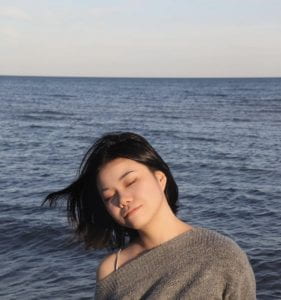
Joy Fu (she/her)
WCAS ’24 (Linguistics & International Studies; Minor in Data Science) – Summer URG
Joy Fu

Please provide a brief summary of your research.
Past research in syntax has shown that a phenomenon called “grammatical illusion” exists in English. “Grammatical illusion” happens when native speakers of a language erroneously accept ungrammatical sentences. For example, in “The key to the boxes are on the table” (Bock & Miller, 1991), the plural noun, boxes, makes readers erroneously accept this sentence. More specifially, researchers have found grammatical illusions in English “locative constructions,” which refer to sentences like “Mary put chocolates in a container” or “I poured water into the cup” (Kim & Yoshida, 2016). So far, there has been no related research in Mandarin Chinese. In my research, I aim to answer the following questions though studying Chinese locative constructions: Do grammatical illusions exist in Mandarin, or is the phenomenon only observed in English? If it does, in which environments are such illusions most prevalent?
What made you initially interested in researching your project in particular?
Before Winter 2022, I had never thought that I would pursue research in syntax. Although I was already a Linguistics major interested in human language at the time, the connection between language and social factors (sociolinguistics) excited me the most. In Winter 2022, I took Prof. Masaya Yoshida’s class on syntax. Hoping to understand the relationship between syntax and sociolinguistics, I went to Masaya’s office hours. Little did I know, our discussions opened a new world for me: As a bilingual speaker, how does my Chinese syntax affect my English? How can Chinese and English syntax be similar in unexpected ways? These questions motivated my research questions for this project and drives me to fill the gap in the field of Chinese syntax research.
What made you interested in pursuing (interdisciplinary) research more broadly?
Research has always been a way to fulfill my curiosity, intellectual or not. It also enables me to explore different facets of my identity in a systematic way. For example, I enjoy watching New Wave films, and I’m also interested in diverse Chinese dialects. Last year, I was able to combine these two interests of mine in my research project “The Use of Languages in Taiwan New Cinema.” I was able to watch as many Taiwanese films as I wanted and learn more about how history affected language manifested in the films. Research allows me to dive deeply into my passions, and that’s why research has also become one of my passions.
Describe your experiences with research thus far. Was it tricky? What skills do you think you’ve gained?
Research is definitely not a linear process. The most important skill I’ve gained through research is the ability to adapt to new challenges that might come up. For example, this summer, I found out that there was barely any literature related to Chinese locative verbs, so I went ahead and constructed thousands of sentences on my own. In the data collection process, because there are less Mandarin native speakers in the U.S., recruiting participants was very tricky. I learned that patience is key, and that it’s always important to trust the process.
Any tips or advice you have for students similar to you that are interested in pursuing undergraduate research?
Talk to your professors and go to office hours! You never know if you’ll find out about a topic that interests you.
What is your most useless talent?
I can taste how fresh a cooked shrimp is (how long it has died)
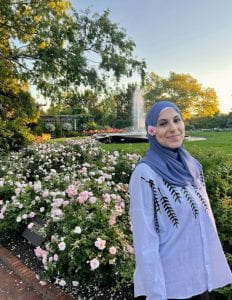
Rama Darayyad (she/her)
SoC ’25 (Human Communication Sciences/CSD) – ULG
Rama Darayyad

What language did you study and why?
American Sign Language (ASL) – I chose to specifically study ASL because proficiency in this language is essential to my ultimate goal of becoming a hearing healthcare professional qualified to visit underserved countries to serve Deaf refugees and individuals with hearing loss around the world. Not to mention — ASL is a really cool and unique language!
What program did you attend and why did you choose it?
I had the opportunity to study ASL in an 8-week intensive course at the University of Chicago’s Summer Language Institute, providing me with a year’s worth of ASL instruction. I specifically chose it as my language program primarily because it is only one of two programs I have found that satisfy the requirements of the ULG grant for American Sign Language, as agreed upon by an advisor: the 220 hours of instruction, in which I studied ASL for five hours a day, five days a week for two months, proved to be the longest and most immersive, affordable course I could find available. Also, one of my favorite aspects was that the course was taught entirely by an individual who is Deaf, making the experience more authentic and rewarding.
Describe your experience doing summer language study. Was it tricky? How do you think your language skills improved?
It definitely wasn’t as easy as I thought it would be! It required constant review and repetition, but this ultimately helped improve my language proficiency. Also, since communication in ASL is based on visual signs mainly done through hands, facial expression, and body language, I had made this my reality even outside of class. Sometimes, when I speak with my family — even today, I still sign what I say to make sure I don’t forget my vocabulary. I ultimately realized that language is all about practice, if you don’t retain it through consistency and repetition, you will lose it just as easily as you learned it.
Did intensive summer language study change or solidify any of your future goals? If so, how?
It definitely solidified my future career goal of becoming a hearing healthcare professional qualified to serve individuals who may utilize ASL. Before my program, I was inspired by ASL, and now, I’ve immersed myself in it! I’ve learned more about deaf culture, language acquisition and experienced being part of an amazing community that I don’t want to let go of. When school gets overwhelmingly difficult, I think of my experience learning ASL over the summer and it motivates me to work harder towards the career goals I yearn to achieve in the future.
Do you have any tips or advice for students similar to you that are interested in pursing intensive language study?
Just go for it!! Even if you think it’ll be difficult because the language you want to study is not very well-known or there aren’t many programs for it, don’t let that stop you from trying. I hope my journey of being the first recipient to successfully be funded the ULG to study ASL can be of motivation and proof that is IS in fact possible.
What is your go-to phrase to yell during the finals “Primal Scream”?
I haven’t done it yet, but I plan on doing so this quarter though because it’s been my worse one yet haha!
Favorite bathroom on campus?
SHEPARD Hall!
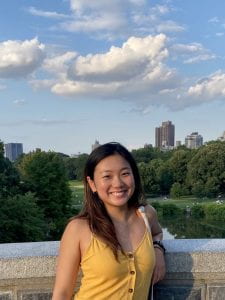
Elizabeth Hyun (she/her)
WCAS ’24 (Neuroscience & Global Health) – 2023 Circumnavigator
Elizabeth Hyun

Please provide a brief summary of what you plan to research over the summer, where you plan to go, and why you chose those locations.
I plan on researching the factors that contribute to the prevalence of trauma diagnoses in Argentina, Northern Ireland, Bosnia and Herzegovina, Rwanda, and South Korea. I chose these locations primarily because they are post-conflict regions, so they have a large population of traumatized individuals and spaces for trauma care. I also selected these countries because they offer valuable insight into the diversity of trauma narratives and experiences around the world.
What made you interested in pursuing interdisciplinary research?
I became interested in pursuing interdisciplinary research because I personally found that my passions rarely fit into one specific discipline. At Northwestern, I have really enjoyed taking a wide variety of courses from multiple departments every quarter, and as a pre-med student, I have learned that effective and compassionate healthcare encompasses knowledge and skills from a diverse range of disciplines. So, I am excited to integrate social science research into my academic career!
Describe your experiences with research thus far in your career.
I currently work as an undergraduate research assistant in an oncology lab at Feinberg. I have learned many practical scientific skills from working in this lab, but I also had a passion to learn more about mental health topics via ethnographic methods. I conducted mini research projects in a few of my global health courses by studying transgenerational differences in experiences of depression among 1st generation and 2nd generation Korean immigrants. However, this is the first time that I am pursuing a qualitative research project of this size.
What made you initially interested in researching your topic in particular?
I became interested in researching trauma in particular because I believe that the world we live in today is deeply traumatic; I want to learn more about the experience of trauma and trauma care as it is a globally meaningful topic. I also became intrigued by the complexity of trauma as a psychological, social, and clinical phenomenon when I took a course on trauma last quarter.
Any tips or advice you have for students interested in pursuing undergraduate research?
I think that the biggest piece of advice that I have in pursuing undergraduate research is to trust your passions! There is a really great network of support at Northwestern from faculty and the Undergraduate Office of Research to help you reach your goals.
Which aspect of your trip are you most excited about?
One of the most enjoyable parts of traveling is the relationships and connections that I get to make with different people, so I am the most excited about all of the people that I am going to meet and learn from in the 5 countries that I will visit. I am also excited about all the different types of food that I will get to experience!
Do you collect anything?
I love to collect postcards from the places that I visit around the world. Sometimes I will put them up on my wall so that every time I look at them, I can remember the experiences that I had in my travels, and other times, I will use them to write cards to friends and family.
What is your favorite dessert?
My favorite dessert at the moment is a chocolate molten lava cake!
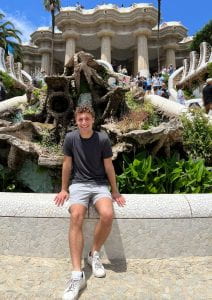
Andrew Daniels (he/him)
SoC ’25 (Communication Studies; Minors in Business Institutions, Spanish) – ULG
Andrew Daniels

What language did you study and why?
Having built a strong foundation in my Spanish skills throughout high school, which sparked my desire to become fluent and eventually work in Spain, I knew that studying abroad in a Spanish-speaking country in college would be the best way accelerate my language learning. I have always sought out ways to gain a deeper meaning of global connections through Spanish language, and studying Spanish as part of Northwestern’s Spanish Language and Culture Summer 2022 Program in Barcelona was the ideal way for me to improve my Spanish while making memories that will last well beyond my college years.
What program did you attend and why did you choose it?
I attended NU’s Spanish Language and Culture Summer Program in Barcelona. This specific program caught my attention due to the specialized curriculum Northwestern and the Universitat Pompeu Fabra have constructed for Northwestern students. The program also made the most sense given my future aspiration to work in Spain after graduation. Not only did studying in Barcelona allow me to absorb Spanish culture and traditions, but it also enabled me to refine my Spanish accent and jargon specific to Spain and its various regions.
Describe your experience doing summer language study. Was it tricky? How do you think your language skills improved?
My summer language study experience was incredible. The ULG made it possible for me to take advantage of everything my program had to offer. Of course, language learning in another country inevitably leads to challenges in adjusting to a foreign way of life. That said, many of my favorite memories were the result of being put in new contexts and learning to embrace cultural and linguistic differences. While regularly speaking the target language with classmates, professors, and locals can be intimidating, I found that my language confidence improved immensely the more I leaned into the language and spoke it as often as I could. As a result of my experience, I can confidently say I am a better Spanish speaker and a more thoughtful global citizen.
Did intensive summer language study change or solidify any of your future goals? If so, how?
My summer experience certainly solidified my love of Spanish language and culture, improved my skills, and assured me that my professional path should take me to Spain. Upon returning to campus from my summer abroad, I have continued my Spanish studies in classes and am seeking out work experiences in Spain. In fact, I just applied to a Madrid-based internship for the upcoming summer — a position that I would not have felt qualified to apply for if I had not participated in the Barcelona program. Pursuing the language study experience has prepared me to work, live, and make an impact in a Spanish-speaking country.
Do you have any tips or advice for students similar to you that are interested in pursing intensive language study?
My biggest piece of advice for future students would be to find ways to authentically practice your language of study. There is no replacement for intensive language practice with native speakers, so take advantage of every opportunity in order to refine you skills. One of my favorite memories from my experience over the summer was making connections with local store owners. I would go to the market and bakery each morning and have great conversations with the locals who began to recognize me as a regular and would always speak Spanish with me. It was such an amazing way to authentically practice my language skills while meeting people I never would have met if it weren’t for the ULG and this experience.
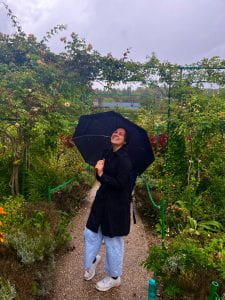
Victoria Grisanti (she/her)
WCAS ’23 (Religious Studies) – ULG
Victoria Grisanti

What language did you study and why?
I studied Swahili because I was interested in working in East Africa as a doctor one day. I firmly believe that learning the local language is the most important step one can take to provide ethical care when participating in international public health.
What program did you attend and why did you choose it?
I attended Howard University’s Swahili program because they have strong ties to the exchange university (Daystar University in Nairobi) and because the program values cultural exchange and immersion. I also had the chance to attend Pwani University on the coast of the Indian ocean which was incredible!
Describe your experience doing summer language study. Was it tricky? How do you think your language skills improved?
It was really difficult to start out because I was a complete beginner. All of the other students were significantly more advanced than me and I was so nervous. The learning curve was step but being surrounded by more advanced students actually helped me learn quickly! My Swahili went from complete beginner to high intermediate in only 6 weeks and I wish I could have spent more time learning in the immersive setting. I was able to haggle prices, joke with my Kenyan friends, and even give a 10 minute presentation by the end of my course.
Did intensive summer language study change or solidify any of your future goals? If so, how?
Studying in Kenya helped me realize that I am actually more interested in working within the US to help recent East African immigrants, rather than moving abroad myself. There is a significant lack of health professionals who can speak this language, despite the fact that 150 million people in East Africa speak it. Hearing how many of my Kenyan friends at my exchange university want to move to the US made me realize how necessary it is for people in the US to learn Swahili, especially in the medical field. Working within immigration in the US is a new goal that emerged from my time and experience in Kenya.
Do you have any tips or advice for students similar to you that are interested in pursing intensive language study?
Do not give up! It may seem overwhelming at first but it is an incredible opportunity. Learning intensively is so rewarding because you can see your growth, it happens so quickly!
What’s the most interesting thing you’ve learned/read about/listened to this week?
Harry Potter in french! I am living in Paris at the moment and reading Harry Potter in french, and the word for magic wand is “baguette magique” (not even kidding).
What is your most useless talent?
The slide whistle
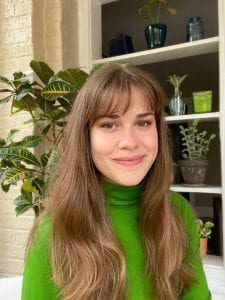
Danielle Llevada (she/her)
SoC ’23 (Theatre; Minor in Business Institutions) – Summer URG
Danielle Llevada

Please provide a brief summary of your research.
How can navigating depression, though personally nuanced, be reframed through a whimsical dramedy series to make viewers feel less isolated and contribute to the de-stigmatization of mental health on screen? Over the summer, I investigated the ways in which depression, anxiety, and grief interact with our daily lives and relationships, and how these experiences can be depicted on TV in a way that promotes a sense of community and healing. The purpose of my research was to aid the development of my own TV series, Equanimitea: a dramedy in which a pair of siblings are tasked with unpacking the mess and mystery of their mother’s disappearance. While running their mother’s tea shop, they discover a discrete syrup she created to help patrons become temporarily invisible. Over the course of my grant period, I explored literature on emotional connection and mental health, analyzed the story telling techniques of various TV comedies, and spoke with mental health professionals who advised the development of my story and characters. While utilizing these resources to write the pilot episode of my series, I began to unravel my own thoughts on what it means to make yourself invisible/seen and what I would like my work to contribute to the ever evolving conversation of mental health on screen.
What made you initially interested in researching your project in particular?
During the school year I began developing my TV series as part of the inaugural cohort of the Pritzker Pucker Studio Lab for the Promotion of Mental Health via Cinematic Arts. Wanting to create something meaningful and conscientious, I sought out additional time and opportunities to further the research and development of my series. I felt that beyond my own experiences with depression there was a lot more to learn about how those feelings might manifest in people of different backgrounds and personalities. Additionally, I was interested in how they live with in the dynamic of a dysfunctional family where addiction and feelings of grief and anxiety are also part of the mix. I also wondered how comedy might play a role in all of that. There were many layers of my project that needed further exploration.
What made you interested in pursuing (interdisciplinary) research more broadly?
Media, particularly film and television, has a huge impact on our perception and our understanding of the world we live in. When it comes to mental health, I feel there is an intrinsic responsibility that creators have to build something that is not only compelling, but also accurate and thoughtful. To do this, it is essential to dive into a realm in which you are not an expert and seek out the guidance of those who are. For me, that was finding the connections between psychology, mental health and screenwriting.
Describe your experiences with research thus far. Was it tricky? What skills do you think you’ve gained?
The trickiest part of my research was figuring out what questions to ask and setting goals that were realistic and attainable. This summer, I learned a lot about my creative process as a writer. Initially, I felt overwhelmed by the massive ideas and expectations I had set and I found myself having to slow down and pick apart my thoughts little by little. Though I was impatient at times, I learned that it is okay to share pieces of my work that are still in progress. Often times seeking the input of others (some who perhaps have nothing to do with your field) or just simply thinking out loud helped me dissolve some of my mental road blocks while writing.
Any tips or advice you have for students similar to you that are interested in pursuing undergraduate research?
Just go for it! You’d be surprised how far one thought or question can take you. Don’t worry if your research takes you somewhere different from what you initially proposed. It can often be more exciting when you end up learning or creating something unexpected.
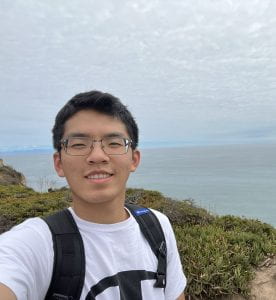
John Chen (he/him)
McCormick ’24 (Biomedical Engineering & Kellogg Certificate Program) – Summer Undergraduate Research Grant
John Chen

Please provide a brief summary of your research.
Broadly, my research focuses on testing the antimicrobial properties of different types of materials, both porous and non-porous, and evaluating their potential for usage in real-world environments, such as healthcare facilities and public transportation. Heavy metals such as copper and silver are known to have inherent antimicrobial properties, which has led to recent advancements in copper-coated and metal nanoparticle-containing materials. How environmental factors such as humidity could enhance or diminish the antimicrobial properties of these novel materials is poorly understood. My work aims to establish the antimicrobial efficacy of copper-coated stainless steel and metal nanoparticle-containing textiles under different humidity conditions, as well as determine how bacteria might respond to exposure to these materials. The testing process is actually quite simple: I apply bacteria to the materials in question and allow them to sit on the materials in a specific humidity environment for a given length of time. I then recover the bacteria from the materials and quantify the amount of surviving bacteria relative to the initial amount of bacteria applied. So far, I’ve found that the antimicrobial efficacies of both copper-coated stainless steel and metal-containing textiles are not significantly affected by changes in humidity. In the future, I will investigate using artificial saliva as the bacteria-containing medium, which contain salts and small molecules known to affect the viability of viruses. Ultimately, these test results will help improve our understanding of when and how to use heavy metal-containing materials in healthcare, commercial, and residential facilities for the benefit of public health, and reveal considerations we should make before replacing traditional materials with antimicrobial ones to prevent transmission of COVID-19 and other pathogens.
What made you initially interested in researching your project in particular?
Public health has always been a special topic of interest for me, and learning about superbugs and antibiotic resistance throughout high school got me really interested in the different “microbiomes” we interact with on a daily basis, whether it be in the air we breathe or in the lids of our water bottles. I wanted to get hands-on experience working with different microbes and become involved in something that could address the spread of antibiotic resistance. This project was the perfect opportunity to do so. The materials I was working with were potential alternatives to using antibiotics on traditional surfaces, and Professor Hartmann’s lab had a lot of really interesting bacterial strains gathered from indoor microbial communities.
What made you interested in pursuing (interdisciplinary) research more broadly?
For me, interdisciplinary research felt like the natural first step in putting the skills I’ve learned in classes to good use. Because research is so investigative, it has allowed me to take all the knowledge I’d stored in the back of my brain and use it to ask questions and learn even more skills. Unlike the many jobs and internships I was looking into at the time, research was much more amorphous in that I had the freedom to really think about what I wanted to explore and what skills I wanted to gain from my experience.
Describe your experiences with research thus far. Was it tricky? What skills do you think you’ve gained?
It was definitely intimidating going into lab the first day, but with a bit of time and a very supportive lab group, I felt comfortable with my project and the protocols associated with it. With wet-lab work, it took me a lot of time to wrap my head around each step of a protocol and understand why I was doing it. Because this was my first time working on a wet-lab project, I think one of the most important skills I learned was to be comfortable asking questions when I wasn’t sure about something. Knowing what you are doing and why you are doing it makes research much more enjoyable, and also allows you to learn a variety of different technical skills you might not have otherwise found.
Any tips or advice you have for students similar to you that are interested in pursuing undergraduate research?
When finding a research opportunity, make sure you find a project that you are genuinely curious about, not just because it sounds cool or “cutting-edge”. Your work might not seem as awesome as someone else’s, but you will be much more invested and be able to talk about your research more easily if it’s something you are genuinely interested in. Also, when research starts feeling slow because you aren’t getting good results or a piece of equipment is down and you can’t run a protocol, remind yourself that everyone in research has experienced something similar. Stay optimistic and focused on your project’s goals and remember that negative results can be useful as well!
Do you have a podcast/documentary/piece of shareable media related to your research? Post the link(s) to share here!
A fun video I watched when Professor Hartmann first introduced me to this project! I don’t actually use electroplating to make the copper-coated surfaces for my experiments, but it’s a really cool concept nonetheless! https://www.youtube.com/watch?v=T3qhqTVssoo
If you had unlimited time, money, resources, support, etc. what is something you would research?
I’ve always wondered what the optimal ratio of milk to cereal is.
Favorite bathroom on campus?
Shepard Hall basement
What is your most useless talent?
I can brush my teeth with either hand
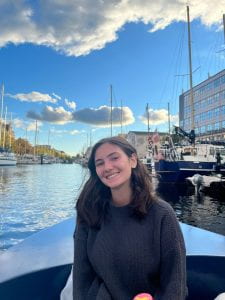
Elena Housteau (she/her)
Weinberg ’24 (Neuroscience & Global Health) – Summer Undergraduate Research Grant
Elena Housteau

Please provide a brief summary of your research.
Last summer I received a SURG to work in the Gratton Lab on an independent project related to brain networks and Parkinson’s Disease (PD). I used structural and functional MRIs of PD participants and age-matched healthy participants. I ran analyses to find any areas of the brain in which a participant’s brain network organization differed from the group average. Then, I further analyzed this data by determining if these variant regions had any defining structural features, such as occurring in particularly thin areas of the cortex or in a specific anatomical location. Finally, I looked at these results to see if there were any differences between the healthy and PD subject groups.
What made you initially interested in researching your project in particular?
I had been a member of this lab for two quarters and worked on a related project on brain networks. But when I was given the chance to develop my own idea for the SURG, I wanted to tie it back to medicine/diseases somehow because I am a premedical student. That is how I got the idea to look at Parkinson’s Disease.
What made you interested in pursuing (interdisciplinary) research more broadly?
I am a neuroscience major, but my schedule did not allow me to start taking any courses in this field until junior year. I knew research would allow me to start learning about neuroscience earlier and likely give me a unique perspective that I would not get in class.
Describe your experiences with research thus far. Was it tricky? What skills do you think you’ve gained?
Research was scary to start without any experience or background knowledge, but it was very helpful to ask for related research papers and critically read those. I also learned a lot of coding skills with my SURG project.
Any tips or advice you have for students similar to you that are interested in pursuing undergraduate research?
Use the department websites to find labs in the field that you’re interested in and don’t be scared to reach out to professors/labs.
What’s the most interesting thing you’ve learned/read about/listened to this week?
I learned all about Hungarian history while visiting Budapest this week! (I am currently studying abroad in Copenhagen)
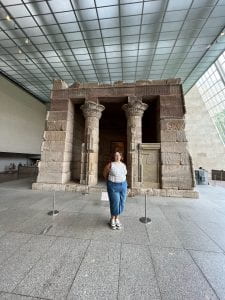
Elizabeth Vazquez (she/her)
WCAS ’24 (Anthropology & History) – Summer URG
Elizabeth Vazquez

Please provide a brief summary of your research.
My archival research followed a survey of Indigenous Intellectuals in Chicago around the turn of the 20th century, more specifically Simon Pokagon (Pokagon Band Potawatomi) to William Jones (Meskwaki), a linguistic anthropologist. Particularly, I was interested in their entanglements as emblematic of two different generations of Indigenous Intellectuals. I ultimately wanted to ground them in the literal space of the Chicagoland area, so I used old maps in cross reference with their writings to place them in their specific Chicago eras. I read through their main written sources, and ended up focusing more on William Jones to produce a public-facing essay tracing different portrayals of Jones, ranging from his personal letters to a biography written by a friend. Jones is particularly significant because he was the first Indigenous person to receive an anthropology PhD, and worked as a curator in the Field Museum in the early 20th century.
What made you initially interested in researching your project in particular?
I was born and raised in Chicago, so the Field Museum is a place very near to my heart. So many memories were made in my childhood in its winding halls of taxidermy, fossils, and artifacts. However, growing up means learning more, and that ultimately meant learning more about the ways the Field Museum has participated in colonial projects like most American educational institutions. I started with this larger project to grapple more with the Field’s history, and slowly narrowed down to the individual stories within the Field that went against the grain of the time. Now, when I go to the Field, I can make connections across time to people who are part of the Museum’s history.
What made you interested in pursuing (interdisciplinary) research more broadly?
I’m a lover of storytelling, and archival historical research allows for that. I wanted to find people in the archive and become a platform for their stories, hopefully upsetting general assumptions about history. In the case of my research, the idea of an Indigenous man working in a nearly all-white space infamous for creating caricatures of Indigenous people goes against general assumptions of what was happening inside of the Museum. These stories subvert ideas about Indigenous people, such as their only place in Museums as being on display, and refocuses on truth. Even beyond my specific projects, I want to hear these stories, either from oral retellings or by piecing together findings in archives. I want to remember that the names in history at large were people first and foremost before anything else.
Describe your experiences with research thus far. Was it tricky? What skills do you think you’ve gained?
Before my SURG, I did an archival URAP that was more about coding data over large swaths of journals. This however was more my jam. Overall, I loved the experience. I took my time and fell down rabbit holes, and came out with a really cohesive story about someone who not many people know about. The biggest issue I faced during archival research was that one of my subjects, William Jones, had absolutely terrible handwriting. Transcription of cursive is definitely the best skill I’ve gained from last summer.
Any tips or advice you have for students similar to you that are interested in pursuing undergraduate research?
If you have an interest or a passion, talk about it! Ask the faculty you know to find Northwestern’s expert on it. Tell your friends about what you’re thinking (if they’re good friends, they’ll listen). Amazing things can happen when you have these conversations.
Do you have a podcast/documentary/piece of shareable media related to your research?
https://storymaps.arcgis.com/stories/4fb71bd68c524f13ab5a926cbf33f856. This essay is part of a larger project by Professor Kelly Wisecup of the English department.
If you had unlimited time, money, resources, support, etc. what is something you would research?
I’d want to try to learn as much as I can about Hercules, Washington’s enslaved chef who escaped, possibly expanding the project to cover other enslaved chefs of pivotal early American figures.
What is your go-to phrase to yell during the finals “Primal Scream”?
[unintelligible rage noises]
What’s the most interesting thing you’ve learned/read about/listened to this week?
Marscapone, hazelnut, and espresso make for ridiculous cookie add-ins.
What is your most useless talent?
When I unfocus my eyes, I look like a lizard.
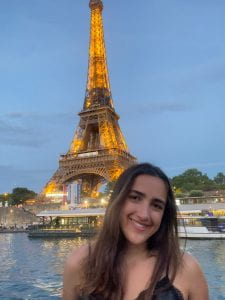
Margot Amouyal (she/her)
Medill ’25 (Journalism) – Summer Undergraduate Research Grant
Margot Amouyal

Please provide a brief summary of your research.
My research project explored the rise of emigration from France in the late 20th and early 21st centuries through the creation of a two-part narrative podcast series. The journalistic research project combines over 15 hours of interviews with academic scholars and French citizens to paint a nuanced picture of the economic and educational reasons behind the recent rise in French emigration. Each of the two episodes ranges in length from 30 minutes to an hour and includes background sounds from France, interviews and personal narration. The podcast series is also the culmination of two months of reporting from and living in France.
What made you initially interested in researching your project in particular?
I initially became interested in creating this podcast series due to my family background. I come from a half-French, half-American family and have always been fascinated by both of these cultures. As a result, I wanted to find a way to investigate and document stories that speak to the merger of these two nationalities and the impact globalization had on our political, economical and educational systems. Researching migration became an outlet for me to explore these topics. This is because migration uniquely points to times when cultures mix and individuals are forced to confront their national identities. I then chose podcasting as a medium for research because I wanted to personalize the stories behind the statistics and present my research in an accessible, compelling manner. Secondly, I was interested in gaining more experience with bilingual reporting. I knew this research project would enable me to conduct numerous interviews in French and subsequently translate them, which was proven to be an invaluable experience for me in my development as a news reporter.
What made you interested in pursuing (interdisciplinary) research more broadly?
I have always been fascinated by research and its ability to allow us to understand the world. The grant has uniquely provided me, and many of my classmates, with an opportunity to explore a variety of non-STEM fields. I decided to pursue research in the fields of political science, journalism and economics because those are the fields that particularly pique my curiosity.
Describe your experiences with research thus far. Was it tricky? What skills do you think you’ve gained?
I have loved my research experience thus far. SURG has enabled me to spend two months reporting from France and meet fascinating people in person from a variety of unique places. For example, I spent a weekend in Sarrebourg, a commune in the North of France with a population of around 12,000 people. While there, I met and interviewed Julie Cumin, a farmer and psychology student who moved back to France for ecological reasons after emigrating. Another example is when I visited Station F, the largest startup campus in the world, for a portion of episode one about the startup world in France and how it has incentivized emigration among entrepreneurs. I met Sacha Mourain there, a co-founder and CEO of a Station F-based company. Every interviewee told me something interesting and surprising. These conversations and experiences then enabled me to gain practical skills. For one, it has allowed me to create my first long-form podcast series and tell a concrete, logical and succinct story from many different narratives. Secondly, I was able to learn from my faculty advisor Professor Nettles – a Medill professor and contributor to a variety of exceptional publications, such as New York Times Opinion, Chicago Reader, Chicago PBS station and NPR affiliate WBEZ. Professor Nettles consistently provided feedback and edits that have allowed me to understand the process of a real journalist, such as editing tips and feedback on the scripts. I also learned to report amidst cultural differences. Even though I come from a French family, I still had to learn how to adapt to variations in culture. A huge part of journalism is learning to relate to people who have a different upbringing than you, and this project has taught me how to better approach people in a welcoming way and evaluate the biases I have been taught growing up in the United States.
Any tips or advice you have for students similar to you that are interested in pursuing undergraduate research?
The first piece of advice I would give to students similar to me who are interested in pursuing undergraduate research is to go for it! SURG provides this amazing opportunity to pursue research in a field that interests you. I would then give two additional pieces of advice. For one, I would encourage them to reach out to the URG office and advisors. The URG advisors helped me immensely in drafting my proposal. The writing style of research proposals differs from journalism articles or traditional academic essays, and it can be helpful to learn how to write in this way through URG workshops and or advising. Secondly, I would encourage them to always keep digging. When I drafted the proposal, I had a list of people I said I would speak with; however, I ended up speaking with three times as many people than I planned to as I quickly realized the story is more intricate and nuanced that my proposal could ever outline. I would suggest that every time you conduct an interview ask “who else could I speak with?” Your branch of connections will keep growing if you do this and you will be exposed to stories you never anticipated hearing.
Favorite Breakfast food?
Definitely a good shakshouka with pita bread and tahini sauce. And, of course, a hot coffee on the side!
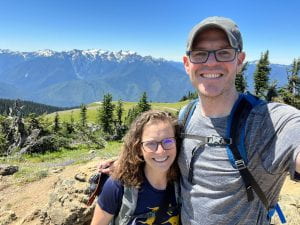
Faculty Feature – Professor Jason Roberts (he/him)
Office of Fellowships; Radio, TV, Film
Faculty Feature – Professor Jason Roberts

What do you find the most rewarding about working with undergrads?
The chance to share things with them that I love or find fascinating and then hearing their perspectives on those things. No matter how well I think I know a movie or piece of writing, students always see and read in their own distinct ways, and their unique perspectives regularly show me things I hadn’t seen or considered before. I guess that’s kind of a cliche, but it’s at the heart of why I love working with undergrads.
What do you feel helps students have a more productive meeting with you?
I’m always happy when a student comes in with a very specific agenda for a meeting, but I also think Northwestern students should give themselves more permission to be vulnerable and explore. One of the most important things I think I can do for Northwestern students, either in my role at the Office of Fellowships or in the classroom, is to convince them that it’s okay to not know something, especially if that something is their plan for the future. So one version of a productive meeting is to provide students a chance to ask me what I think about any random thing that’s on their mind, or just to provide a sympathetic ear as they think out loud.
What’s the one thing you wish students knew about research?
Here’s another cliche, but it’s a perennial challenge to convince students that research doesn’t only happen in labs. Whatever interests you is also a thing that researchers study. My whole field, film studies, grows out of love for and curiosity about the medium. What do you love? What are you curious about? That’s where research begins, regardless of your answer.
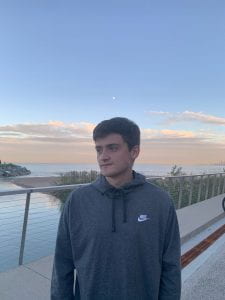
Finn Wintz (he/him)
WCAS ’24 (Computer Science & Psychology) – Conference Travel Grant & 2021 Expo Awardee
Finn Wintz

Please provide the tile and a brief summary of your research/conference presentation.
My research with Dr. Onnie Rogers focused on how Black and White parents justify their perceptions of race, and specifically how they rationalize colorblindness. Parents were asked: “How do you think your life would be different if you were Black/White?”, where Black parents answer about being White, and White parents answer about being Black. The first part was multiple choice. Parents selected that their life would be (1) Better, (2) the Same, or (3) Worse. The second part asked parents to explain their answer choice in a free response. We inductively coded and thematically analyzed open-ended responses where parents believed that their life would be the same. We found that there are multiple qualitatively distinct ways parents justify colorblindness, including foregrounding individual autonomy, erasure of race, diversion from race, and emphasizing inherent commonalities.
What made you initially interested in researching your project in particular?
I took a developmental psychology class with Dr. Rogers in the fall of my first year and absolutely loved both her and her topic of research.
What conference(s) did you present at and how did you find out about them?
I had the opportunity to present my findings at the Northwestern undergraduate research expo, and the Society for Personality and Social Psychology expo. Dr. Rogers encouraged me to apply to both and I was fortunate enough to be accepted. Both were spectacular learning experiences!
What was it like presenting at a conference? Anything that you didn’t expect?
Both of my presentations were virtual, so they were very different from what I would imagine an in person conference to be like. One thing that I did not expect was how difficult it can be to distill hours and hours of work into a five minute presentation. Without clear and understandable articulation of results, even high quality research becomes useless.
Any tips or advice you have for students similar to you that are interested in presenting at a conference one day?
Do not be afraid to try for opportunities even if you feel unqualified. Even if you don’t get them, you will learn a lot from the experience of preparing for it, which will make you better equipped for the next try.
What is your most useless talent?
I can make a clover with my tongue.
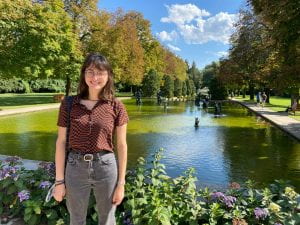
Ella Bartt (she/her)
WCAS ’23 (Spanish) – URAP
Ella Bartt

Please provide a brief summary of your research.
As a research assistant for Professor Coronado, I have been archiving the works of Elena Izcue, a Peruvian artist from the early 20th century. Next, I will be helping him go through a large collection of records of música serrana, music from the Andean region.
What made you initially interested in researching your project in particular?
I am interested in Latin American art, especially as it pertains to themes of gender and indigeneity.
What made you interested in pursuing (interdisciplinary) research more broadly?
I have always been interested in art and literature, but I feel that Latin American art is extremely under researched in the U.S., especially more recent 20th century art/literature by women.
Describe your experiences with research thus far. Was it tricky? What skills do you think you’ve gained?
It’s been very interesting so far, and I have definitely learned a lot about how to categorize and archive materials.
Any tips or advice you have for students similar to you that are interested in pursuing undergraduate research?
I started by asking a professor I liked if he needed any help and that’s what got me here, so there’s definitely more than one way to start! Also, there’s research to be done in every academic area imaginable.
If you had unlimited time, money, resources, support, etc. what is something you would research?
I would want to do a project on female textile artists, especially in the context of textile art being commonly denoted as a “craft” instead of art.
What meme lives rent free in your head?
Kim there’s people that are dying
Favorite breakfast food?
Cereal
What’s the most interesting thing you’ve learned/read about/listened to this week?
I went to the MCA and learned about Andrea Bowers. I really liked her exhibit, it was huge!
What is your most useless talent?
I’m really good at Mario Kart!
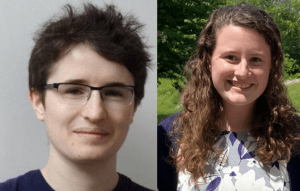
Coline Ferrant and Molly Sheridan
Alumni Feature – URAP Mentor/Mentee
Alumni Feature – Coline Ferrant (URAP Mentor, left) & Molly Sheridan (URAP Mentee, right)

We’re happy to introduce Coline Ferrant and Molly Sheridan, a URAP mentor/mentee duo from 2018/2019! These two just published their URAP work as a working paper (read here). We caught up with Coline, who is now an Assistant Professor at the American University of Central Asia in Bishkek, Kyrgyzstan, and Molly, who is applying to graduate programs in audiology!
Coline, please provide a brief summary of your research.
Coline: Generally, my research interests include urban & rural sociology, food & eating, ethnography, and public writing. Specifically, within URAP, our project was about barriers to participation in the WIC (Women, Infants, and Children) program and involved fieldwork in two WIC Centers, in Pilsen and Gage Park.
Molly, what made you initially interested in researching your project in particular?
Molly: 3 things initially drew me to the project: it aligned with my interests, allowed me to learn something new, and allowed me gain research experience in the process. I am extremely interested in working with children and families in the future. I have been accepted into the Doctor of Audiology program at UW-Madison and intend to work in pediatrics, which will also involve a lot of working with families. Working on this research with Coline gave me the chance to be in Chicago, implementing a survey, and interacting with families. In that aspect, it supported my future interests and goals. I could also learn for the first time about WIC centers, the barriers to family participation, and how to ease these barriers. I loved that it was such meaningful work.
What have you found the most rewarding about working with one another?
Coline: As a mentee, Molly was conscientious and responsive to feedback. As a co-author, I appreciated the maturity and concision of her writing. All along, she completed tasks rigorously and on time, and I had absolute trust in her.
Molly: I gained a lot more from Coline than just the research knowledge. Coline was a great mentor – she had trust in my abilities and gave me real work instead of just busywork. She helped me feel competent and confident in my research and writing abilities. She was always accessible for me to ask questions and walked me through the steps before asking me to do it on my own. She became a resource for me throughout our research experience, and also afterward, as she was recently one of my graduate school recommenders. I am endlessly thankful that we were able to work on this project together, and for all of her help and advice afterward as well.
Molly, how do you feel your URAP (or overall research) experience prepared you for grad school?
Molly: Coline was a PhD student during our URAP experience, so I learned a lot about what it’s like to be a PhD student and what it takes to get there. It helped me decide between getting a PhD or a Masters, and prepared me for my future decision. On my graduate school application, there was a question specifically asking about my research experience. I am confident that participating in URAP contributed greatly to my application, as I had real research experience (and a publication) that came out of it.
In addition, my future graduate school experience will involve a capstone research project. I know some of my peers are worried about that aspect of the program, but I feel confident about it after this experience.
Coline, how was your experience shifting from URAP mentor to co-author?
Coline: All smooth and organic. Both Molly and me were interested in having the project deliver. This involved transforming our working relationship from a vertical one to a horizontal one, and it happened pretty naturally.
What was it like finalizing your publication together? Anything that you didn’t expect?
Coline: The publication process took time – as usual in research. Nothing unexpected for me!
Molly: I truly did not know anything about writing a publication, choosing a journal, formatting it for submission, and revising it later. Coline involved me in the process every step of the way and I learned so much. I would never have embarked on this journey without her – it seems very daunting until you’ve done it! I would say that I was most surprised by how long the process took (Covid probably didn’t help though).
Any tips or advice you have for students similar to you that are interested in pursuing undergraduate research? What is something you wish students knew about research?
Coline: Research really is an opportunity to investigate in depth a topic or an issue you find curious or interesting.
Molly: Don’t be afraid to apply or reach out to your TA, professor, etc. Coline was my TA and I was pretty much the only one that participated in discussion, so that’s how we met. If you’re interested in something, find out who is researching that topic on campus and reach out. Many students come into these positions without past research experience, so don’t worry if that’s you. I had a few past management positions and they did not relate to research at all, but they demonstrated my ability to work independently, which was crucial for our URAP/publication experience. No matter what field you’re going into or what degree you may be pursuing next, research will always look good on a resume and support your next move. You’ll also make close relationships with those who can support you in your next step with things like letters of recommendation.
Favorite breakfast food?
Coline: Tacos al pastor!
Molly: Waffle with chocolate chips and whipped cream!
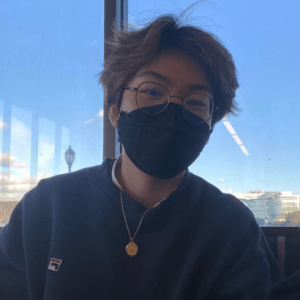
Joy Chou (she/her)
Bienen & WCAS ’24 (Dual Degree: Music Cognition & Psychology) – URAP
Joy Chou

Please provide a brief summary of your research.
I am currently assisting professor Richard Ashley on his “Wayfinding” project. The research focuses on the effects of linguistic, mathematical, and other symbolic processing on musical comprehension. We are utilizing the music21 toolkit to analyze musical scores in terms of form, harmonic progression, melodic structure, and their interaction with musical expectations. The music21 toolkit uses Python to help us program a musical prediction model – the codes that we are aiming to generate will predict and quantify disparities between musicians and everyday listeners’ musical experiences based on their understanding of music structure.
What made you initially interested in researching your project in particular?
I am a dual degree student in music cognition and psychology, so I have always been very interested in exploring the intersection between music and cognitive sciences. In classical western music theory, we talk at length about musical expectations and how chords progress in a way that either confirms or subverts our expectations. I thought it would be very valuable to approach this phenomenon from a more mathematic and quantitative perspective.
What made you interested in pursuing (interdisciplinary) research more broadly?
I feel that there are many overlaps between music, cognitive sciences, and psychology that have not been explored at length. I wish to provide a fresh perspective (as a classically trained instrumentalist/composer) and investigate the various ways music impacts our lives. This is a topic that I am deeply passionate about, and I feel that there is not a segment of this area of study that can be completely separated from one another.
Describe your experiences with research thus far. Was it tricky? What skills do you think you’ve gained?
It has been very exciting and fulfilling working with Dr. Ashley and my lab partners. The project felt a little intimidating when I first started, given that I had to read over forty chapters of Music21 Toolkit documentation and learn how to code in python from scratch in the span of two weeks. I also read a large volume of research on musical expectations and generative models that provide context for our research. Despite it’s initial difficulty, I have learned so much from this experience in both computer programming, problem-solving and critical thinking skills. I was able to code an entire sequence of chord progressions and generate an original sequence of codes that perform “scale-degree finding functions”. Though we are still at a stage of compiling a singular cohesive model, I am hopeful and excited to see the final product of our project!
Any tips or advice you have for students similar to you that are interested in pursuing undergraduate research?
Talk to different faculty members and browse through available URAP projects! Try to see how your studies or interests align with the existing projects – it’ll make the research experience a lot more meaningful to you. Also be open to new ideas and always be ready to learn!
If you had unlimited time, money, resources, support, etc. what is something you would research?
The entire collection of Hayao Miyazaki’s films in conjunction with Joe Hisaishi’s film scores
What meme lives rent free in your head?
the mike wazowski face meme
Favorite breakfast food?
chocolate chip pancake with blueberries
What’s the most interesting thing you’ve learned/read about/listened to this week?
natural coconut water can look pink
What is your most useless talent?
i can blow air donut-like bubbles under water
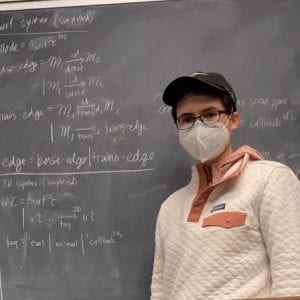
Caspar Popova (he/him)
McCormick ’22 (Computer Science) – Summer Undergraduate Research Assistant Program
Caspar Popova

Please provide a brief summary of your research.
My work is part of a larger research project by Prof. Christos Dimoulas and PhD student Lukas Lazarek that studies how we can evaluate the usefulness of programming language features. In this specific project, we are interested in the features of type checking and blame reporting in gradually typed languages – languages such as Typed Racket that allow programmers to add type annotations to where they think is most useful, creating interactions between typed and untyped code. We evaluate usefulness based on how often a simulated programmer manages to determine the location of a type mismatch in a buggy program using the language-provided features across a suite of debugging scenarios.
Empirical research with this method so far indicates that, despite its theoretical superiority, Typed Racket is only marginally more useful than other academic and industrial gradually typed languages. However, the results are based on debugging scenarios that do not have the complex, so-called higher-order interactions between program components that theory says give an advantage to Typed Racket.
My research aims to create a new suite of debugging scenarios to properly evaluate Typed Racket. To do so, I am designing and implementing a generator for programs that takes in a specification describing the interactions between program components. By enumerating specifications with various degrees of higher-orderness, we will construct a new suite of debugging scenarios to evaluate Typed Racket.
What made you interested in pursuing (interdisciplinary) research more broadly?
I really enjoyed learning about programming languages in CS 321 and getting a taste of more advanced PL topics. I was also curious to see what research in computer science was like.
Describe your experiences with research thus far. Was it tricky? What skills do you think you’ve gained?
Research has been a really rewarding experience. The most difficult part for me was training because I was learning really in-depth about topics that I had never been exposed to before. There are also skills in research that it takes a while to develop, like reading papers (I am still working on this!). I’ve gained skills in managing my own projects/time and communicating both the successful results of research and when something is stuck. I enjoy the aspect of problem solving necessary for research.
Any tips or advice you have for students similar to you that are interested in pursuing undergraduate research?
Many labs/groups/professors have a track of undergraduate and graduate courses that will prepare you for research in their area. At least, this is what I heard from CS research workshops, and I’m sure it’s true more broadly, so don’t hesitate to ask professors how you can prepare academically to do research.
If you had unlimited time, money, resources, support, etc. what is something you would research?
How to slow down/stop/reverse climate change.
What meme lives rent free in your head?
It’s about drive it’s about power
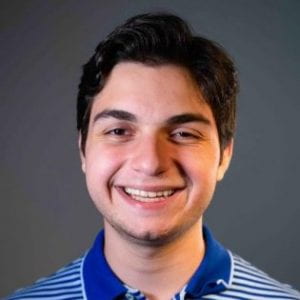
Gregory Svirnovskiy (he/him)
Medill ’22 (Journalism) – Summer Undergraduate Research Assistant Program
Gregory Svirnovskiy

What made you initially interested in researching your project in particular?
For as long as I can remember, I’ve relaxed by watching videos of past major political events on YouTube and CSPAN. There’s so much out there. You can watch the each of the Walter Mondale and Jimmy Carter debates on YouTube, as well as coverage from Watergate and live reactions to the 1976 Presidential Elections. I found Rush Limbaugh in one of my CSPAN searches. His rise in politics was as fascinating as it was consequential. Professor Marshall and I were hooked.
Please provide a brief summary of your research.
By 1994, Republicans, and Rush Limbaugh in particular, had essentially cornered the radio media market nationally. And that resulted in real electoral consequences for Democrats, who were swept in Congress for the first time in nearly half a century in that year’s midterms. I spent the summer investigating ways Democrats looked to close that radio gap. Former politicians like Gary Hart, Mario Cuomo and L. Douglas Wilder started their own shows, each seeking to become “the Limbaugh of the Left,” but to do it with “thought talk” instead of bluster. For a myriad of reasons, it didn’t land.
What made you interested in pursuing (interdisciplinary) research more broadly?
It’s a skill I never gleaned through my classes at Northwestern, one that I think is necessary for someone that wants to go into journalism and write long-form investigative stories. I needed the training wheels.
Describe your experiences with research thus far. Was it tricky? What skills do you think you’ve gained?
There’s so much information out there. Too much, almost. I’ve learned how to refine searches, the key words to input for the most valuable links and documents.
Any tips or advice you have for students similar to you that are interested in pursuing undergraduate research?
Talk to people. When I started working with Professor Marshall this summer, I thought I’d spend it sifting through documents, reading papers and going through archives. I decided somewhere along the line to approach my research like a Journalist; by reaching out to potential sources and scheduling interviews. It’s how I ended up getting to talk to people like Gary Hart, Marjorie Margolies and Doug Wilder. Those interviews proved invaluable.
What is your most useless talent?
I know probably everything about every hockey player in the NHL. What teams they played for, where they were drafted, favorite foods, etc.
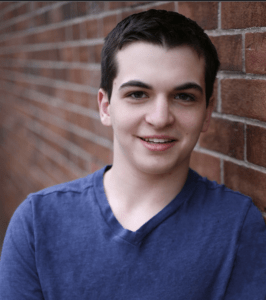
Benjamin Weiss (he/him)
SoC ’23 (Theatre & Neuroscience) – Summer Undergraduate Research Grant
Benjamin Weiss

Please provide a brief summary of your research.
My research involves the exploratory synthesis of solid-state compounds. After designing a chemical reaction, we utilize X-ray diffraction techniques to identify the compound or (if unidentified) solve the structure of the new compound. Subsequent characterization and investigation on the properties of the compound can then occur. I investigate a class of compounds known as thermoelectric materials which can absorb heat and generate electricity.
What made you interested in pursuing (interdisciplinary) research more broadly?
I was interested in research because it investigates the unknown. I find that research is like any other creative process, involving a deep dive into questioning and critical thinking. It was really satisfying to draw parallels across disciplines.
Describe your experiences with research thus far. Was it tricky? What skills do you think you’ve gained?
My experience so far with research has been really exciting. There is something so fascinating about creating new chemical compounds, being some of the first people to see the composition, and physically touch the compound is really exciting. Then, thinking about possible applications can be interesting as well. It also can be frustrating at times, with reactions repeatedly not working, to material decomposing. Experimenting can be hard, but it is definitely worth it!
Any tips or advice you have for students similar to you that are interested in pursuing undergraduate research?
Email teachers! Just show interest and keep emailing people. Do not get discouraged.
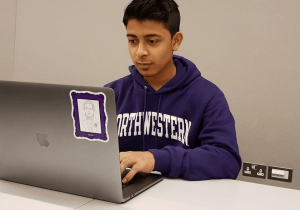
Krishna Sharma (he/him)
NUQ ’22 (Journalism) – Summer URG
Krishna Sharma

Please provide a brief summary of your research.
I worked on a couple of projects. In one of those, I tried to gauge the role of individual differences in compulsive use of social media platforms such as YouTube. Another was an examination of ephemeral sharing on Facebook and Instagram.
What made you initially interested in researching your project in particular?
When I was working with Dr. Justin Martin on one of his projects on the intrinsic need for orientation, I stumbled upon articles that looked at associations between individuals’ behaviors and their personality traits. Then I read more on such individual differences and started to think about how such differences along with use motivations might affect people’s social media use. On Quora and on Reddit, I had also seen people ask questions about how to fix their “social media addiction,” and that also got me quite interested in the topic that I chose.
What made you interested in pursuing (interdisciplinary) research more broadly?
During my sophomore year, I took a statistics course with Dr. Justin Martin. That course was my first glimpse into a scientific examination of questions in mass media, social media, and psychology. Then when I started reading on media psychology, I started coming up with my own questions. Some of those had already been answered by others, and I just had to look them up on an academic database such as Google Scholar. Some were not. Among those that were not, a few could be answered with the methods I learned in that statistics class. Outside of the class, I have worked as a research assistant for Prof. Justin Martin as well as Prof. George Anghelcev. Both are amazing scholars, and have always encouraged me to follow my curiosity in research. I am very grateful to Dr. Martin and Dr. Anghelcev, as well as Dr. Ilhem Allagui who helped me with one of my projects.
Describe your experiences with research thus far. Was it tricky? What skills do you think you’ve gained?
Before I received this grant, I had mostly only worked for professors (Dr. Justin Martin, Dr. Torsten Menge, and Dr. George Anghelcev) as a research assistant. When you work on projects supervised by your professors, it is methodical in some ways, and they assign you particular things to learn and tasks to complete. I have learnt a lot this way, and I am quite grateful for the experience. But at the same time, I also wanted to grow and do some independent work where I could be my own supervisor. SURG allowed me to do that. I worked on a project with two other student co-authors and after completion, we applied for presentation at the International Communication Association(ICA)’s 72nd conference. Our full paper got accepted and we will be presenting at ICA’s conference in May this year.
During this time, I think I have mostly learned to do independent work, and over the last three years, I have learned that as much as it is about thinking through things, research is mostly reading and writing and re-writing. Being orderly and industrious really helps. In terms of skills, I have learned to do many different types of quantitative analyses necessary for research work in the social sciences.
Any tips or advice you have for students similar to you that are interested in pursuing undergraduate research?
Everybody finds it overwhelming at the beginning. So if you are having those intimidating feelings, please understand that it’s completely natural. Also, this might not be exclusively a research-related advice, but if you struggle with procrastination at times, getting a study partner or a work partner might help. I had a friend with whom I had regular Zoom study sessions, in which both of us would be working on our own research projects. That immensely helped me with my productivity throughout the summer.
Do you have a podcast/documentary/piece of shareable media related to your research?
I am going to present a paper with a couple of other student co-authors at the ICA meeting this year. Here is a link to my paper. If you want to read but the full text is not available for you, just press the button “Request the full text from the author” and I’ll be happy to send it to you.
If you had unlimited time, money, resources, support, etc. what is something you would research?
Two things come to mind: 1. Reducing the spread of fake news, and 2. different forms of problematic use of social media.
Favorite breakfast food?
Milk and cereal.
What’s the most interesting thing you’ve learned/read about/listened to this week?
People become less aggressive if you remove their amygdala. Don’t try it; there are other consequences too.
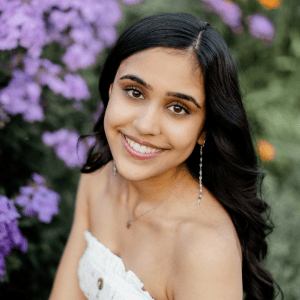
Aru
McCormick – Computer Science & Neuroscience ’24
Aru

Please provide a brief summary of your research.
Overall, the goal of my research is to be able to distinguish between two of the phenotypes of small cell lung cancer (SCLC), adherent and suspension cells, using machine learning imaging techniques. Yet, this summer, the primary finding of my research work was establishing significant differences in displacement between the two phenotypes using a computer vision technique called optical flow. By establishing this difference, we are now able to use this as one form of information to train our machine learning algorithm to distinguish between the two different phenotypes. After this step, we can now look towards extracting features from the longitudinal images of each cell type in order to use this information to train the classification machine learning algorithm. These features can be how morphology of different cell types changes or stays the same over time, whether that be size or shape, or how each cell population moves over time, as established by optical flow. After collecting these features for each of the two populations separately, we will train an initial machine learning algorithm and then experiment with different machine learning techniques to see which one produces the most accurate classification results of the SCLC phenotypes.
What made you interested in pursuing interdisciplinary research more broadly?
What made me interested in pursuing interdisciplinary research was honestly the amount of potential machine learning has for any field in the world. The ability of machine learning techniques to extract patterns and information so quickly from large amounts of data can be so seminal for a field like medicine where there is still so much ambiguity with why certain patient outcomes occur and the unfortunate persistence of disease. I think it can really change the game with finding patterns in the behavior of disease that we have never even considered.
What made you initially interested in researching your project in particular?
The same reason as above! I think it’s so amazing to see machine learning’s abilities to potentially find motion and morphological patterns of cells over time in order to make the cell populations more distinct. The power of this is so important because classifying phenotypic behavior can help oncologists accordingly target this behavior, especially in regards to metastasis.
Describe your experiences with research thus far in your career.
My experiences with research have always been testing of my ability to persist. When I first started research in high school, it was one of the most disorienting academic experiences I’ve ever had. In any place of academia, people are so knowledgeable and experienced with their field of research, so it’s easy to feel out of place and behind nearly all the time. I think that’s what made it really tricky, keeping a growth mindset while believing in yourself to contribute something meaningful. From this past summer’s research experience, I think the biggest skills I gained was gaining confidence in asserting myself in research related conversation. This came from presenting my research findings to my entire research group each week. Additionally, I was very lucky to have two post-doctoral fellows that were really open to having good, thorough discussions with me about my research work. So, I had the opportunity to truly tap into my curiosity and feel like it was meaningful.
Any tips or advice you have for students interested in pursuing undergraduate research?
I think the biggest piece of advice I have for an undergrad pursuing research is to be patient with yourself. Research will probably be one of the biggest learning curves you will come across since the people you work with are some of the smartest and dedicated people in their field. Don’t be taken aback by how much less you might know than them, and rather take it as an opportunity to really lean into learning about a topic really deeply and being truly curious about it. And always remember that everyone you work with was once at a point you were at. So, don’t count yourself out of doing something incredible and always believe in your ability to grow.
If you had unlimited time, money, resources, support, etc. what is something you would research?
How common disordered eating is among adolescents and young adults and how certain personal/family and societal factors contribute to them.
What meme lives rent free in your head?
Dula peep.
Favorite breakfast food?
Good buttermilk pancakes.
What’s the most interesting thing you’ve learned/read about/listened to this week?
In Neuro 202 this week, I learned that people with intellectual disorders tend to have shorter dendritic spine necks, meaning it takes longer for an electric current to pass through their neurons.
What is your most useless talent?
I can always tell when people have gotten haircuts no matter how little they got cut off. (And jaywalking).
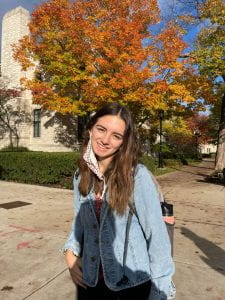
Anika Velasco (she/her)
WCAS ’24 (Psychology) – Emerging Scholars Program
Anika Velasco

Please briefly summarize your research.
Since this past summer, I have been working at the Child Language Lab run by Dr. Adriana Weisleder. The lab focuses on researching the language development of bilingual children and children with language impairments. As someone who is interested in both developmental psychology and languages, my experience in the lab has been very engaging! I have primarily worked on the Daylong Dual-Input LENA Recordings Annotations with PhD student, Anele Villanueva. The project consists in analyzing daylong audio recordings of the environments of infants from bilingual Latinx households. In order to annotate daylong audio recordings, I annotate 30-second clips from the longer recordings selected by random sampling. The annotation categories I am primarily focused on is the speech register, so who is the speaker directing their speech towards. Within that, I also annotate for the speaker type (adult or child) and the language (English, Spanish, or Mixed). The purpose of this project is to increase the knowledge of the language context of dual language learners (Spanish-English) from immigrant Latinx families. This is an area of study that has not been deeply researched and will provide information on how to best support bilingual children during their language development. I am also currently starting to plan my independent summer research project, which will consist in analyzing the messages about Hispanic culture that picture books communicate to Hispanic children in the Chicago area.
What made you interested in pursuing (interdisciplinary) research more broadly?
I did not expect to pursue research during my time at Northwestern, but it only makes sense that I have pursued research that has an interdisciplinary lens. The value of interdisciplinary research stems from the fact that it considers multiple viewpoints and so, I think it is becomes more applicable to the real-world outside of the lab environment. More specifically for me, I have a variety of interests and interdisciplinary research allows me to delve into many interests through one activity. My time at the lab has allowed me to interact with a variety of fields (Psychology, Communication Sciences Disorders, Linguistics, Spanish, Cultural Anthropology), which has been much more interesting for me and has deepened the quality of the research I have participated in.
How has it been working with faculty to transition from an assistant position to a more independent role?
I am currently in that transition from an assistant position to a more independent role so I cannot fully speak on the experience. Nevertheless, so far, it has been going well. The team at the Lab are very supportive and are helping me through the transition. I do not have research experience prior to my time at the Lab and I know I would not have pursued an independent research project if it were not for the workshops, faculty members, and research experience provided by Emerging Scholars Program. Learning the basics of research as a research assistant during the summer and Fall Quarter has given me the foundation to now confidently plan my own research project. In addition, my faculty member and the team at the Lab has been extremely helpful in supporting me both throughout transitioning and planning my research project.
What’s been your favorite part about being in a cohort with other scholars?
It is really nice to be in a cohort where we are all going through the same experiences for the first time together. We were all going through similar stages of starting research during the summer and we are now similar stages planning our research projects. While it is difficult to begin brainstorming an independent research project, more recently, my cohort has been supportive in helping me brainstorm project ideas.
Do you have any tips or advice for first years similar to you who are interested (but maybe hesitant) to apply for a 15 month long program?
My major advice is if the program just sounds interesting (even if you are hesitant about it), just apply. I was initially wary about applying to the Emerging Scholars Program because it seemed like a long commitment. While 15 months is a good amount of time, I have had such wonderful and engaging experience while doing research. It has been an excellent way to dip my toes into the water of research without diving in head first into pursuing research. I am currently not planning to do research as a career choice, but nonetheless, my research experience has been very interesting and definitely worthwhile. More specifically, I would suggest that if you are intrigued or excited by one of the listed faculty members or their projects, that is a definite sign that you should apply.
Favorite breakfast food?
Pan con palta (bread with avocado). I could eat it every day for the rest of my life. Is this the same things as avocado toast? Some might say maybe so (they both ARE made up of bread… and avocado), but I would beg to differ. This Peruvian dish is delicious and heartwarming and existed way before trendy restaurants decided to offer it up as an $18 brunch option.
What is your most useless talent?
My useless talent is being able to whistle the entirety of Le Vie en Rose. I am sad that I haven’t yet found a proper use for my whistling but I have found it quite handy for when I am bored out of my mind or when there is a need to annoy someone.
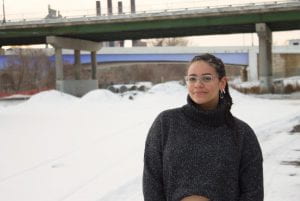
Karina Karbo-Wright (she/they)
Weinberg College of Arts & Sciences (African American Studies with a Minor in Sociology & Legal Studies) ’22
Karina

Brief summary of research:
Why is Blackness placed next to whiteness in film always a negative thing? Over the history of the United States, Black people have been racialized as white people’s opposite and this has made all racial admixture forbidden including codification into laws against miscegenation after the abolishment of slavery. This racist phenomena was present in all parts of American life including film. Guess Who’s Coming to Dinner (1967), Guess Who (2005), and Get Out (2017) are three films that depict the adversity to racial admixture through three negative portrayals of an interracial (Black-white) relationship. Looking at each film, there is a shift in popular thought around this form of racial admixture. Through film analysis and historical and cultural contextual study I ask: what does the shift in these depictions of interracial relationships in these three films tell us about the changes in the racial landscape of the United States?
What made you interested in pursuing interdisciplinary research more broadly?
I was interested in doing this research as kind of step one in beginning my senior thesis this year. I also had a research grant my freshmen year from Weinberg and I think it was really cool to be able to track how much I’ve grown as a student, writer, and research through the application and research process.
What made you initially interested in researching your project in particular?
I was interested in this project because I think that film and media play a huge role in our social conceptualizations. My faculty advisor mentioned the linkages between films and their characteristics over time, and I thoughts about the three films I studied and their connections but also progression and what that might indicates about how racism and its visibility shifts over time.
Describe your experiences with research thus far in your career?
Research is fun but always hard. I think that this summer, I struggled with what I thought was “real” research and how I felt like I wasn’t doing real research because I was engaging with emotions and I wasn’t reading full books. However, I think that I began to learn that there isn’t like a right or wrong way to research and each topic kind of requires a different approach.
Any tips or advice you have for students interested in pursuing undergraduate research?
I would say do it!! As URG offices and other research offices become more accessible, more folks can join! I think being able to design a project and focus solely on that is exciting and a nice way to engage with academics differently in your time at Northwestern.
What meme lives rent free in your head?
“i don’t want celebrities representing me, but let’s dig a little deeper, who are we being represented to? who do we want to look good for? Crackers! Crackers!!’ on twitter
What’s the most interesting thing you’ve learned/read about/listened to this week?
black liberalism and “In Search of the Black Fantastic”
What is your most useless talent?
organizing stuff like those tv shows
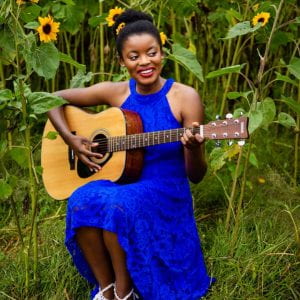
Olivia Pierce
Bienen ’24 (Musicology) – Emerging Scholars Program
Olivia Pierce

Please briefly summarize your research.
I am conducting archival research with Dr. Joshua Chambers-Letson in the Performance Studies Department. Our work includes looking at the correspondence of queer of color artists in order to articulate how they incorporate themes of love and loss into their works and creative processes. Additionally, we conducted archival research on the avant-garde performance movement that took place in New York in the 1970s to learn more about how Asian and Asian-American artists such as Yoko Ono, Shigeko Kubota, and Nam June Paik, express their identities and experiences through music, technology, and performance. Our research culminated with a trip to New York, where we talked to artists about their present-day processes and studied in the archives.
What made you interested in pursuing (interdisciplinary) research more broadly?
I was interested in pursuing research specifically related to artists and their identities because as a recording artist, I strive to incorporate themes surrounding my own identity into my music. I thought it would be immensely beneficial for me to learn more about the legacy of artists who have approached their creative processes in a similar way throughout history.
How has it been working with faculty to transition from an assistant position to a more independent role?
My research professor has been incredibly helpful in equipping me with the skills and resources I need to pursue my own independent project. I’ve also been able to receive feedback and encouragement along the way as we’ve worked together, which has made the transition very manageable.
What’s been your favorite part about being in a cohort with other scholars?
My favorite part about being in a cohort with other scholars is hearing about everyone’s different projects and interests. Additionally, I personally feel like I couldn’t have been matched with a better professor or had a better experience, and it’s really fun to be in a cohort because everyone I’ve talked to feels that way about their mentorship experience as well.
Do you have any tips or advice for first years similar to you who are interested (but maybe hesitant) to apply for a 15 month long program?
I really like the fact that this program is 15 months because it relieves the pressure to complete a project within 8 weeks that you might encounter with a summer program. Additionally, 15 months gives me time to adjust to doing research while on the quarter system and develop a lasting connection with my mentor.
Favorite breakfast food?
Blueberry waffles!
What’s the most interesting thing you’ve learned/read about/listened to this week?
Alicia Keys’ new album “Keys!” She gave it an A-side and a B-side which I think is really cool.
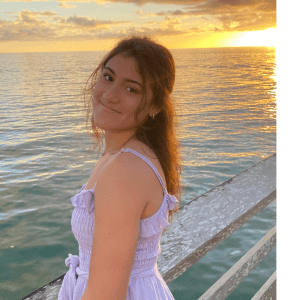
Natalie Turner (she/her)
WCAS ’23 (Neuroscience) – Summer Undergraduate Research Grant
Natalie

Please provide a brief summary of your research.
I took the lead on adapting a manual to be used in the quantitative analysis of behavioral regulation skills in 12-month olds. This contributes to larger research on the earliest emergence of psychopathology in infancy and early childhood.
What made you interested in pursuing interdisciplinary research more broadly?
I am interested in clinical or academic research as a career path, specifically in the field of developmental neuroscience and psychology. I was looking for hands-on experience in research so I could get a better idea of what a career in research may look like.
What made you initially interested in researching your project in particular?
I am interested in infant and early childhood development, and Dr. MacNeill’s work struck me as having very important and relevant implications for future use as our focus on early mental health intervention increases. This project allowed me to increase my knowledge of early childhood development directly while also working on the “back-end” of developing research questions and methods.
Describe your experiences with research thus far in your career.
My experience was very informative and engaging. I definitely had to shift my mentality from a student’s perspective to a direct contributor to a project, and in doing so assumed a lot of responsibility and self-discipline. I had the chance to improve upon my academic writing and also learned the ins and outs of behavioral coding, which I had never done before.
Any tips or advice you have for students interested in pursuing undergraduate research?
The hardest part is starting! I recommend doing some preliminary research into what labs are out there doing work that interests you and reaching out to get more information. Most PIs are willing and excited to talk to you about their research so that you can get a better idea of what you’re really interested in. The Office of Undergraduate Research has so many resources and people willing to chat about getting started in research, so definitely take advantage of that resource too (I took the SRW class my sophomore year and it was extremely helpful)!
Favorite breakfast food?
Breakfast Burritos!
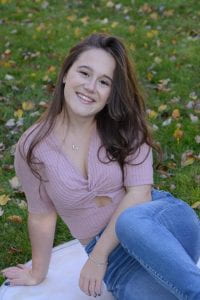
Malena Otero (she/her)
WCAS ’23 (Psychology & Cognitive Science) – Summer Undergraduate Research Assistant Program
Malena Otero

What made you initially interested in researching your project in particular?
Shortly before joining the Life-Span Development Lab I took a class on Positive Psychology. In this class I was introduced to a large field of psychology largely unexplored. While there is endless research on what can go “wrong” with the mind, there is much less out there on the effects of human flourishing. One of the researchers that we learned about was Barbara Fredrickson, whose work on positivity resonance as the foundation of love truly stood out to me. When I started working on the EIF study at LDL, I saw the potential to explore this phenomenon of positivity resonance on a demographic that had been largely ignored, friendships in young adults.
Please provide a brief summary of your research.
This summer I worked as an administrator and experimenter for our Emotion in Friendships study, where we looked at the role of emotions in dyadic interactions. Pairs of friends participated in a conversation of areas of disagreement and one of areas of agreement, and were asked to fill out a series of questionnaires related to their emotions, well-being, and social experiences. I also spent the summer training as a technician for our Caregiver-Youth Interaction Study, which looks at how emotional interactions between youths experiencing symptoms of thought disorder and their parent/caregiver. This study aims to elucidate how these interactions may influence wellbeing for both participants.
What made you interested in pursuing (interdisciplinary) research more broadly?
In high school I participated in a Psychology summer program at Columbia where one of our assignments was to design a fake study. We were able to “test” this study on our classmates, and then presented our “findings” as a final project. In conceptualizing, designing, and conducting this study and then analyzing our findings I found a love for research. The idea of being able to test different areas of interest I had within the field of Psychology quantitatively and determine existing relationships in the real world seemed fascinating. A few years later when I was applying to colleges, I saw all the research opportunities Northwestern offers and knew I absolutely had to go for it.
Describe your experiences with research thus far. Was it tricky? What skills do you think you’ve gained?
The trickiest aspect of research I have experienced so far is the long-term nature of a research project. The life-span of a research study is long, and sometimes goals that you thought would wrap up quickly can end up taking longer than anticipated. Being involved in a research study from recruitment, through data cleaning and analysis truly makes you realize that research is much more than analyzing data. In my time at the Life-Span Development Lab, I have learning to set achievable goals and manage longer timelines, keeping motivated to follow through on a longterm project.
Any tips or advice you have for students similar to you that are interested in pursuing undergraduate research?
Before getting involved in research I at a loss on how to get involved. Research at such a notorious research institution seemed larger than life, and I was so nervous to reach out. Now that I have had a chance to work in research at Northwestern, I realize just how much support there is to get involved. The Office of Undergraduate Research has endless opportunities and many people working to help you get involved in research, all you have to do is reach out!
Favorite breakfast food?
Chocolate Chips Pancakes!
What’s the most interesting thing you’ve learned/read about/listened to this week?
In my Advanced Statistics and Experimental Design we are learning about the perils of underpowered and overpowered studies. I found this super interesting considering how relevant it is to research but also how little it is emphasized.
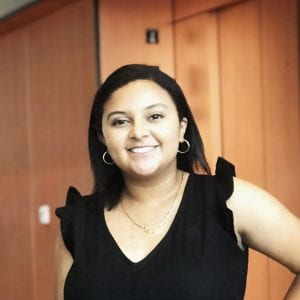
Vivica Lewis (she/her)
WCAS ’23 (Sociology & Global Health Studies) – Circumnavigator Travel Grant
Vivica Lewis

Please provide a brief summary of what you plan to research over the summer, where you plan to go, and why you chose those locations.
My research project is focused on investigating cultural shifts and youth education and engagement programs surrounding birth control methods, specifically within countries that have/had restrictive policies on the sales and usage of contraceptives. I plan on going to Argentina, Ireland, Romania, Singapore, and Japan. I chose these countries because of their past or present policies around birth control, but it was also important to me to ensure each one told a unique story. For example, Ireland’s restrictions were due to the Roman Catholic Church debates, so it provides a different narrative as the only country in the itinerary with a religious aspect. Japan legalized most forms of birth control in 1999 which is almost 40 years after Western countries, so it provides the perspective of one of the latest legalizations.
Describe your experiences with research thus far in your career.
I worked as a research assistant through the Undergraduate Research Assistant Program (URAP) my first year at Northwestern. My experience was great, and I learned a lot, but I took a break from research after that because I felt I had a lot to figure out about myself and my professional goals before returning to it. Now, as a third-year, I have a greater idea of my career goals and the research process, so I felt ready to apply for this grant.
What made you initially interested in researching your topic in particular?
I have been interested in reproductive health since my own high school health class experience. Coming from an urban community, sexual health was thought of and taught differently, and I saw so many areas for improvement at 17 years old. Once I came to Northwestern, I started taking classes related to reproductive and maternal health, and I really found my passion. I also started working with outside organizations, like Illinois Contraceptive Access Now (ICAN!) and Peer Health Exchange (PHE), which developed my technical skills and helped me start to think about what kind of career I could build in this field. Once I considered what to research, it felt natural to choose a project that allowed me to study sexual health education programs on a global scale considering my classes, work experience, and just passion!
Any tips or advice you have for students interested in pursuing undergraduate research?
My biggest piece of advice is GO FOR IT! It sounds simple, but I felt very hesitant early on to apply for such a large grant. I am extremely grateful to my family and friends that supported me from day one when I mentioned this is what I wanted to do. The field of research has been and continues to be exclusive in many ways, but I would encourage students from various backgrounds with unique perspectives to start getting into it. The Office of Undergraduate Research and faculty are here to support you every step of the way. I recall many late-night re-writes of portions of my proposal, texting friends that I was not sure I could do this, and even doubting myself, but I can say I am so glad I did not give up. So, if you are even thinking about getting into research, I hope you know that you are not alone, and you are beyond capable to do this, so start writing.
Do you collect anything?
I have always loved reading, so I keep my top almost 50 books in my room now, but I have way more back home. I read almost exclusively young adult fiction when it comes to reading for fun. I also have met many authors through book conventions around the country, so I have some signed copies that are precious to me!
What is your favorite dessert?
I love chocolate! Chocolate ice cream has been my favorite since I was a kid, and I will always choose a slice of chocolate cake!
What is your most unusual talent?
I am not sure if I would call it a talent yet, but my roommate and I recently purchased an air hockey table for our place. We play quite often, and I am not sure what I am preparing for, but I realized I am pretty good at air hockey!
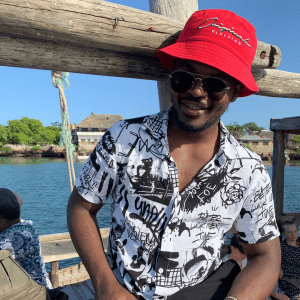
Samson Mbogo (he/his)
Northwestern Qatar (Journalism & Strategic Communications) ’23 – Undergraduate Language Grant
Samson Mbogo

What language did you study and why?
Spanish. Since I was a kid, I have loved football (soccer), and I remember the many fun times that my father would take me to the stadium to watch the Kenyan national team play. My love for this sport has only grown over the years; I play football for my university, play FIFA video games, and currently, I am focusing my journalism career on researching, studying, and reporting on football. The love for soccer and its integration into culture in Spain excites me so much. I am focused on learning these aspects of the sport and translating them in my home country, hoping that the sport will develop to the levels it has peaked in Spain. I hope to emulate the integration of football into a culture in Spain to the Kenyan football scene. As a journalist, my biggest barrier was communication. I needed to learn Spanish to engage with the local community more deeply. Last summer, I was privileged to get that opportunity from Northwestern Undergraduate Language Grant.
What program did you attend and why did you choose it?
AIL Madrid. Initially, I was looking forward to traveling to Spain for my language study, but unfortunately, due to COVID-19 restrictions, I had to take my program online. AIL provided me with a very engaging online study program from native speakers for tutors to weekly virtual tours around Madrid. The reviews that the program had received online too were positive, and when I enrolled, I was not disappointed.
Describe your experience doing summer language study. Was it tricky? How do you think your language skills improved?
It was completely different from what I expected, in a good way, though. When I got in class, I heard the tutor speaking in Spanish, and I was waiting for them to finish and translate what they had said in English. They informed us that learning this new language meant they would not use translations (unless necessary) because that would slow our learning process. This aspect got me being very attentive in class and doing extra work outside of class to ensure I understood better what was being taught, and at the end of it, I found that technique very helpful to my overall learning of the language because my skills improved immensely from writing to reading and speaking.
Did intensive summer language study change or solidify any of your future goals? If so, how?
Learning Spanish has made it easier for me to access more documents in my research on how culture and football are intertwined in Spain. This is major step forward as a journalist focused on learning more about football and culture in Spain.
Do you have any tips or advice for students similar to you that are interested in pursing intensive language study?
Have clear goals on why you want to study the particular language, that helps you to be more driven and focused during your study. Do enough research about the program where you want to take your language, that completely defines how successful your language study will be. Be open minded, have fun, try new things and enjoy especially if you get to travel because learning a new language is meant to be fun 🙂
If you had unlimited time, money, resources, support, etc. what is something you would research?
Whether we can become immortal.
Favorite breakfast food?
Crunchy bacon, avocado, runny eggs, toast and milk.
What is your most useless talent?
Moving my ears.
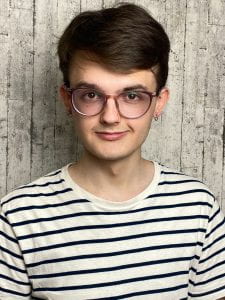
Daniel Ozernyi (he/his)
WCAS (Linguistics) ’25 – Conference Travel Grant
Daniel Ozernyi

My website, dozernyi.com and links there provide some more information about the things I do, viz. full abstracts, slides, previous work, etc.
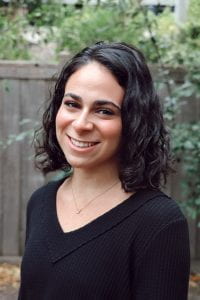
Anna Davis (she/her)
McCormick (Biomedical Engineering) ’22
Anna Davis

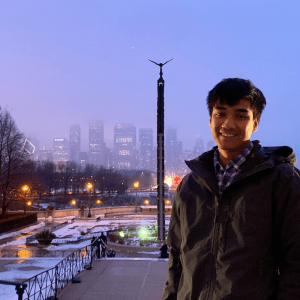
Ravi (he/him)
WCAS – Physics, Math, ISP (Integrated Science Program) ’22
Ravi

Please provide a brief summary of your research.
My research is about quantum networks that could one day be used to create a worldwide quantum internet. More specifically, I do theoretical and computational physics research to understand how theoretical models from statistical physics can give rise to quantum networks. I seek to understand how these quantum networks are organized and what implications this has for a future quantum internet.
What made you interested in pursuing interdisciplinary research more broadly?
When I first arrived at Northwestern I knew that I was interested in physics, but I wasn’t sure how I as just a college student could get involved. Thanks to Science Research Workshop, a program offered by the Office of Undergraduate Research, I discovered that undergraduates DO make important contributions to research in a wide variety of fields! After attending SRW, I was eager to jump into research and make a small contribution to our knowledge of the world.
What made you initially interested in researching your project in particular?
Before my current research, I was part of a physics lab that focused on experimental soft matter projects. While I found that work interesting, I also wanted to try something more computational or theoretical in nature. I looked at the Physics department website, and after finding someone who seemed fitting, reached out to my current advisor by email. When talking to my advisor I was most interested in the idea of quantum networks and how we can understand how they are connected.
Describe your experiences with research thus far in your career.
I have had a couple of different experiences with research so far. One was in an experimental physics lab, and my current research is on the more theoretical side. Regardless of the setting of the research, the most important skill that I’ve learned is the ability to manage long research projects, and to maintain confidence in myself while doing so.
Any tips or advice you have for students interested in pursuing undergraduate research?
No matter what field you’re interested in, the most important thing about undergraduate research is to believe in yourself. Being an undergraduate in the world of academic research is scary. But, you do have an important role and an important perspective.
Also, check out this article about undergraduate research by a recent Northwestern alumnus. The article is geared toward the sciences, but has lessons that I think apply to all fields. It was very helpful as I navigated my undergraduate research experience!
Favorite breakfast food?
Waffles!
What is your most useless talent?
Solving a rubik’s cube (but not fast at all)
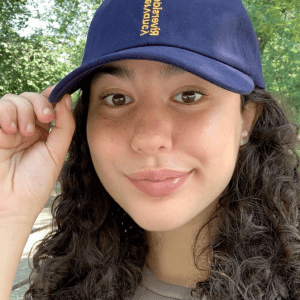
Isabel Podolsky (she/her)
WCAS – American Studies & Economics ’24
Isabel

Please provide a brief summary of your research.
What’s so special about New York City’s Riverside Park? Is it its location? It’s one of many waterfront parks within New York City. In fact, the entire west side of Manhattan, NYC’s central borough and the location of Riverside Park, is a greenbelt. Riverside is a large section (330 acres) of this area, but many people are unaware of this fact, as they utilize the park in chunks rather than in its entirety. One could claim that this makes it a city park in size, but a neighborhood park in usage, but that would be an oversimplification. Is it its heritage? It features the pastoral landscapes that defined the style of Frederick Law Olmsted, but Olmstedian influences are common within NYC’s major parks due to the reach of his practice. When thinking of an example of an “Olmsted park,” the world-famous Central Park is far more likely to come to mind. Furthermore, Riverside is barely even a product of Olmsted; Robert Moses, as part of the West Side Improvement, expanded the park to its current size and scope, with its western border being the Hudson River. What truly makes Riverside special is the development that occurred after Olmsted and Moses: the individual efforts that shaped the park into its current physically diverse, vibrant, and community-oriented state. The primary intention of this research project was to understand how individual users relate to and interact with Riverside Park, and how the relationships that people have with the park are unique from those witnessed within the bounds of any other park in the city. Utilizing a nuanced picture of what makes the park unique developed through observations, readings, and interviews, I endeavored to establish conclusions about steps that should be taken to preserve and improve the park for future generations.
What made you interested in pursuing interdisciplinary research more broadly?
I came to Northwestern knowing that I wanted to pursue an unconventional and interdisciplinary course of study. My academic interests center on the processes, interactions, and tensions that occur between people and the places they shape and occupy. In the classroom, I’m able to explore this through my American Studies major, which allows me to craft my own concentration spanning a variety of departments from Civil Engineering to English. However, there’s only so much that I believe I can learn just by reading theory, so I knew that I wanted to make research a priority early in my college career. The Winter 2021 Arts, Humanities, and Social Sciences Research Workshop gave me the opportunity to do just that, guiding me through the grant-writing process so that I could apply for (and eventually receive) a Summer Undergraduate Research Grant.
What made you initially interested in researching your project in particular?
I’m a New Yorker, born and raised. I’m also an aspiring urban planner, a career path that I decided to pursue at the beginning of the COVID-19 pandemic. Stuck within the boundaries of my neighborhood for the first time, I became fascinated with the ways in which the public spaces I’d taken for granted became the nexus of social life. Chief among them was Riverside Park, which morphed from a pleasant place to walk to my refuge from the uncertainty of 2020. Concurrently, I became interested in scholarship about parks in urban spaces. I realized that Riverside Park contains the facilities of a “city park” yet is patronized like a “neighborhood park,” so I proposed to define this middle ground accordingly, deeming it a “multi-community park.” This formed the basis of my grant proposal.
Describe your experiences with research thus far in your career.
This was my second independent research project (I did my first project in high school), but working independently on this project was definitely not easy. I love setting my own schedule, but independent research requires a different level of holding yourself accountable for accomplishing tasks. Conversely, since the only expectations I had to satisfy were my own, I was able to be very adaptable, allowing my project to evolve in ways I hadn’t anticipated. Ultimately, I found the experience to be challenging but incredibly rewarding. Most significant to my personal growth was the strengthening of my communication skills. When I was a freshman in high school, I quit after one day of cold-calling constituents on behalf of my city councilperson. I disliked having to contact strangers, but at least the phone offered a shield of anonymity. I never thought that I’d be the person standing on a street corner, asking passerby if they’d like to sit for a short interview, but when I wrote my grant proposal, I decided to make interviews the bulk of the data that I’d gather. I was very hesitant at first, but my confidence was bolstered by how friendly people were when I approached them, even if they didn’t consent to the interview. By talking to strangers within my community and the adjoining neighborhoods, I also gained a deeper appreciation for the space that I inhabit. As the interviewee who changed my project said, “possession is a powerful motivator,” and I know that my fresh sense of belonging will motivate me in my future endeavors.
Any tips or advice you have for students interested in pursuing undergraduate research?
Two things: your STEM-focused friends working in labs aren’t the only ones who get to have all the research fun, and no idea is insignificant! My project focused on what is effectively my own backyard. If you’re passionate about something, chances are there’s a project that you can pursue in order to explore it. The Office of Undergraduate Research is very supportive, and you can reach out anytime for advice! I also strongly recommend participating in one of their research workshops; grant proposals are tricky, but much more manageable when you have a group of people to bounce ideas off.
What’s the most interesting thing you’ve learned/read about/listened to this week?
It’s common for weatherpeople reporting on hurricanes to have a fan blowing wind on them offscreen for dramatic effect.
What is your most useless talent?
Saying the alphabet backwards in under five seconds!
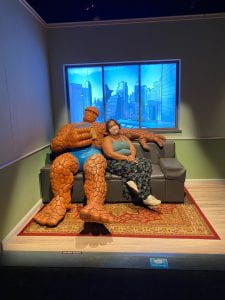
Elizabeth Vazquez (she/her)
Weinberg College of Arts & Sciences (Archaeology; History) ’24
Elizabeth

Brief summary of research:
My research with Dr. Waxenbaum focused on the differences between racial and ethnic terms used within the Physical and Forensic Anthropology circles and the people who actually belong to those groups. We wanted to draw attention to the fact that these two Anthropology subfields deal heavily with deceased people, and even though those people can’t speak for themselves, we want to pay the most respect when we refer to them and work with them in modern studies. We combed through popular academic journals in the field and charted the use of certain terms to understand what leading trends were among academics to place them in comparison with relevant discourse about what people want to labeled, such as the Hispanic vs Latinx vs Latine vs Latino debate.
What made you interested in pursuing interdisciplinary research more broadly?
Research is critical to what I want to do as a career. I plan to pursue museum studies after graduation, which without saying implies getting cozy with archival work and sorting tons of data. Likewise, I just love creating things in general, given that I was a creative writer in high school, so naturally I love sitting with a finished product that I’ve participated in. Research feels similar to me.
What made you initially interested in researching your project in particular?
I met Dr. Waxenbaum through a different professor after expressing interests in museums and research, and he sent me over to her. We talked for about an hour just about how to approach the sheer amount of opportunities at NU, and she told me, “Just ask a professor about what they’re doing right now and I assure you they’ll talk. Professors love to talk.” So I asked her that same question, and I was immediately hooked with her idea given that I am a member of Latinx community and wanted to further explore why there’s so little cohesion on who we are under a label. I felt a personal stake in the topic, but I also wanted to expand my knowledge to other discourses with similar issues.
Describe your experiences with research thus far in your career?
Before URAP, I was super nervous about getting involved in research. But with Dr. Waxenbaum, I was able to ask questions both on the subject of our research and actually DO stuff in the project (rather than my initial worry of being only an extra set of hands). I felt like more than an assistant and that my contributions were making real impacts on research. It was great to be in this democratic space and change trajectory as we needed to. Plus, I was really interested in my topic, so I enjoyed falling down rabbit holes of articles to add to our literature. Does that count as a skill? If not, I believe I got really comfortable with dealing with huge mountains of data, upped my organization game, and in general got better at asking the right questions and making decisions to keep our data relevant and purposeful.
Any tips or advice you have for students interested in pursuing undergraduate research?
Definitely do not knock it before you try it! I was a little hesitant about research, just because figuring out methodology and finding a grounded start point always felt a little overwhelming to me. But a URAP is an excellent place to start because you get to work with someone who is both a) experienced as an academic and b) first and foremost a teacher and a guide. Even if you don’t know where to start, it never hurts to start a conversation with professors about research possibilities given that you never know where they could end up.
What is your favorite breakfast food?
Bagels any day every day!
What is your most useless talent?
I have double hitch hiker thumbs. I guess it’d would be useful if I was hitchhiking.
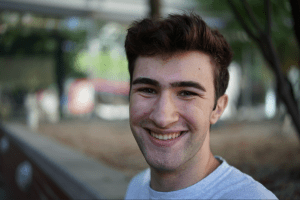
Jack Burkhardt (he/his/they/them)
Weinberg College of Arts & Sciences (Computer Science; Sociology) ’24
Jack

Brief summary of research:
I worked under Prof. Ozge Samanci and helped bring to life two new media art installations, “VastWaste” and “Mind The Debris”, which are about the interplay between increasing marine pollution and space debris and the potential implication of this issue as it grows in magnitude. The installations were created in the Unity game engine, and “Mind The Debris” additionally uses EEG (brain activity sensor) data from users that affects how the installation plays out. My job involved implementing Virtual Reality and Projection systems for these projects as well as tuning visuals to enhance the experience.
What made you interested in pursuing interdisciplinary research more broadly?
While I enjoy Computer Science a lot, more “traditional” CS research did not sound as appealing to me and as such I tried to look for more interdisciplinary options that combined more of my interests. I found URAP from there and thought it would be a great fit for my interests, and the rest is history!
What made you initially interested in researching your project in particular?
For several months before discovering this project I knew that I wanted to make some kind of piece of interactive media, be it art or a video game or something else. So this project happened at the perfect time for me, and really gave me a chance to do something I was already passionate about in a research context.
Describe your experiences with research thus far in your career?
Since the nature of most of my work was technical, there were certainly plenty of hurdles. I had to go from only having mild exposure to the software tools we were using to being able to start making things within a couple weeks, which luckily came pretty smoothly. Research offers a lot of freedom and independence, which sometimes can be overwhelming but you quickly learn how to pick up skills quickly and problem-solve on your own.
Any tips or advice you have for students interested in pursuing undergraduate research?
Anyone interested in doing undergrad research should go for it! Northwestern is unique in that it has so many different ways to get involved in research as an undergrad. While all of those ways may be overwhelming at times, it also provides reassurance that there are ample amounts of research activities going on, at least some of which may interest you. You won’t know until you actually take the dive.
If you had unlimited time, money, resources, support, etc. what is something you would research?
I would research exactly how many licks it takes to get to the center of a Tootsie Pop.
What is your favorite breakfast food?
Nothing beats a good breakfast omelet or sandwich!
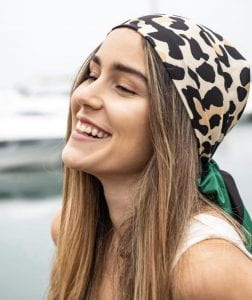
Antonia
Medill & WCAS – Double Major in Journalism & Psychology with a Minor in Art, Theory, Practice ’23
Antonia

Please provide a brief summary of your research.
My project consisted of creating a podcast in order to introduce a new way of thinking about meditation, mindfulness and wellbeing to young adults. I interviewed different experts in the fields of psychology, art, philosophy and more in order to bring different perspectives to the table.
What made you interested in pursuing interdisciplinary research more broadly?
I really believe in the power of creating interdisciplinary projects. By combining my passion for storytelling and psychology, I realized that I was able to create something that was different but that also resonated with many people.
What made you initially interested in researching your project in particular?
The reason why I wanted to dive deeper into the world of meditation is because I realized that although students may excel academically, talking about mental health is not as common. And so, I wanted to find a way of making wellbeing and meditation seem like topics that weren’t as scary as they sounded.
Describe your experiences with research thus far in your career.
This project was tricky, as I depended a lot on my interviewees and finding the right people to interview was hard. I was also working mostly on my own, so interviewing, editing the episodes, managing the social media accounts, etc. was a lot of work. Nonetheless, I have learned any skills, such as being proactive, asking many questions and experimenting with different kinds of media.
Any tips or advice you have for students interested in pursuing undergraduate research?
Don’t be afraid to pivot! Ask many questions and make sure you are continuously referring back to your project’s goal.
Here’s where you can find Antonia’s podcast:
Website
Spotify
Other Streaming Platforms
Instagram
Twitter
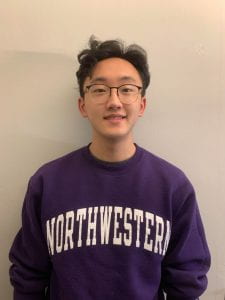
George
WCAS – Neuroscience ’23
George

Please provide a brief summary of your research.
I used high resolution time-lapse confocal microscopy to determine how mitochondria-lysosome contact dynamics are influenced by Charcot-Marie-Tooth Type 2 Disease (CMTD-2) associated genes. These mitochondria-lysosome contacts enable the cell to crosstalk and regulate function such as metabolite transfer, regulation of organelle dynamics, and maintenance of cellular homeostasis. Mutations in multiple genes can cause different forms of CMTD-2, so over the summer, I imaged CMTD-2 causing mutations in genes LRSAM1, GARS1, and HARS1 and analyzed HeLa cells associated with either the wildtype condition or disease condition. After performing statistical analysis, I discovered the GARS1 and HARS1 mutants showed increased mitochondria-lysosomal contact tethering (they were stuck together for longer), and this leads the way for elucidating the mechanism behind how certain mutations can lead to CMTD-2.
What made you interested in pursuing interdisciplinary research more broadly?
I thought working with novel cells no one has ever looked at before really appealed to me – especially as an undergraduate who has had little prior lab experience!
What made you initially interested in researching your project in particular?
I thought looking at organelle dynamics at the microscopic level was a very unique method to better understand how a complex disease works.
Describe your experiences with research thus far in your career.
The hardest part for me was to really understand my lab’s research, and the only way to understand it was to immerse myself in loads of background reading while taking notes, constantly asking my professor questions, and thinking critically about why I am manipulating a certain variable for the bigger picture of my research, for example. After I completed my summer project, I presented my findings to the rest of the lab in a PowerPoint format. Also living independently – outside of on-campus dorms – taught me a lot about balancing my time and staying organized. Thank you to Dr. Wong for her amazing mentorship and a very productive summer!
Any tips or advice you have for students interested in pursuing undergraduate research?
Talk to as many professors conducting research as you can, and find the one you click with the most! Not all will respond to you however, so keep networking!
What meme lives rent free in your head?
What the dog doin?
What’s the most interesting thing you’ve learned/read about/listened to this week?
People with blindsight have damage of their visual areas in their brain (they are blind) but can still react to visual stimuli right in front of them without conscious perception.
What is your most useless talent?
In freshman year I was top 300 in league of legends, an online game played by millions.
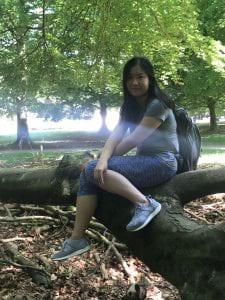
Scarlet Li (she/her/hers)
School of Communication (Radio, Television, Film, & Political Science) ’22
Scarlet

Brief summary of research:
I wrote a play that centers on the expansion of the American niche sports to Ivy League schools pipeline overseas, specifically its growing market in China, and its effect on student athletes.
What made you interested in pursuing interdisciplinary research more broadly?
I think it comes naturally, being a double major in political science and film. I love social sciences and I always hope to find a way to express what I learn and what I experience using creative means.
What made you initially interested in researching your project in particular?
I stumbled upon an article from The Atlantic that discussed the disappearing golden key to Ivy League admissions-niche sport. It was taken down because of, well basically, fraud, and that piqued my interest.
Describe your experiences with research thus far in your career?
All things considered, my research went quite well.
Any tips or advice you have for students interested in pursuing undergraduate research?
Do it. Dream big.
If you had unlimited time, money, resources, support, etc. what is something you would research?
I would make this one into a stage performance.
What meme lives rent free in your head?
Bernie asking for money.
What is your favorite breakfast food?
Muffins.
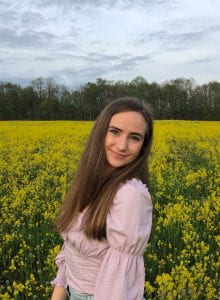
Olivia Masse (she/her/hers)
Weinberg (Neuroscience Major; Minor in Native American & Indigenous Studies) ’24
Olivia

Please provide a brief summary of your research.
I worked with Dr. Jennifer Richards – and her team on research in the field of science education. Our research involved a cross-case analysis of Next Generation Science Standard (NGSS) teachers’ thinking about NGSS-aligned classroom assessments. We looked at the teachers’ thoughts surrounding NGSS instruction and assessment and examined how their thinking shifted through participating in professional learning. I also contributed to our team’s submission to the 2022 NARST conference – a science education research conference.
What made you interested in pursuing interdisciplinary research more broadly?/What made you initially interested in researching your project in particular?
To enhance my Northwestern experience, I sought a program where I could develop research skills while also exploring areas of interest, including science and education equity. The URAP opportunity with Professor Richards combined these interests. Getting to learn from and analyze teachers’ perspectives and experiences also intrigued me. I have worked with students in the past, but I wanted to learn more about the teachers’ point of view, and how the implementation of a new set of science educational standards could be improved.
Describe your experiences with research thus far in your career. What skills do you think you’ve gained?
Participating in URAP gave me the unique opportunity to work closely with and learn from Professor Richards and her amazing team. Besides the exciting interpersonal aspects of the project, this experience taught me different approaches to qualitative research and furthered my analytical skills. I look forward to putting my new skills to use in future research.
Any tips or advice you have for students interested in pursuing undergraduate research?
I would suggest reaching out to professors you have had if you are interested in what they do or using the Office of Undergraduate Research resources. Attending OUR workshops on how to find faculty to work with and how to reach out was super helpful to me. The OUR website also has a ton of information on where to get started.
What’s the most interesting thing you’ve learned/read about/listened to this week?
How to decipher Maya hieroglyphics in one of my classes.
Favorite breakfast food?
Pancakes or waffles depending on the day!
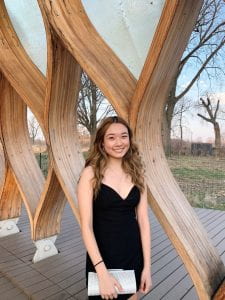
Isabelle Kang (she/her/hers)
Weinberg (Neuroscience Major & Global Health Minor) ’22
Isabelle

Brief summary of research:
Cerebral palsy (CP) is a neurological disorder that is primarily characterized by impaired muscle movement and coordination. My project seeks to assess and investigate early movements of infants at high risk of CP, specifically the correlation between head position and the movement of the right and left upper and lower extremities through the asymmetrical tonic neck reflex (ATNR). ATNR is a primitive reflex that originates in the brain stem and is triggered by rotating an infant’s head to the side, causing the extremities of the side where the head is turned to extend and the extremities on the other side to flex. Previous research has found that the first symptoms observed in all disturbances of brain development, such as CP, include the persistence of primitive reflexes, such as ATNR. Therefore, through the coding and analysis of infants’ movements, the effect of head position, which will be investigated through the ATNR, on upper and lower limb positions can be investigated, and the extent to which infants lift these extremities off the surface, regardless of head position, in correlation with CP diagnosis, can be determined. Overall, the goal of this study is to further understand the earliest symptoms of CP to ultimately improve early detection methods and prognosis in infants.
What made you interested in pursuing interdisciplinary research more broadly?
My previous research in nanotechnology introduced me and taught me the foundation of research, specifically in a chemistry laboratory. However, I was excited to expand and apply the skills I learned to areas of new research that align more with my personal interests and aspirations. This new lab I found at Feinberg combined my previous interests in the use of technology for medical applications and my current interests in pediatrics and neuroscience, so it seemed like the perfect opportunity!
What made you initially interested in researching your project in particular?
As an aspiring pediatric neurologist, this research aligned perfectly with my personal interest in the effects of brain injury on children. Working with humans rather than chemicals, I was eager to learn how technology can be used to detect and address physiological problems in children and the brain in general. In addition, I was enthusiastic to apply my knowledge of nervous system functions from my Physiology course and of the development of personality and social interaction in infants from my Developmental Psychology course to the research setting.
Describe your experiences with research thus far in your career?
I did research in high school on nanotechnology, specifically creating nanocomposites to be used in drug delivery systems, for 3 years. Through this experience, I was able to sharpen my research skills by conducting, organizing and analyzing a large number of experiments simultaneously as well as presenting at different competitions and conferences. I then continued my interest in research through Northwestern, which is now my current project, continuing to strengthen my analytical skills and exploring my own personal questions in the scientific world.
Any tips or advice you have for students interested in pursuing undergraduate research?
Don’t be scared, especially if it’s your first time! Research may seem intimidating initially as you are venturing into the unknown, but Northwestern offers many resources to support you and help you along the way. Also, research what you are passionate about so that you can find joy in your work and get closer to the answers of your own research questions.
What is your most useless talent?
Binge-watching Netflix
What is your favorite breakfast food?
Avocado egg toast OR waffles w/ strawberries and whipped cream 🙂
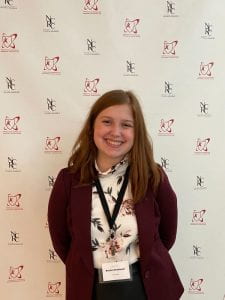
Rachel
School of Communication & Radio, Television, and Film ’20 – “IMDb User Reviews & Female Superheroes” funded with Summer Undergraduate Research Grant and Conference Travel Grant
Rachel

- Please provide a brief summary of your research.
I read through 250 IMDb user reviews for female-led superhero films Wonder Woman and Captain Marvel to uncover another aspect of their public reception. Both of these films were successful in two of the film industry’s standard metrics for success, professional critics reviews and box office totals, and these two factors can have a large impact on future releases. However neither of these metrics take into account what audiences say after they leave the theater and these sentiments can impact the performance of future sequels.
- What made you interested in pursuing interdisciplinary research more broadly?
If we’re being totally honest, most of what brought me into the OUR was a fear of summer plans. I first went to the OUR when Peter came into one of my classes freshman year and it seemed like a solution to my anxieties about finding an internship because the need for one hadn’t even crossed my mind. However, when I met with him I wasn’t ready to apply for a grant because I was young and had absolutely no ideas for a project. Later in my Northwestern career (as I was going through a college major identity crisis) I found my way back into the OUR because I needed something to do for my shortened summer before going abroad. This is the summer when everything “clicked” for me and I realized how interested I was in discovering more about the world through researching it and why I was always drawn more to film theory classes rather than physical production. Fear brought me into the OUR each time but what kept me coming back was a passion for what I had found and a desire to uncover more.
- What made you initially interested in researching your project in particular?
I am a woman in an industry that, as shown most recently by the #TimesUp movement, does not always treat woman fairly both in front of and behind the camera. The most recent set of female-led projects and reckoning to remove sexism from the industry gives me hope that things will improve however these things are often a slow moving process. I was drawn to studying female-led projects because I see it as my contribution to the movement.
- Describe your experiences with research thus far in your career.
I’ve know for awhile that I wanted to work in film in whatever way I could. However, what my research cemented for me is that whatever position I choose, I want to help make things better. I want to be part of the systems that are opening up the film industry for women to have successful careers without harassment or sexism. I read a lot of overwhelming negativity toward women in film during my project and that is, in some ways, disheartening. However I am choosing to be fueled by it. I do not just want to work in film, I want to change film.
- Any tips or advice you have for students interested in pursuing undergraduate research?
As much as it may be a royal pain while you are completing your project because you have to look for books that span the far reaches of the library, the best research is interdisciplinary. Nothing in the world exists independently and there is no invisible force in nature that separates the humanities from being affected by the social sciences and, as a researcher, you need to take that into account. Stay true to your vision for the project but be open to the influence who have a different set of expertise and get as many books as you can that even tangentially relate to what you are studying. University Library is free and I implore you to use and abuse that to the best of your ability- I had a gigantic tote bag that held all of my books. Cold emailing professors in as many departments as you can justifiably relate to your work is also is a must. Some may ignore you, but for the majority, their work is what they devote their life to. They *want* to talk about it and they *want* other researchers to be inspired by it. You have so much more to gain than you do to lose.
- If you had unlimited time, money, resources, support, etc. what is something you would research?
I would either continue my current research project but with different female-led films as compared to male-led predecessors- two I’ve considered are Suicide Squad vs Birds of Prey or Wolf of Wall Street vs Hustlers- or I would do research into film subtitling/dubbing into other languages.
- What is your most useless talent?
I can make myself burp on command.
- What’s the most interesting thing you’ve learned/read about/listened to this week?
Aspects from daily Pakistani-American life and culture that I find in the Ms. Marvel comic book run I’m reading.
- Favorite breakfast food?
Asiago Cheese Bagel
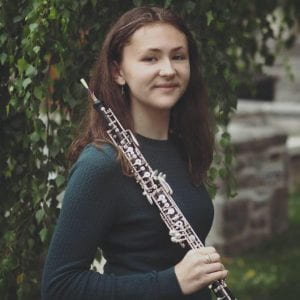
Mackenzie Gentz (she/her/hers)
Bienen ’22 – “Global Adult ESL Accent Training” funded by 2021 Circumnavigators Grant
Mackenzie

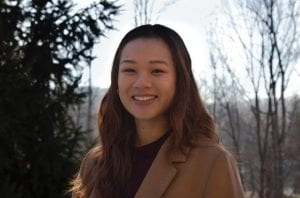
Melissa (she/her/hers)
McCormick ’21 – “Combatting Human Trafficking” funded by Conference Travel Grant
Melissa

Melissa presented at the Decision Sciences Institute 51st Annual Conference. She described her experience as follows: “Although this was not a typical year for conferences, I felt that it was better to have virtual conferences than in person conferences. I was able to hear about people doing really cool research from the comfort of my home rather than running around trying to navigate where each presentation would be. The best part about virtual conferences though is that all the recordings are available for up to 3 months after the conference! This is incredibly useful because I can go back to a presentation I thought was particularly interesting and re-watch it. For example, some research projects had innovative methods that I would like to incorporate into my project. I can go back to that project and re-watch their methodology section if I did not take thorough enough notes. I would say that the most worthwhile experience was being inspired by the innovative projects taking place right now, whether they were in my field or not.”
As far as conferences go for professional development, Melissa said, “I was lucky enough to co-present with my research advisor. Not only did I learn about formally presenting in academia, but I was able to add that presentation into my resume. According to my research advisor, she said that adding “presented at xyz conference” can really make a difference in higher education applications.”
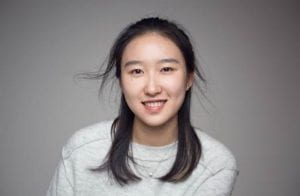
Joyce (she/her/hers)
School of Communication ’23 – “Transnational Stories of Loss in COVID” funded by Summer Undergraduate Research Grant
Joyce

Joyce decided to use a Summer Undergraduate Research Grant to write a play highlighting women’s stories of migration in modern China. In starting the project, Joyce said, “I wasn’t planning to do my own research when I first met Peter in an advising meeting. I was looking for a URAP position in theatre or humanities, but Peter asked me what I was passionate about (since projects in arts and humanities are usually very specific and creative), and if I had the chance to do my own research, what I would want to do. So I told him about a short play that I wrote during my senior year of high school. I was born and raised in China, but I came to study in the US since high school. Towards the end of high school, I reflected on my journey of moving from one country to another and felt an urge to look for and write about what made who I was. I interviewed women in my family and wrote a two-act play based on their stories to explore the identity of a Chinese woman. From there, Peter encouraged me to think bigger and expand that idea. Since I was also interested in exploring the history of women in contemporary China, and movement and migration is a big part of my personal and my family’s experiences, eventually I decided to conduct research and write a play about families of women under migration in modern China. To collect stories and narratives, I read primary sources including diaries and documentaries and interviewed women from different backgrounds in China.
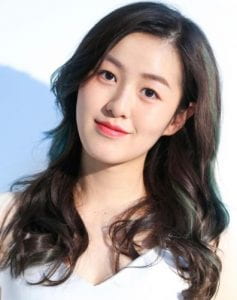
Rayna (she/her/hers)
Medill ’23 – “Coronavirus and Educational Gap” funded by Summer Undergraduate Research Grant
Rayna

In all research, some aspects or assumptions around a project need to be reevaluated and re-shaped. Rayna said in her experience, “When I started doing the interviews, I assumed that online classes helped increase the gap between the haves and the have-nots. However, the story turned out to be more nuanced. Online classes gave some students access to teachers they did not have access to before, since some online classes were filmed for all students within the same province, regardless of the high school, and these teachers were the best in the country.”
When it came time to thinking about how she wanted this information to be received, Rayna knew, “…because I am a journalism student, I wanted my final product to be a published article rather than an academic report. I also knew at the time that I would probably be in China during the summer, and it would be easy to do the interviews. I started doing interviews in June and July, and I had already talked with more than 30 students and experts by the time I started writing. I organized the interviews and tried to find trends in them. I picked out several students that came from different financial backgrounds to illustrate the story.”
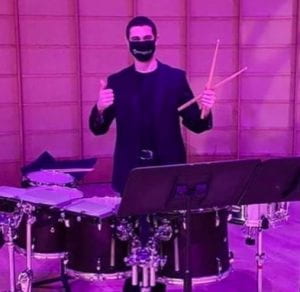
Zach (he/him/his)
Bienen & School of Communication ’21 – “A Method Book for the Snare Drum” funded by Summer Undergraduate Research Grant
Zach

Zach spent his summer working on developing a method book for the snare drum. Zach said that his inspiration initially came from a class on percussion pedagogy and diving deep into studying nearly every method book for percussion. He said, “As a part of the course, I came up with concepts and tables of content for two books of my own and designed a curriculum for a beginner student. Learning about the pedagogical side of music got me interested in exploring it more deeply. I wanted to know the specifics about why certain exercises worked better or worse at targeting areas of weakness, and how connecting musical ideas to nonmusical ideas could be an effective pedagogical strategy. I hoped that by writing my own method book, I would discover answers to these questions and in the process, make myself a more effective teacher and a better player as well.”
To make his method book a reality, Zach’s primary percussion professor referred him to the OUR to find out about summer grant opportunities. Here, he found out about the SURG three days before the deadline! Zach worked with the OUR to learn the details about the grant and wrote a successful proposal! He said, “Grant writing was completely new to me, so I was very grateful for the help I got from my advisor. She went through my drafts and helped me make my writing much more accessible to the panel and explained the standard outline for a grant proposal in depth. I was lucky to have such a knowledgeable advisor, I couldn’t have done it without her!”
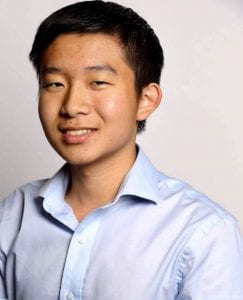
Kevin (he/him/his)
Weinberg College of Arts & Sciences ’22 – “Effects of ARID1A Gene Knockout on CD4+ T-Cell Differentiation” funded by Summer Undergraduate Research Grant
Kevin

Kevin first got involved with his lab in January 2020. Here’s what Kevin had to say about how he got started with his lab and then what that work looked like once going in-person was no longer a possibility.
He said, “I got involved with the Choi Lab back in January 2020 and was going down to Feinberg regularly for a couple of months before leaving Evanston in March. When I joined, I was new and very much unfamiliar with many basic lab techniques, so I spent most of my time during that month or two learning procedures such as gel electrophoresis and PCR preparations. With the COVID-19 pandemic, I started a bioinformatics-heavy approach to my existing work, which allowed me to work from New Jersey over spring and summer 2020. Transitioning to a bioinformatics-heavy research approach was surprisingly smooth given the circumstances. It was essentially skipping the in-person lab portion and going straight to data analysis. I also had some coding and data analysis experience prior to joining the lab, and other lab members were working on similar projects and readily imparted their wisdom on me. My biggest challenge was that I was now working from a top-down rather than a bottom-up approach, so I spent a lot of time teaching myself the concepts behind the data while analyzing them at the same time. Half of my time was spent getting my pipelines to work, and the other half was spent bugging Dr. Choi or other lab members about conceptual questions or having them go over the concepts with me. Everyone at the Choi lab has been super helpful in transferring my work to a digital-heavy format, whether it was getting me set up with Northwestern’s computer cluster QUEST or bearing with me through all my many technical questions. I thank Dr. Jaehyuk Choi and Dr. Yuan Quan in particular for their mentorship and working with me during the transition at the beginning of and throughout the pandemic.”
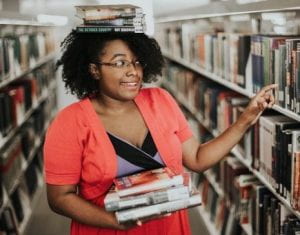
Diamond (she/her/hers)
WCAS ’21 – “Girlhood in Japanese Horror Video Games” funded by Academic Year Undergraduate Research Grant; “Teaching Video Games in Japan” funded by the Undergraduate Research Assistant Program
Diamond

Diamond was able to turn her love for Japanese and video games into a research project of her own creation. Diamond said, “All I’ve done is like, I like these games, I like Japanese and that’s led me…to having fun with this…I would have to thank my advisors the most, who have helped guide me in my interests.”
Diamond described her journey as “complete coincidences and accidents, nothing was planned, which I love.” These “complete coincidences” have turned into a multi-year project for Diamond, where she has had the chance to analyze different archetypes that appear in indie games, how these games were received by Western audiences and why they were important to those communities. In wanting to intertwine her previous research while also being inspired by classes she was taking on girlhood and shojo, the period in between childhood and adulthood, Diamond’s present thesis topic is pushing back on thinking of girlhood as this ephemeral space where there is a lack of agency and autonomy, instead wanting to highlight it’s discomfort through the use of video games and their storylines of having young girl characters work through anxieties and navigate their discomfort. Through her research, Diamond has said going through this process has given her a different sense of self as well as being able to navigate creating balance in her research, school work, and other areas of her life. It gave her the tools of self-advocacy and having check-ins with herself along with managing resources and managing her time.
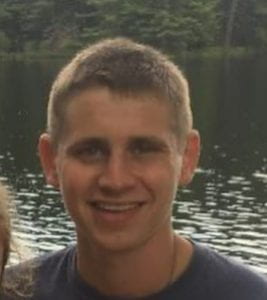
Andrew (he/him/his)
Weinberg College of Arts & Sciences ’23 – “Feedback Cooling with PCBs, Annealed Beads” funded by Academic Year Undergraduate Research Grant
Andrew

Andrew first got involved with his lab in January 2020 after spending his fall quarter meeting with different physics professors. Here’s what Andrew had to say about how his project transitioned once it became clear that conducting the work in-person was no longer a possibility.
“When the pandemic set in, my project (which at the time, involved building and modifying circuits) didn’t seem like something that could be moved to a remote setting, but I was able to find a way to utilize my resources so that I could continue my project. My lab supported me by offering a unique exception to their usual item ordering policy – instead of shipping the electronics I needed to the lab, my professor allowed me to order and ship those items directly to my home so that I could continue my project with just a small roadblock. I was lucky enough to be able to return to campus in the fall, so I have not yet had to plan an entirely remote research project. However, I think it is important to realize that a remote research project does not necessarily have to be entirely digital – not only was I able to get help from my lab to continue my work, but I also spoke with individuals at my father’s workplace who were able to loan me some additional testing equipment for the second half of my project. Of course, the rest of my lab members were available via Zoom meetings and emails to give me the advice and suggestions I needed to develop a coherent and thorough set of experimental results.”
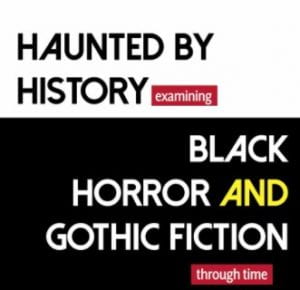
Debbie-Marie (she/they)
Medill ’20 – “Black and Afraid in Horror Fiction” funded by Academic Year Undergraduate Research Grant
Debbie-Marie
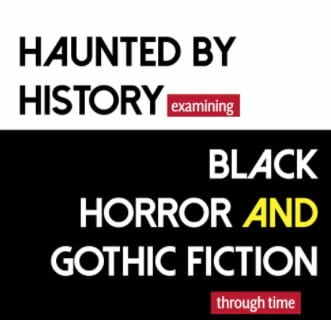
Debbie-Marie was awarded an Academic Year URG from the OUR in the fall and produced a podcast centering Black horror and fiction as it relates to different periods in American history. Debbie-Marie cites her inspiration from taking a literature class in AFAM last spring, “…we read some black speculative horror fiction that stuck with me! The Black protagonists I read about had this viscerally emotional racial experience that immediately catapulted me backward in time. 150 years or so ago, Charles Chesnut was writing gothic realist short stories that played with white society’s racist assumptions about the color line. I felt a spark of continuity between how Black horror and Black gothic fiction like Chesnutt’s each constructed the “monster” in their tales. Then I immediately understood that that Black literary tradition was passed down, and that ‘Black fear,’ as located in Black horror, is doing different things than your average white-centered scary movie. Jordan Peele was onto something.”
Coming from a journalism background, Debbie-Marie wanted to center college-aged people and Black and Brown academics. With this goal in mind, Debbie-Marie had their eyes set on developing this project into a podcast. She said, “I chose to use a podcast to host my research for a few reasons. First, I love audio, and I wanted my work to be accessible, but I also wanted the freedom of solo producing a short podcast series. I never had the opportunity to dedicate that much time toward an audio journalism project in undergrad. So my decision to apply to a URG for my final quarter allowed me to tune more deeply into my own love for Black literature, Black voices, and Black conversations.”
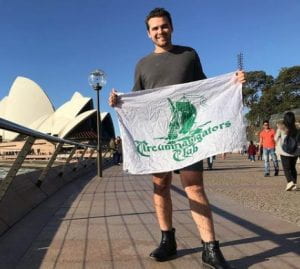
Chris (he/him/his)
Bienen ’20 – “Global Diversity of Baha’i Temple Music” funded by 2019 Circumnavigator Grant
Chris

Chris was our Circumnavigator winner in 2019! Check out what he said about the opportunity and how it continued to impact him, even now after the trip has long been over!
“After my four years at NU, I can say with confidence that the Circumnavigator’s grant is among the best opportunities offered to Northwestern undergraduates. In summer 2019, I was fortunate enough to be selected for this grant which supported me on a worldwide tour to research the sacred musical cultures of Baha’i Temples. Over the 10 weeks and 6 countries, I gained a richer understanding of each destination through its music and a broader appreciation for our beautifully diverse world. I am excited to continue my research, my circumnavigation upon my return to New Delhi, India where I will pursue a Fulbright Fellowship on the same project. Best of luck to all applicants… the world awaits you!”
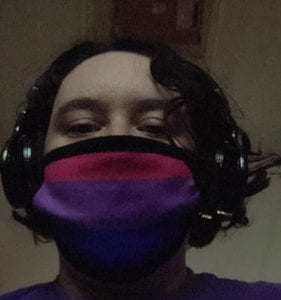
Alex (she/they)
Weinberg College of Arts & Sciences ’18 – “Transport of Statins” funded by Summer Undergraduate Research Grant
Alex

Alex started her journey with research using a Weinberg Summer Grant, which she took with her to a clinical pharmacology department at Cincinnati Children’s Hospital. This led her to start at a new lab at Feinberg– bridging their interests in pharmacology with her interest in neuroscience. Alex spent her junior and senior years at Northwestern, during which she was awarded a Summer URG, working with this lab, and continued after they graduated in 2018.
For Alex, this time taught them what direction she wanted to approach science from. She said, “There was a lot of observation of myself and what path I wanted to follow…and how that fits into the greater scheme of…current neuroscience research either in that lab or elsewhere…It was a lot also, of figuring out what I wanted from a mentor and how I wanted those relationships to develop.” Alex also highlighted the importance of mentorship, especially as a first-generation low income student, in starting to think about graduate school and what that could look like. She stated how important it was to have “someone who understands what I’m saying and then can translate it into…the right terms…especially because no one in my family knew how to do that. [During undergrad] I was able to forge connections that I still have, like, I email [OUR staff] updates, I still talk to my first ever PI about like, how life is going.”
Alex also gave some advice when it comes to grad school and adopting a pet– recommending “the biggest thing about that, you gotta get the pet a year beforehand or once things start settling down after comps” to establish that bond and trust. She adopted her cat, Ki, the year she graduated!
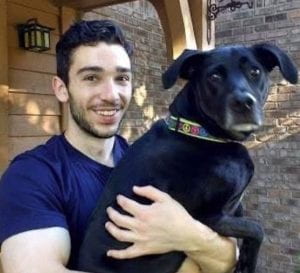
Joe
McCormick ’20 – “Affect Recognition from Text” funded by Academic Year Undergraduate Research Grant
Joe

“As a junior at Northwestern, I knew I wanted to get involved in research within the computer science department but wasn’t quite sure how to start. OUR and the supportive faculty at Northwestern fostered that interest, and now I’m able to explore new ideas and build cool things everyday as my full-time job. Everything I learned, from writing a publishable paper and petitioning for grant money, to refining research ideas and how to investigate them, is invaluable to the work I do. I even met my current employer through a conference OUR helped me prepare for and attend.”
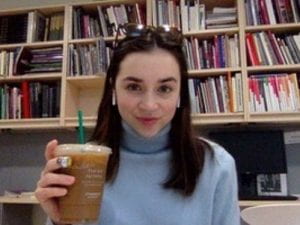
Madeline (she/her/hers)
WCAS ’21 – Undergraduate Research Assistant with the Block Museum
Madeline

Madeline was featured on the Block Museum’s website for her role as a research assistant there! Here’s what Madeline had to say about her experience: “I’ve always loved visiting all types of museums, so my first year at university I took a few art history classes which I really enjoyed. While my major is now anthropology, I applied to the Curatorial Internship at the Block Museum the summer after my sophomore year. That internship introduced me to the museum world and showed me what goes on behind the scenes, especially on the curatorial side. When that internship ended, I was invited to apply for a Research Grant to continue working on various projects at the Block. I am so grateful for these opportunities, as each project is different and thus I constantly learn more skills, like writing reports on works in the collection, aiding on research for future exhibitions, and working in the online database, that will help me become qualified for a museum career one day!”
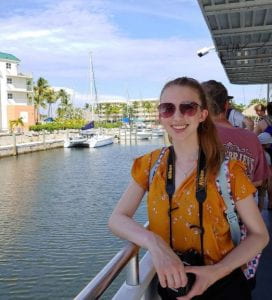
Avery (she/her/hers)
Medill ’20 – “Sea Level Rise in the Florida Keys” funded by Summer Undergraduate Research Assistant Grant
Avery

Avery won “Best Podcast” in Planet Forward’s StoryFest competition. This podcast was first developed by Avery as a URG project to explore sea level rise in the Florida Keys.
Here’s what Avery had to say about her project: “A chain of low-lying islands, the Florida Keys are already being affected by sea level rise. I had the opportunity to investigate the effects of rising waters on the Keys’ environment, economy and residents thanks to a grant from Northwestern’s Office of Undergraduate Research. Podcasts enable journalists to tell stories with the immediacy of real voices and engaging audio scenery. Having this opportunity to delve into the impactful and relevant topic of sea level rise by creating my own podcasts was incredible.”
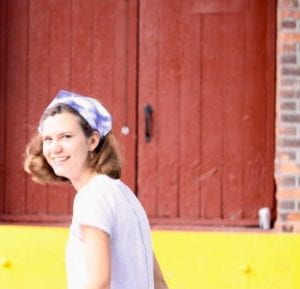
Meghan
School of Communication ’20 – “Value & Neglect in Chicago’s Public Art” funded by Summer Undergraduate Research Grant; and a recipient of the Undergraduate Research Assistant Program award
Meghan

“As a Summer URG recipient, a Research Assistant to an Art History faculty member through URAP, and as a presenter in the annual Research Expo, I have greatly benefited from the resources and mentorship offered by the Office of Undergraduate Research. Peter and the entire Office helped me learn how to frame and articulate my research, which helped me apply for and receive one of the 2019-2020 Franke Undergraduate Fellowships through the Kaplan Institute. From providing funding for me to spend my summer in local archives and conducting interviews, to assisting me in traveling to California to present at my first conference, the OUR helped me go further with this research project than I had ever thought possible. As I spend this month putting the finishing touches on my senior honors thesis, the culminating moment of my undergraduate research, I am grateful to have had the opportunity to be so supported by the OUR. I encourage everyone to make an appointment, they can be transformative!”
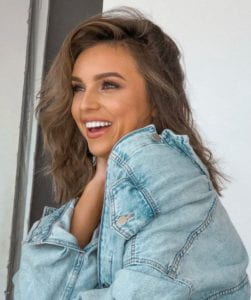
Olivia
Weinberg College of Arts & Sciences ’20 – “Cobalt Constructs of Gli Inhibition” funded by Academic Year Undergraduate Research Grant
Olivia

Olivia was drawn to Northwestern’s belief in a multifaceted education, and it was through her mission to explore any and all her passions that she became involved in conducting research both in Polish Studies and Biochemistry.
“Being a first-generation Polish-American, conducting research on the history of Poles in Chicago was a unique, meaningful way to honor and learn more about the culture that shapes my family’s identity. My true academic passion, however, is biochemistry! Conducting research in that field, then, felt very natural. I worked in the Meade Lab, where I researched cobalt complexes as inhibitors of cancer-causing cellular pathways. Improving treatment options for difficult-to-treat diseases (like cancer) is one of my greatest life ambitions. Although both projects were fueled by my deepest interests and passions, they were largely unrelated and the methodology I used for each was very different, too. It was an incredible way to broaden my skill set and become more comfortable with the differences between research in the humanities and life sciences. I’m very grateful that the OUR, like Northwestern, supports students’ ability to pursue varying interests, no matter the motivation or relatedness. Next fall, I’ll be starting the Biochemistry and Molecular Biophysics PhD program at the University of Chicago and feel prepared for the demands of independent research. The positive experiences I’ve had as an undergraduate researcher at NU are a big reason for my decision to pursue a PhD in the first place!”
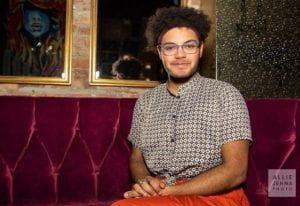
Myles (they/she/he)
“Human Skeletal Collection Management” working with Professor Waxenbaum funded through the Undergraduate Research Assistant Program
Myles

Myles pursued URAP during the academic year of 2018-2019 and this is what they had to say about the experience! “I worked Dr. Erin Waxenbaum and was able to continue my study and focus on Forensic Anthropology by not only working as her TA for the Human Osteology course, but also working with her on 4 cases at the Medical Examiner’s office at Rush Hospital in the city. For me the research was less focused on my own projects and shaping my current thesis work on Louisiana’s “Cancer Alley” and more focused on exposing me to the methods and practices of Forensic Anthropologists in the field. It really helped inform me about what I wanted to do with my life and the options I have as a professor when I eventually do receive a position at a University. This project and experience was very much separate from my Mellon interests however gaining information for the multitude of options I could have as a professor helped push me in the direction of applying to the fellowship.”
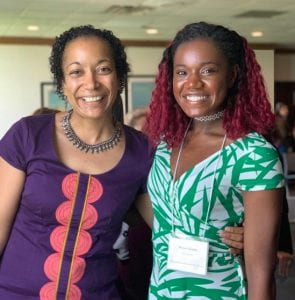
Maya (she/her/hers)
Weinberg College of Arts & Sciences ’20 – “Black Maternal Politics” working with Professor Jennifer Nash funded by Undergraduate Research Assistant Grant
Maya

“I came to Northwestern with a limited understanding about what all I could study at the undergraduate level and pursue professionally. I initially planned to go to dental school and knew that getting undergraduate research experience was highly encouraged. While I enjoyed the process of writing a grant, working with research mentors, and being a part of the knowledge production process, I didn’t love the content of the research that I did in a STEM field. As I was exploring different career paths, I got a URAP and worked as a research assistant to Dr. Jennifer Nash, a professor of African-American Studies and Gender & Sexuality Studies. Working as a research assistant on a total of three different projects, presenting as an oral panelist at the Undergraduate Research & Arts Expo, and working as an independent researcher on one project in the social sciences helped me build the confidence and experience to pursue a PhD in sociology. The professors and graduate students at Northwestern are amazing resources for students that want to get involved with undergraduate research. Also, getting a URG the summer before my senior year allowed me to collect original data for my senior thesis and get a head start on the senior thesis process. I’ve enjoyed working on my thesis knowing that I constructed the project from the ground up, with the guidance from a number of different graduate students and professors at Northwestern.”
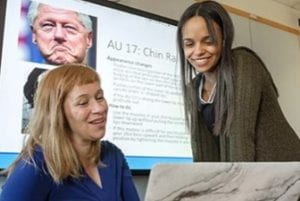
Jordyn
School of Education & Social Policy ’20 – Summer Undergraduate Research Grant; Advanced Summer Undergraduate Research Grant; Undergraduate Research Assistant Program
Jordyn

Jordyn has been the recipient of both a URG and a URG advanced, among other grants from the Office of Undergrad Research and SESP. Jordyn laid out why her first URG was so important, especially when it came to applying for other grants like the URG Advanced. “When I received my first URG, it was my first time conducting an independent research project. I was pretty nervous, but my advisor and the lab were really encouraging throughout the entire process, and I realized that I really enjoyed the overall process of research. By the time I applied for the URG Advanced, I was more confident in my own skills to pursue another independent research project. I had also received many other grants from the OUR and SESP, and I felt that applying for the URG Advanced was the next step. Applying for these grants has inspired me to continue research at the PhD level.”
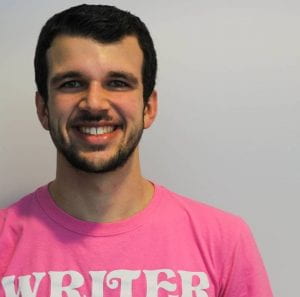
Justin
Medill ’20 – “Alternative Rock & Radio in Kansas City” funded by Summer Undergraduate Research Grant
Justin

Justin took his interest in Music Journalism and completed a Summer Undergraduate Research Grant (SURG) to research his hometown radio station! That SURG project became a Billboard published article!
Here is what Justin had to say about the process: “After I heard about an older friend spending their summer doing research, I couldn’t get the thought out of my head, but worried about giving up the ability to take an internship. Yet as I planned my project, I knew this was exactly how I wanted to spend my summer — researching radio and the rock music scene in my hometown. It felt especially rewarding to follow this project to the end, even if it meant writing and editing during my Fall Quarter abroad, and publish my research as a feature with Billboard. That’s a better takeaway than just about any internship could’ve given! I’d urge anyone who’s remotely interested to look into undergraduate research, since it lets you work on a passion project with support and funding you might not find outside of a university like Northwestern.”
